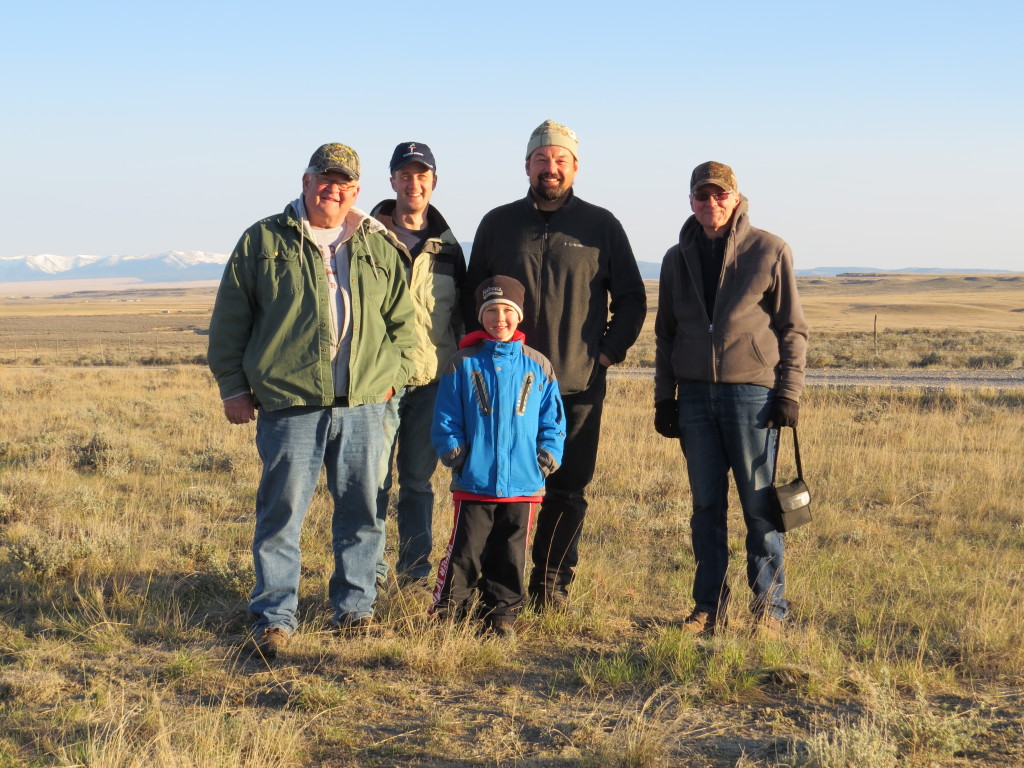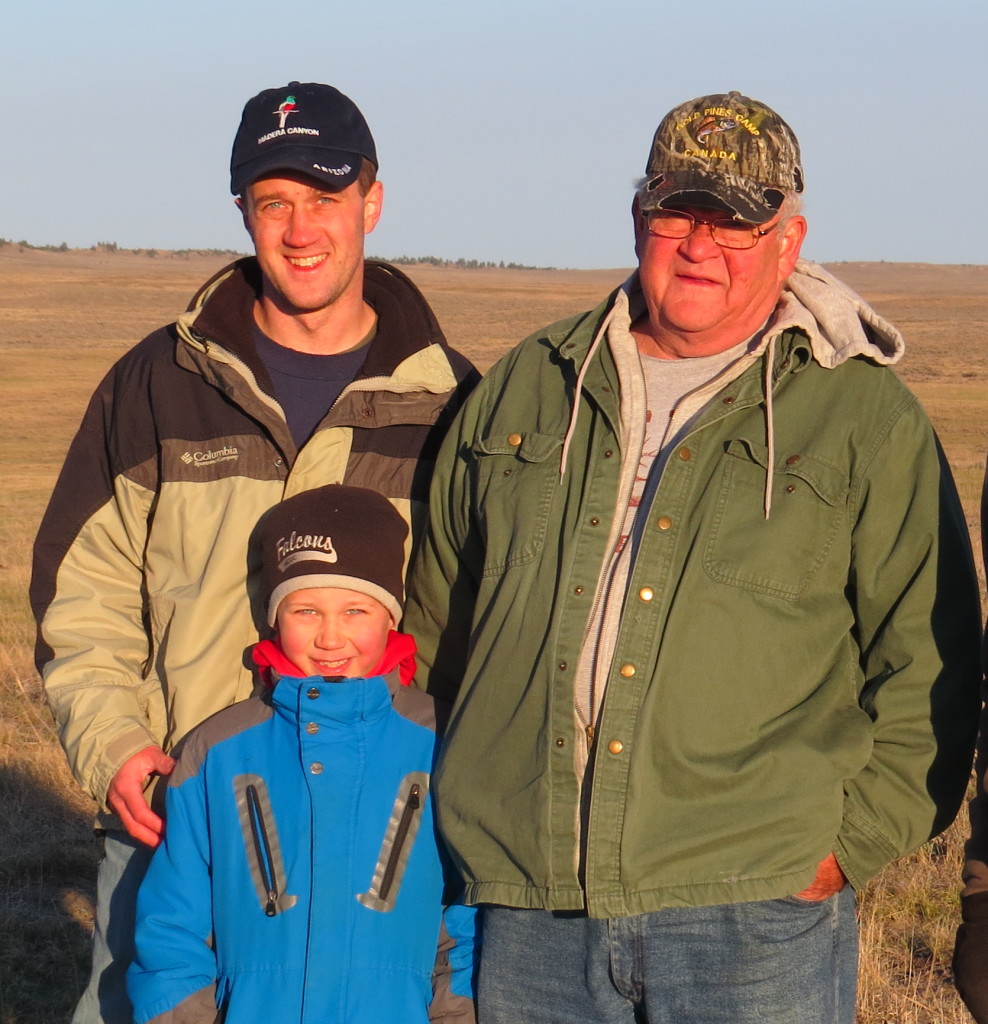Since Tommy DeBardeleben and Gordon Karre did not fly out of MSP until late in the evening on February 1st, we basically had most of the day to bird in the Northland and on our way south. And since we had knocked out their Owl targets the previous three days….
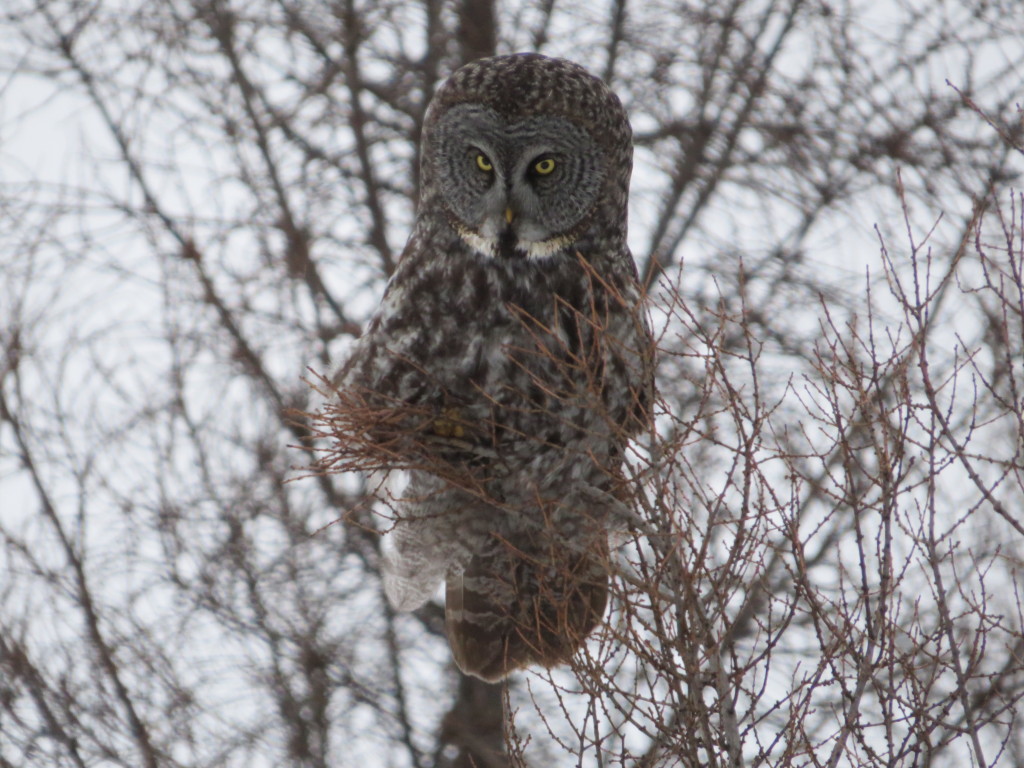
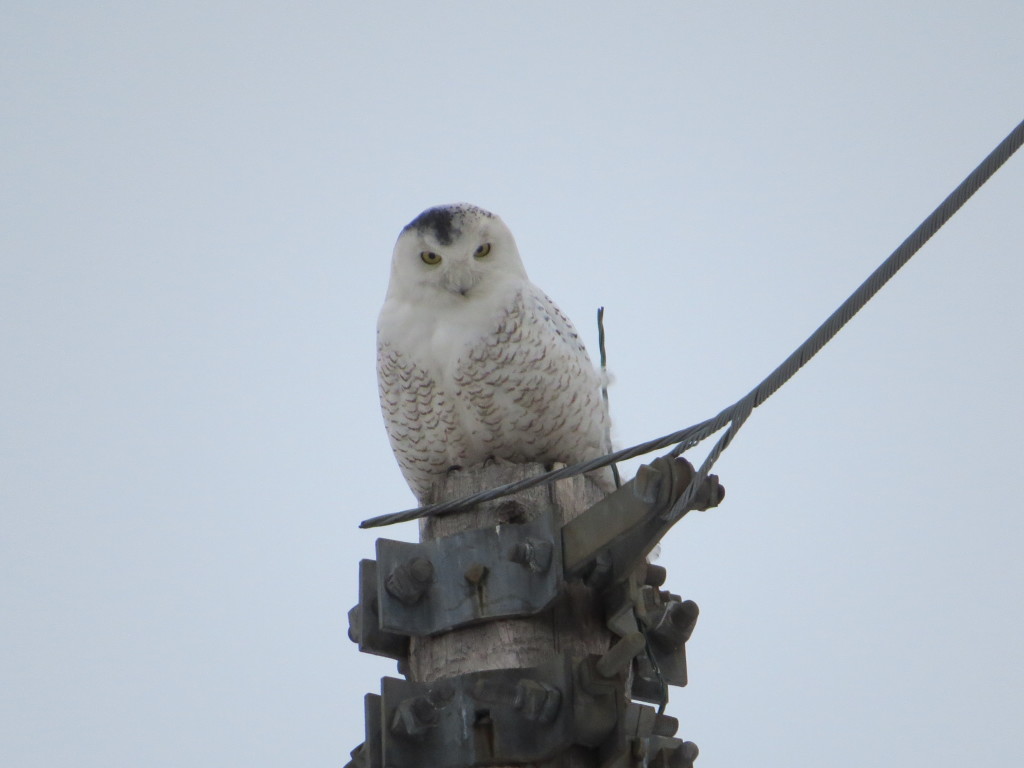
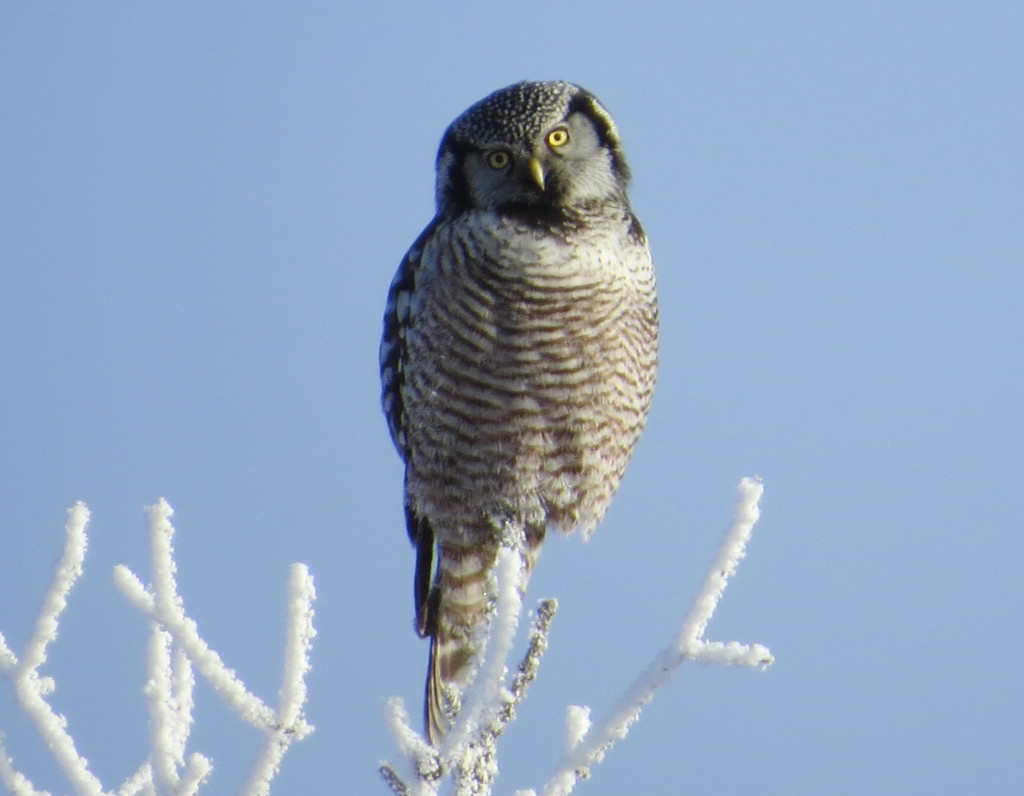
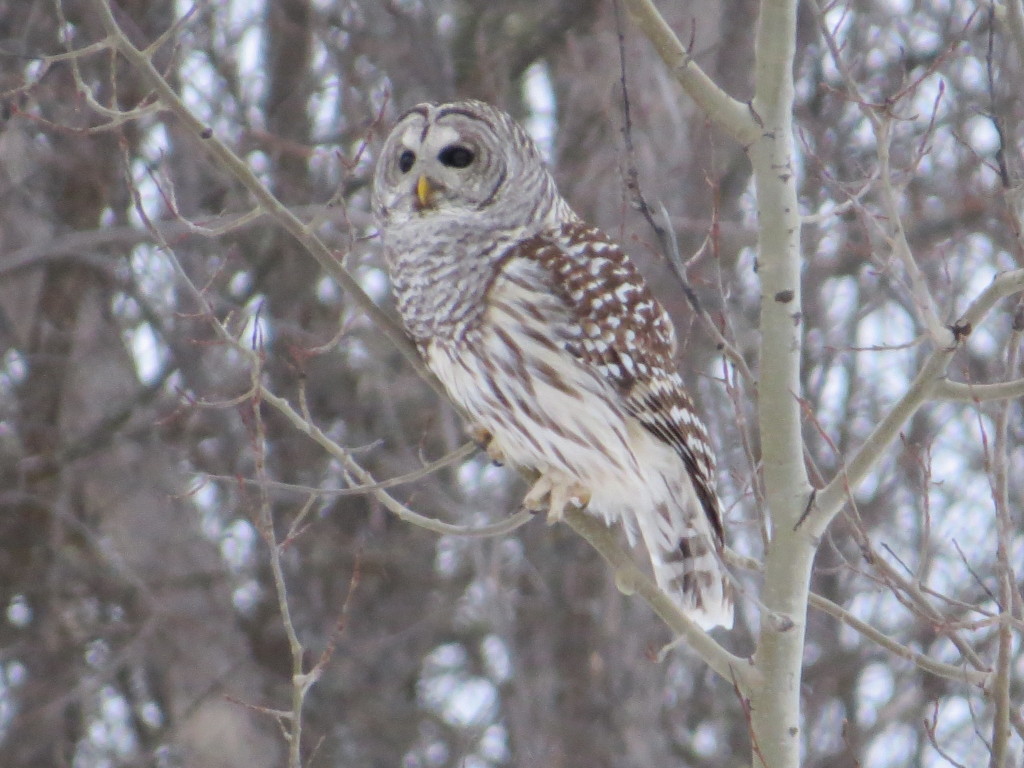
…we had a great deal of flexibility and freedom for how to bird on that final day. We had succeeded in our goals which I still find hard to believe even as I sit down to write this. There was zero pressure for that final day. Options on the table included going back for more Great Gray action in the Sax-Zim Bog, heading up to Lake County to try for Spruce Grouse, going to a birding friend’s yard to photograph Ruffed Grouse that frequent her feeders, or trying for a number of other Owls on our way south. Ultimately, though, we decided to bird much closer to our base camp. While we were on the Hawk Owl hunt in the Northwest the previous day, Evan had called me with a credible report of three Spruce Grouse seen on a road right near my parents’ house. Since I have seen Sprucies there in the past, I had no reason to doubt it. So that’s where we started our day. Evan was along with us as Marin and Melissa headed back home separately.
I was excited about birding around my parents’ house. First, it meant we could sleep in for once which felt great after the breakneck pace we’d been keeping. Second, and more important, I have tried for years for some really great birds that have been found on a road through a mature Black Spruce bog near the folks’ house. I had secured a nice male Spruce Grouse in this spot the previous year, but I have never given up searching for the Great Gray Owl and Black-backed Woodpecker that Sparky Stensaas discovered there over two years ago. I have lost track of how many times I have tried for these birds. These birds are pretty special anywhere, but even more so when they are in the backyard.
When we got to the Spruce bog and made one unsuccessful pass down the road for Sprucies, Great Grays, Boreal Chickadees, and Black-backs, Tommy suggested getting out of the car in order to walk and listen. It was a mild day, so I thought that was a good idea. Rather than joining them and having all of us have to walk back to the vehicle, I decided to stay in the car and go pick them up. Unannounced to them, I took off in a different direction in order to complete a large loop to cover more ground. Gordon later told me that when he saw me leave he had flashbacks of Snipe hunts from his youth. But I knew it wouldn’t be long and that they’d be okay. 🙂
Almost instantly on my solo tour I had a large gray and black raptor fly from a perch in the Pines on the right side of the road to a large stand of Pines on the left–adult Northern Goshawk! I wish I could have had a longer look, but such is the way NOGO sightings go. I finally did make it back to a frigid Tommy and Gordon (my loop took me longer than I thought–oops!). I asked the guys what they had seen, and Tommy told me they detected the drumming of a Black-backed Woodpecker. I’ve birded with Tommy enough to know that he can be a kidder and try to get one over on somebody, so I laughed and told him I knew better than to believe his story….except he didn’t break into a smile. He was serious! So I got out and we played the tape. Almost instantly the Black-backed Woodpecker flew out of the bog and finally gave me the sighting I’ve been waiting on for years! Even better was that this was a lifer for both Gordon and Evan!! It was a great moment that wouldn’t have been possible without Tommy and Gordon walking–thanks guys! This one felt really, really good.
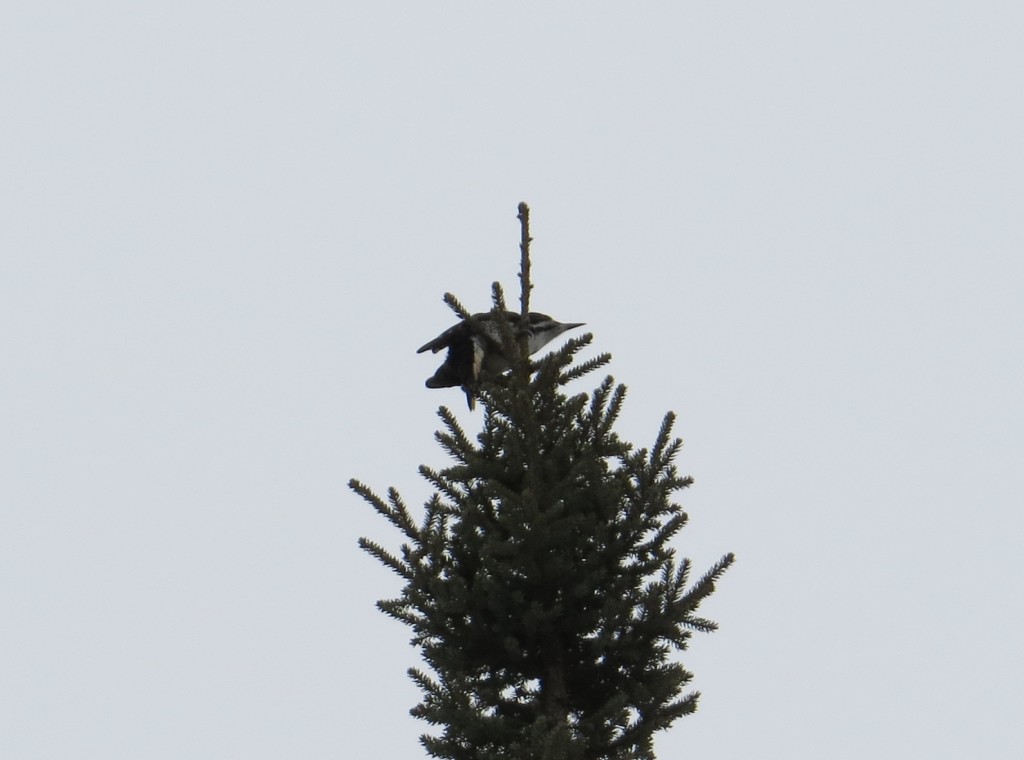 Something even more amazing happened while we tried to lure out this guy–a second Black-back showed up! There was a male and a female! Unfortunately I never did see that classic field mark of the yellow crown on the male, but Tommy and Gordon each got to see it. I will continue to search for these birds until I finally see that and finally get good photos of this species.
Something even more amazing happened while we tried to lure out this guy–a second Black-back showed up! There was a male and a female! Unfortunately I never did see that classic field mark of the yellow crown on the male, but Tommy and Gordon each got to see it. I will continue to search for these birds until I finally see that and finally get good photos of this species.
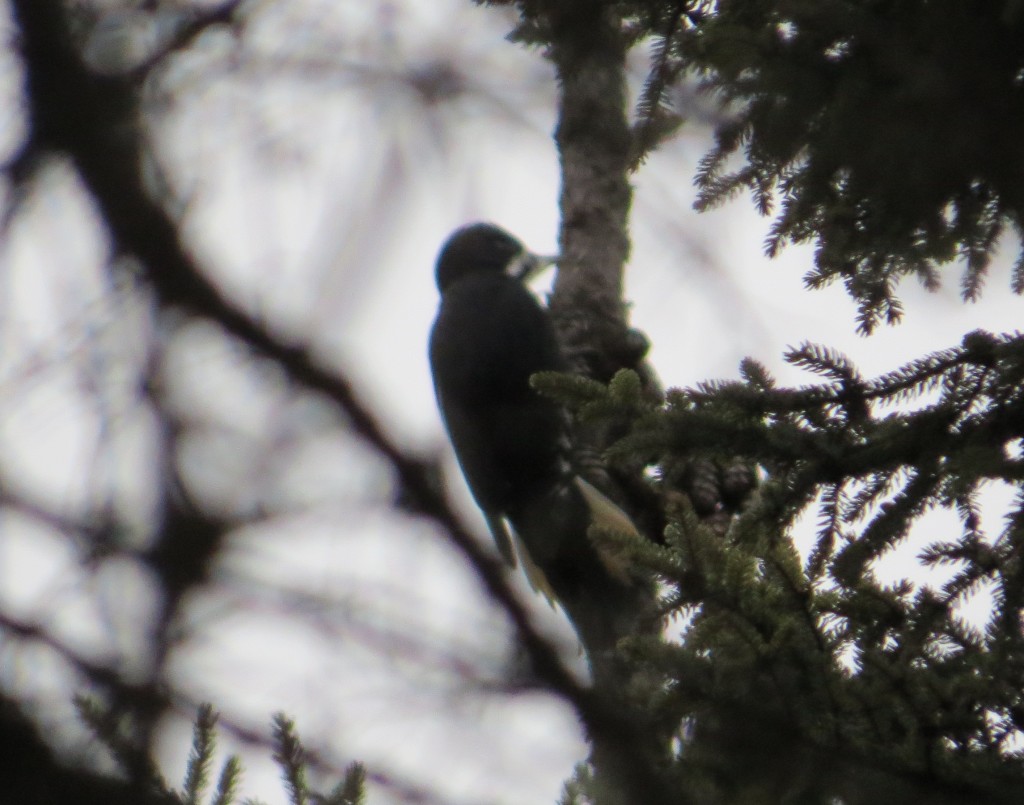
We had a pretty tight schedule to keep for some more birding stops on the way to the Cities, so we had to leave this special bog by 9:30. The rest of the day had various stops for various things as we ventured south. We tried for a Northern Saw-whet Owl that would have been a lifer for me if we would have found it. We did not, however. This was my second attempt, and I’ve since made an unsuccessful third attempt. It is just not meant to be at this point in time.
As we traveled we did get to see a couple more Pileated Woodpeckers, including one close up on a power pole. Getting photos of this bird was another story, but the sightings were still exciting for the guys. Tommy was able to finally get a Blue Jay photo which was a photographic lifer for him. We did bump into an unexpected but not surprising Red-bellied Woodpecker in a suburban neighborhood which was a lifer for Tommy! No one was able to get photos of this striking bird. The one pictured below is one I recently photographed in my yard.
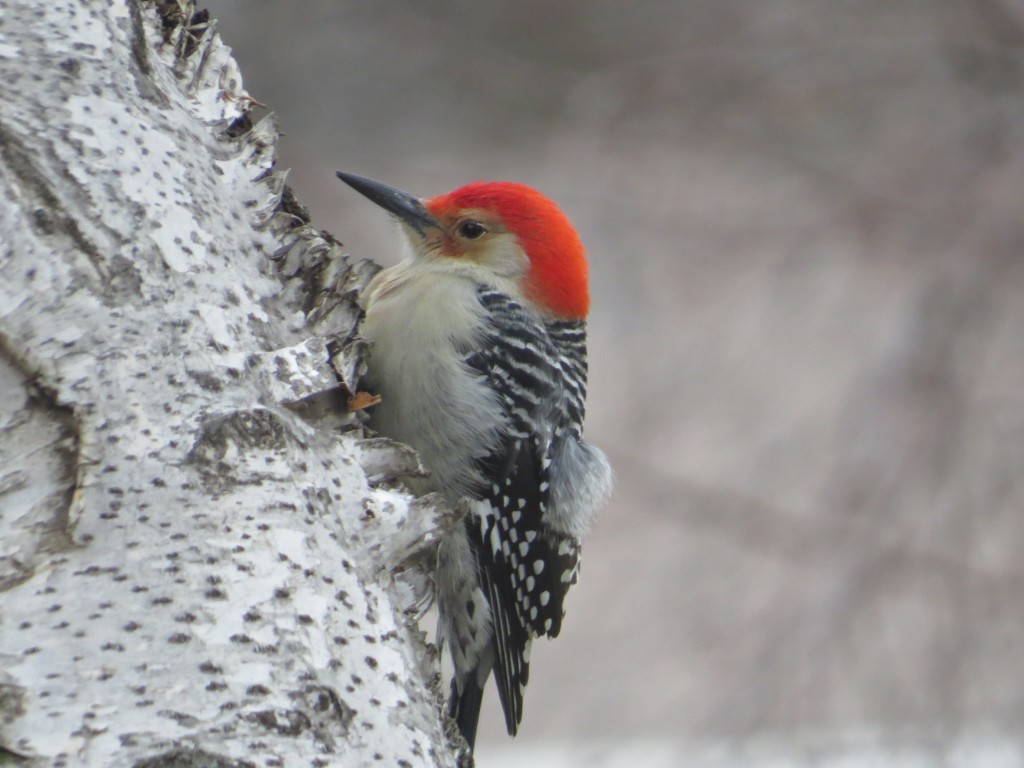
We had a couple of revenge stops to make right by the airport itself. When I picked the guys up late in the afternoon on January 28th, we had about 20 minutes of daylight to search for the Ft. Snelling State Park Barred Owl which is a 5-minute drive from Terminal 1. Not being successful there on that first night, we quickly got over to the aircraft viewing area on Cargo Road just as it was getting dark to look for a reported Snowy Owl. No luck on that one either. Even though Tommy and Gordon got their Snowy and Barred Owl lifers, we all wanted revenge on these particular Owls, especially the Barreds which NOBODY misses on. Anyhow, we were all optimistic and relaxed on this second attempt.
As we were driving into Ft. Snelling State Park, Evan casually mentioned seeing some Trumpeter Swans. This immediately caught Gordon’s attention who informed us that would be a lifer for him! Evan’s eagle-eye had come up with a lifer that wasn’t even on my radar. Tommy was also excited about this sighting as it was the first time he had seen adult birds and only his second time viewing the species. Way to go, Evan!
We also redeemed our failure from the previous night when Tommy spotted the female Barred Owl. The guys enjoyed getting another chance at photographing a more cooperative Barred Owl.
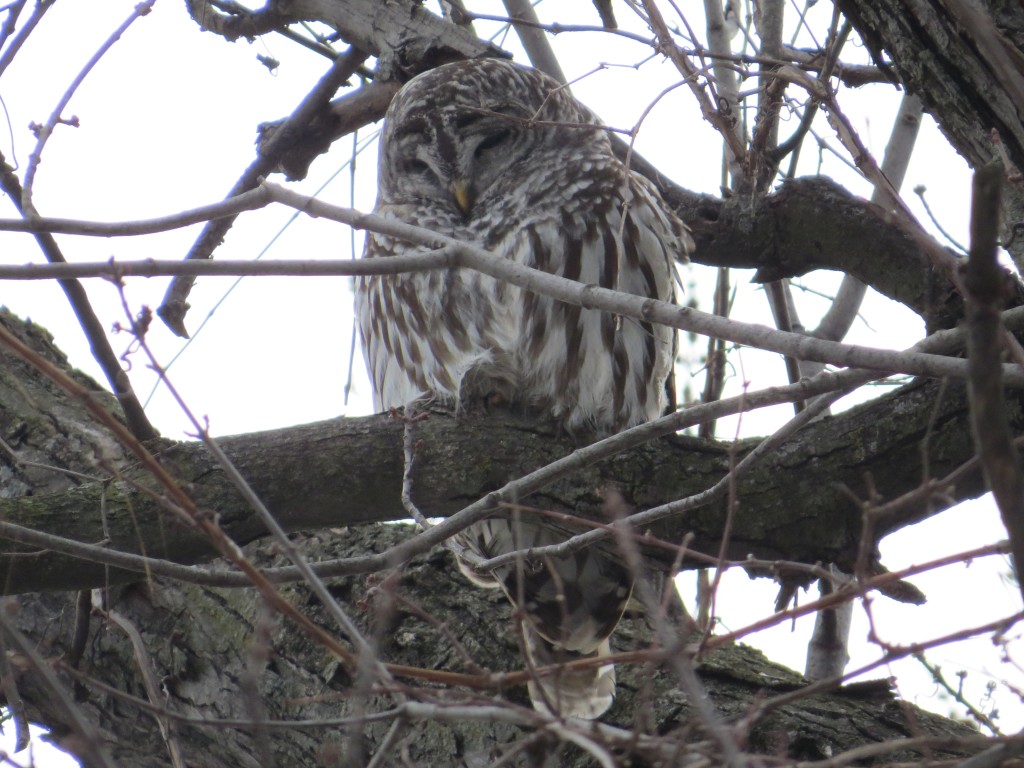
Because we found the Barred in such short order, I told the guys I had enough time to make one quick check for the airport Snowy Owl before I had to hit the road. When I asked them if they were interested in looking, they responded with an emphatic yes.
Driving down Cargo Road we did not spot the bird on any of the perches on which it had been seen recently, like the FedEx building. It turns out that this bird does not play favorites, though, as I spotted it way in the distance on top of the UPS depot as we drove back out from the aircraft viewing area.
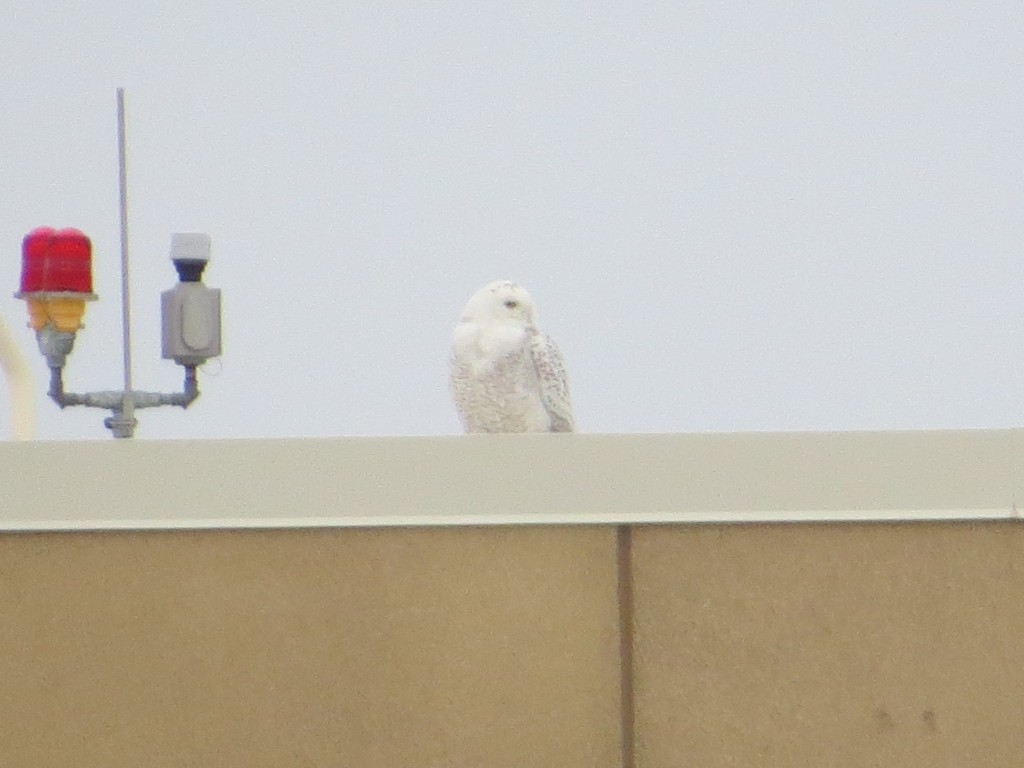
Afterwards, we took the guys to the terminal, said a hasty goodbye, and vowed to go birding again together either here or in Arizona. It was a great last day of birding that added its own unique excitement to a truly epic trip. Here is the summary of day 4’s life birds for Tommy and Gordon.
Black-backed Woodpecker – Gordon, Evan
Red-bellied Woodpecker – Tommy
Trumpeter Swan – Gordon
Trip Analysis
This trip was unforgettable, no unbelievable. It was simply magic, even for me. Though I have seen all of these birds many times, the fact that we saw so many good birds in such a short period of time makes this trip rival some of my out-of-state trips where I have gotten lifers. I enjoy birding northern Minnesota more than anywhere, and I never get tired of its special birds, especially those Owls. It was a thrill to be able to help Gordon and Tommy see them for the first time. To end this trip series, I’d like to point out some fun factoids.
Tommy and Gordon got their three main targets in this order: Great Gray Owl, Snowy Owl, Northern Hawk Owl. For those who are not fans of permutations, there are exactly six orders that this could have happened. Coincidentally I saw those same lifers in that same order.
The number of individuals we saw of these three Owl species made for a nice arithmetic sequence:
Great Gray Owl – 1
Northern Hawk Owl – 2
Snowy Owl – 3
Tommy and Gordon saw the Northern Big 3 on three consecutive days. That is substantially faster than I did it (nearly a year), even after making several northern trips. Here are the dates that I got my lifers.
Great Gray Owl — March 13, 2013
Snowy Owl — December 3, 2013
Northern Hawk Owl — December 26, 2013
Before this trip, I had (surprisingly) seen more Owl species than Tommy. He had 13; I had 14. Now, though, Tommy has 17. Of the 19 regularly occurring Owl species in North America, he is only missing Boreal Owl and Eastern-Screech Owl, both of which reside in Minnesota. I’m trying to convince him that he should get them here, especially since I need one of those as well. After all, how cool would it be to say you got all of North America’s Owls in just two states?
Speaking of Owl lifers, Tommy and I split the work of spotting their four lifers. Never mind how many more Owls Tommy found overall!
Great Gray Owl – Tommy
Snowy Owl – Tommy
Northern Hawk Owl – Josh
Barred Owl – Josh
Overall, Tommy ended the trip with 15 life birds and Gordon had 18. That is a whopping number, especially when I have only seen 60 species total in Minnesota for 2016.
Tommy and Gordon saw a LOT of GOOD birds in a SHORT amount of time. Below I’ve listed the most difficult species they saw on this four-day trip along with the dates that I got my lifer for each to give some perspective as to how good of a trip they had. As you will see, it’s taken me a long time to get these key birds after many, many trips to the north. I’ll start with my most recent lifers.
Great Black-backed Gull — November 28, 2015
Iceland Gull — November 28, 2015
Glaucous Gull — November 28, 2015
Black-backed Woodpecker — June 22, 2015
Gyrfalcon — March 8, 2015
Thayer’s Gull — November 8, 2014
Boreal Chickadee — December 28, 2013
Northern Hawk Owl — December 26, 2013
Snowy Owl — December 3, 2013
Great Gray Owl — March 13, 2013
Favorite Sighting of the Trip: Black-backed Woodpecker
Favorite Personal Find of the Trip: Barred Owl just south of the Canadian border
Best Overall Bird Experience: Hanging with the Northern Hawk Owl in the Beltrami Island State Forest
Biggest Relief of the Trip: Getting the Great Gray immediately
Biggest Stressor of the Trip: Driving in reverse for 3.6 miles on the Pitt Grade Road Snowmobile Trail in a mini-van
Biggest Miss of the Trip: American Black Duck
Thank You!
This trip’s success is only because so many great Minnesota birders and non-birders made it happen. Therefore I’d like to acknowledge those folks.
Clinton Nienhaus – For all his Sax-Zim Bog advice on the Bog’s birds and their habits. Additionally, Clinton spotted the guys’ Glaucous Gull lifer at Canal Park.
Jason Mandich – For his SZ Bog advice and extra set of eyes in the Bog.
Jeff Grotte – For his Owling advice that made for an incredible final day of Owling in the Twin Cities.
Peder Svingen – For his Gull identification counseling and superior Superior Snowy Owl tips.
Randy Frederickson – For giving us timely heads-up texts on the Iceland and Great Black-backed Gulls.
John Richardson – For being an extra set of eyes at Canal Park, wearing his trademark Union Jack stocking cap, and bringing his British cheer to the Canal Park Gull party.
Kim Risen – For pointing out a bonus Snowy Owl in Superior.
Sandy Aubol – For her Northern Hawk Owl advice in Roseau County.
Evan – For always having an eagle-eye that ended up getting Gordon a bonus, unexpected Trumpeter Swan lifer.
Mom and Dad – For the generous use of their home and vehicle for our epic birding odyssey.
Melissa – For her enthusiastic support of this trip that kept me away from the family for so long.
Hungry For More?
Me too! This past weekend I worked as a guide at the annual Sax-Zim Bog Birding Festival. Later this week look for a write-up and photos of more great northern Minnesota birds from that trip!
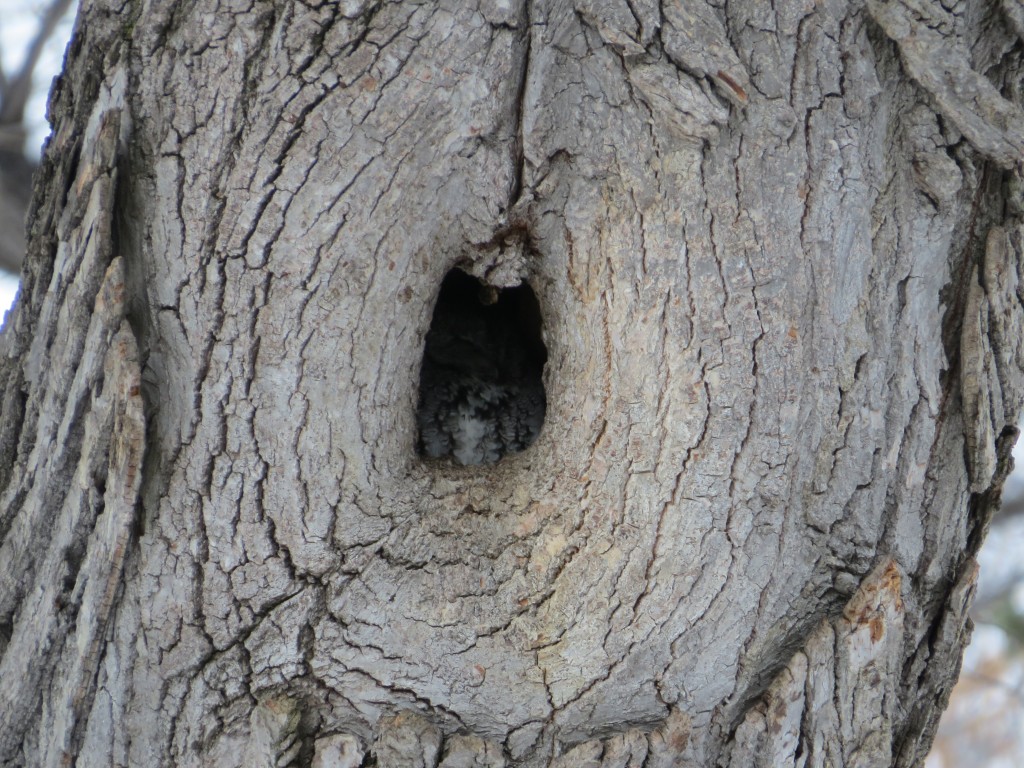 This Eastern Screech-Owl was brought to the public’s attention this past week when skillful Twin Cities Owler Erik Berg discovered it on a regular cavity check in Minneapolis. Since then, the bird paparazzi have been encamped underneath this tree.
This Eastern Screech-Owl was brought to the public’s attention this past week when skillful Twin Cities Owler Erik Berg discovered it on a regular cavity check in Minneapolis. Since then, the bird paparazzi have been encamped underneath this tree.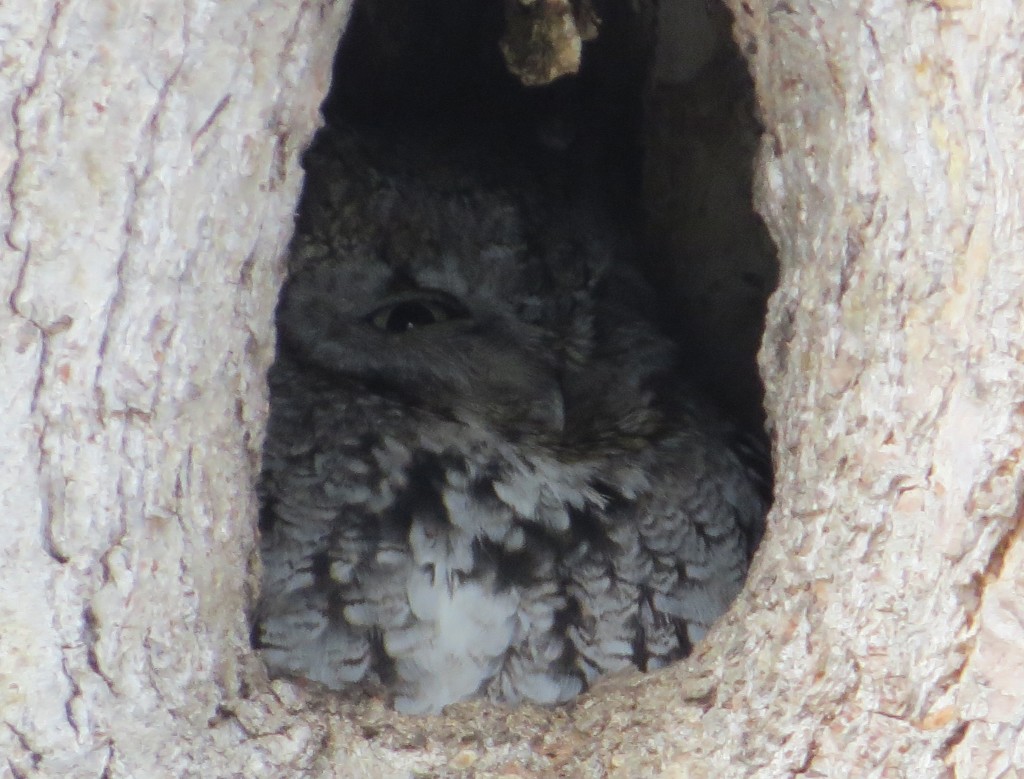 Since this Owl was just 5 minutes from my brother’s house, the kids came along and got some solid cousin time. Jason joined me on this Owl check-up and got some great looks through others’ scopes.
Since this Owl was just 5 minutes from my brother’s house, the kids came along and got some solid cousin time. Jason joined me on this Owl check-up and got some great looks through others’ scopes.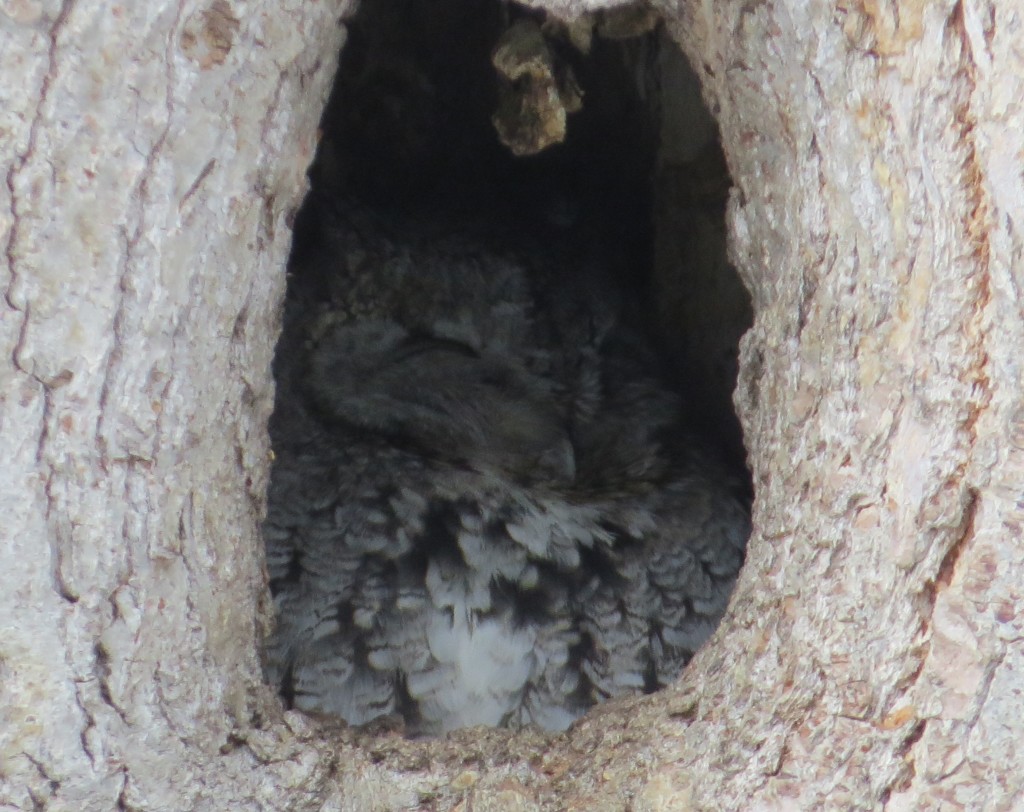 After going back to Jason’s house, I came back a little later for one last check hoping the Owl would be more in the open. It was slightly better this time.
After going back to Jason’s house, I came back a little later for one last check hoping the Owl would be more in the open. It was slightly better this time.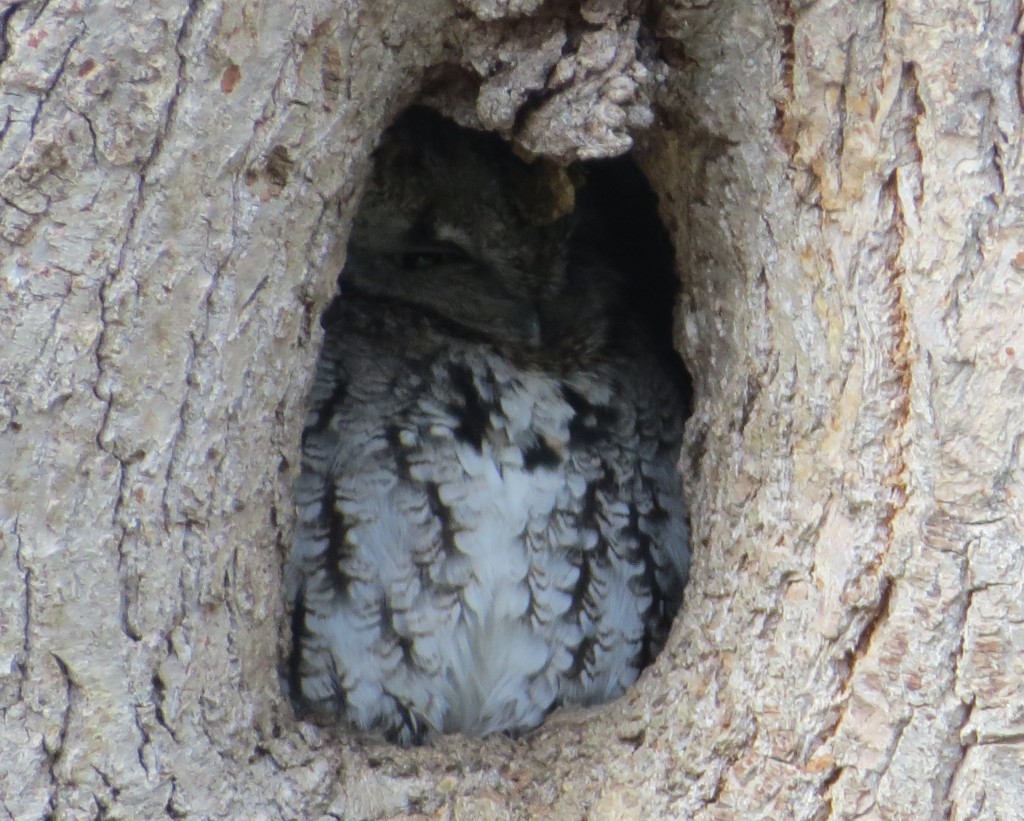 Rest up, little buddy, you may have quite the visitor to entertain in a few months.
Rest up, little buddy, you may have quite the visitor to entertain in a few months.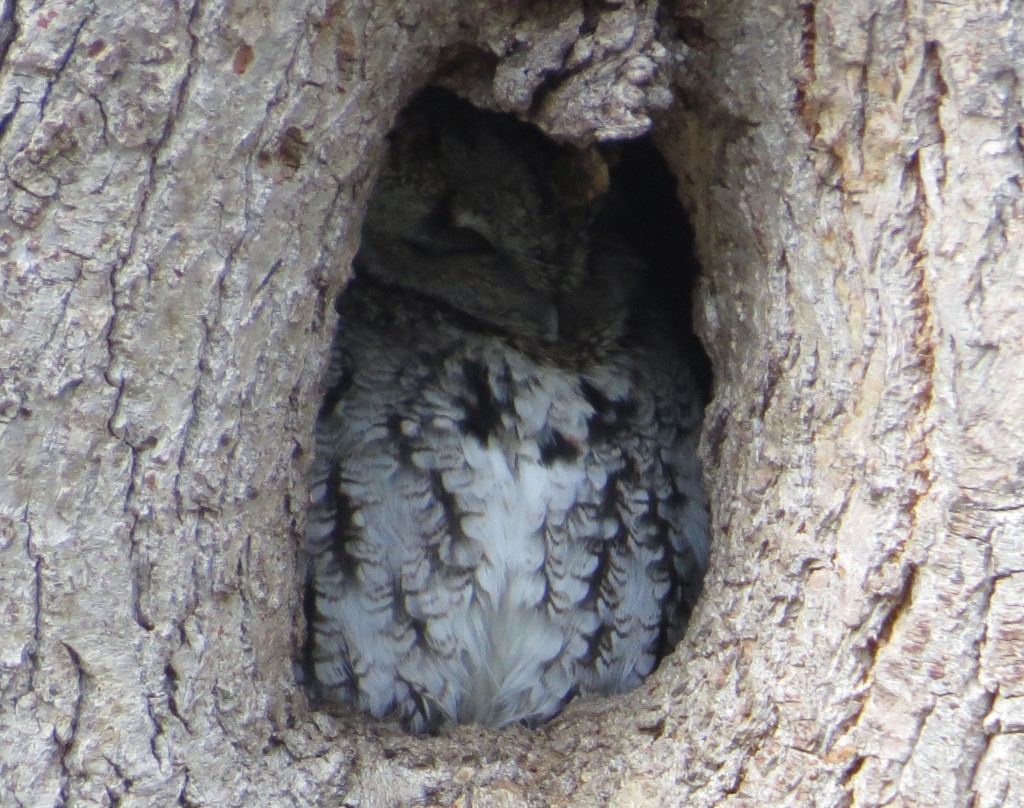
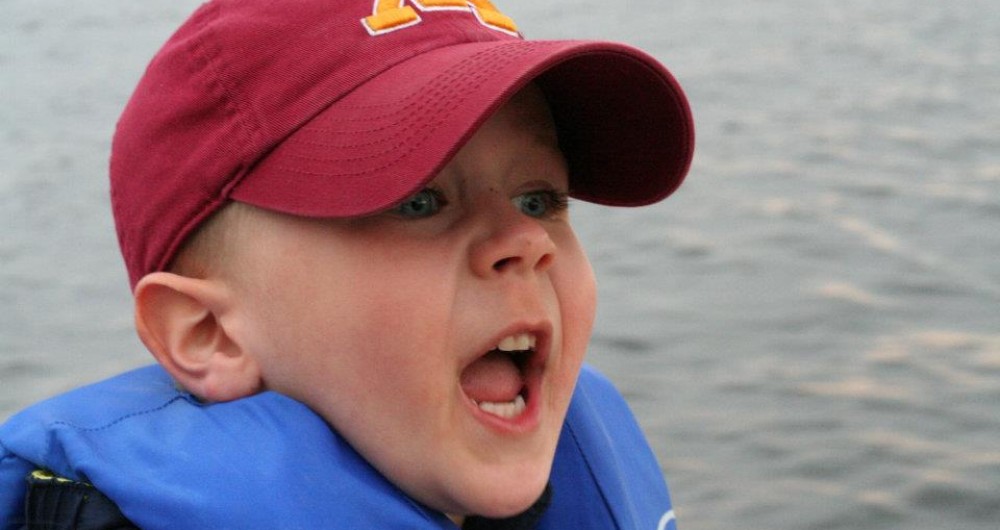
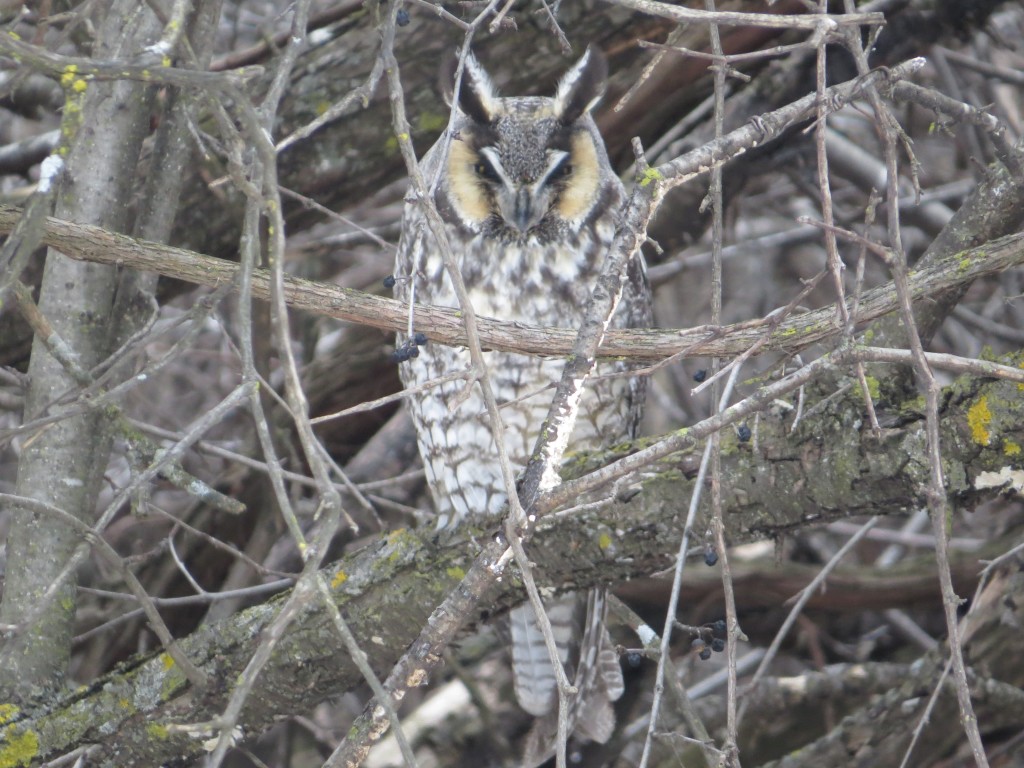 So the Long-eared got Evan caught up with me on Owls at 14 Species. Then there was that Northern Saw-whet I went to see, which for reasons I still cannot figure out, Evan opted out of that easy, guaranteed, short chase and instead went to his sister’s dance practice. Once again the Owl numbers were askew. However, our whole family recently made a stop at the Saw-whet location so my coworker, Brad, could collect the pellets for some science students to dissect. Evan got his lifer and tied me once again. A bonus was that we saw it with an un-pelletized deer mouse.
So the Long-eared got Evan caught up with me on Owls at 14 Species. Then there was that Northern Saw-whet I went to see, which for reasons I still cannot figure out, Evan opted out of that easy, guaranteed, short chase and instead went to his sister’s dance practice. Once again the Owl numbers were askew. However, our whole family recently made a stop at the Saw-whet location so my coworker, Brad, could collect the pellets for some science students to dissect. Evan got his lifer and tied me once again. A bonus was that we saw it with an un-pelletized deer mouse.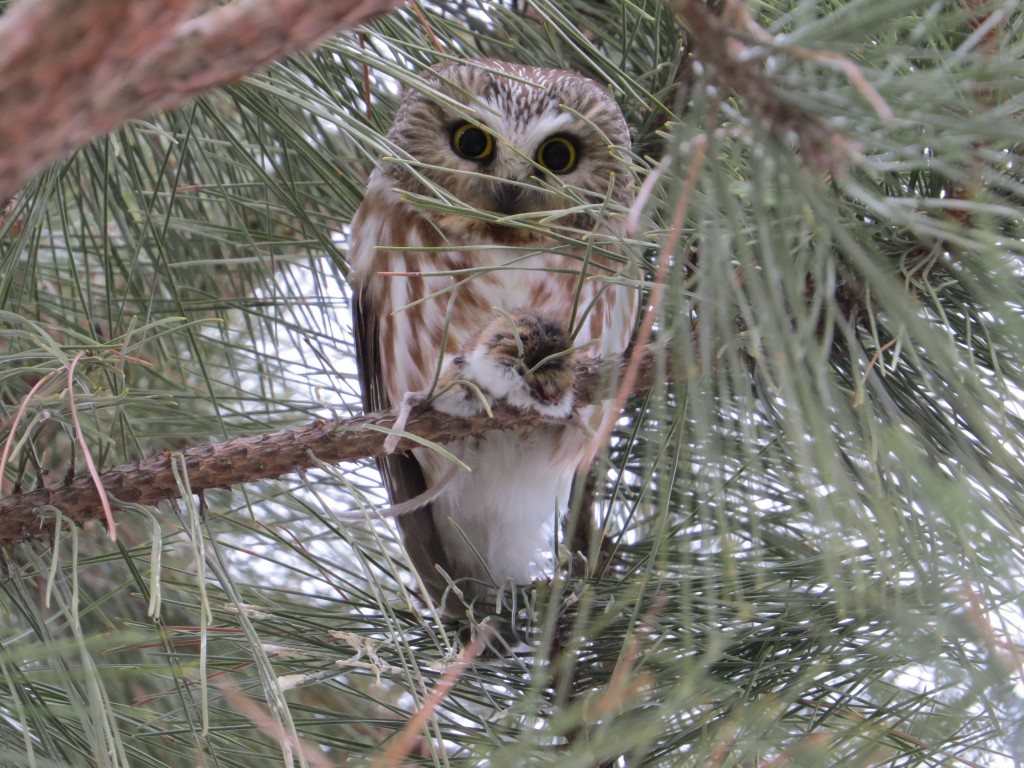 Evan and I both now stand at 15 Owl species apiece. Here are the species we have seen listed in the order that Evan saw them:
Evan and I both now stand at 15 Owl species apiece. Here are the species we have seen listed in the order that Evan saw them: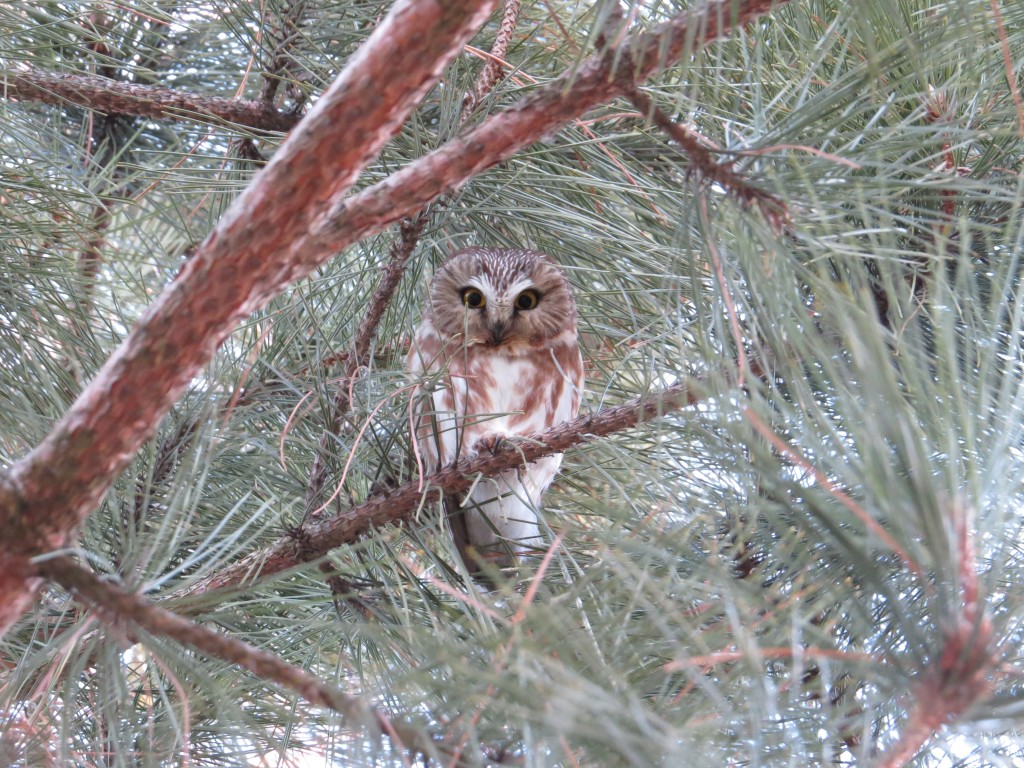 The Saw-whet is not much bigger than a pop can. I don’t think I’ve seen an animal that’s cuter. Jeremy’s friends pinpointed it for us right away. That was probably a good thing…
The Saw-whet is not much bigger than a pop can. I don’t think I’ve seen an animal that’s cuter. Jeremy’s friends pinpointed it for us right away. That was probably a good thing…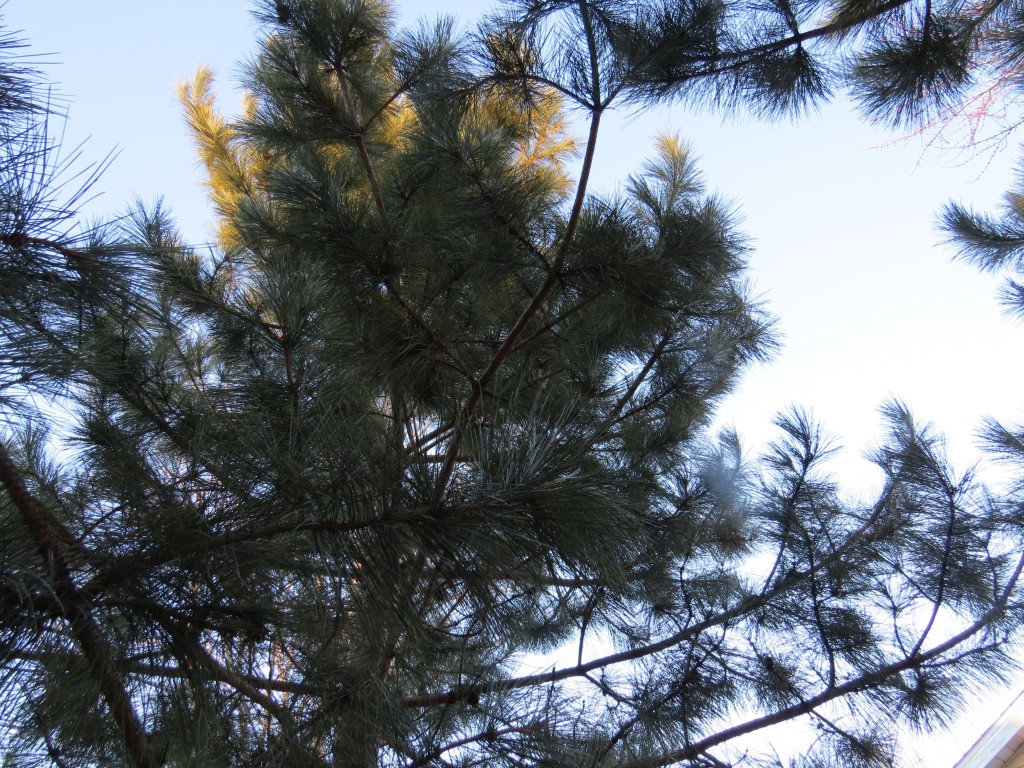
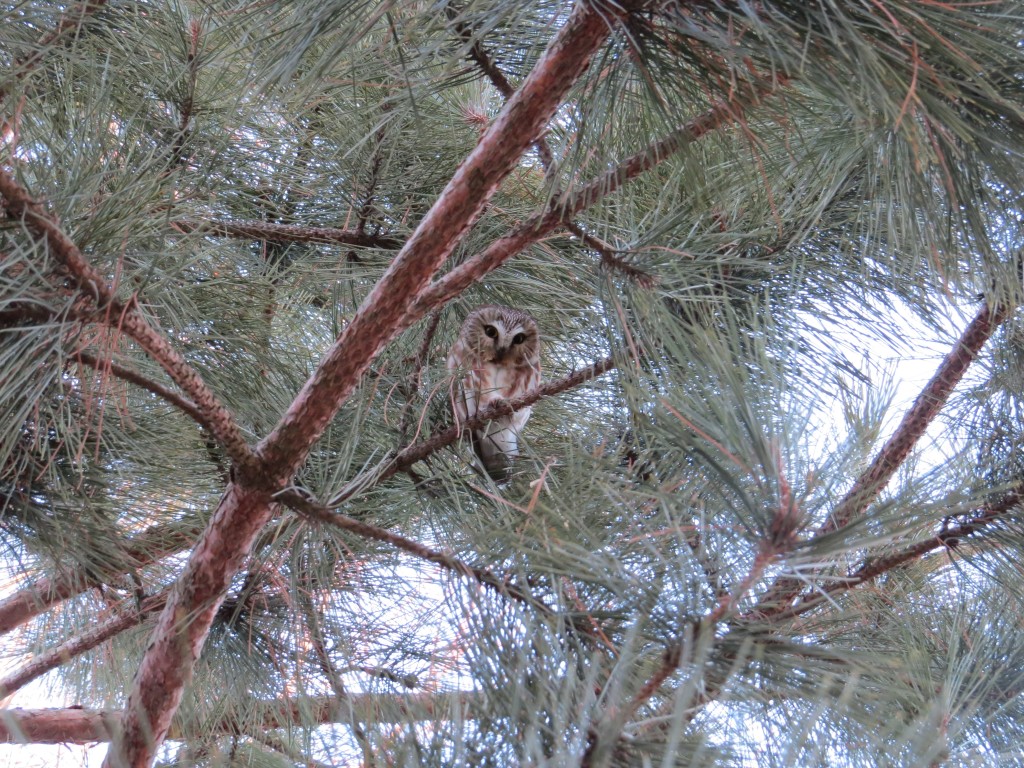
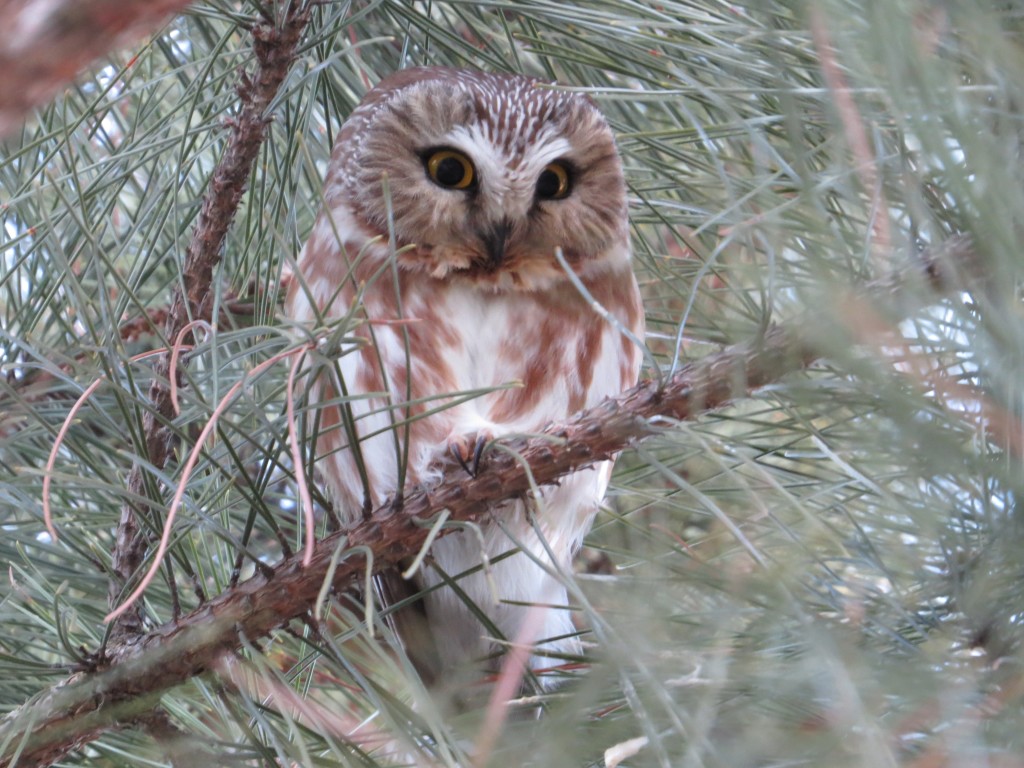 Occasionally it looked at me.
Occasionally it looked at me.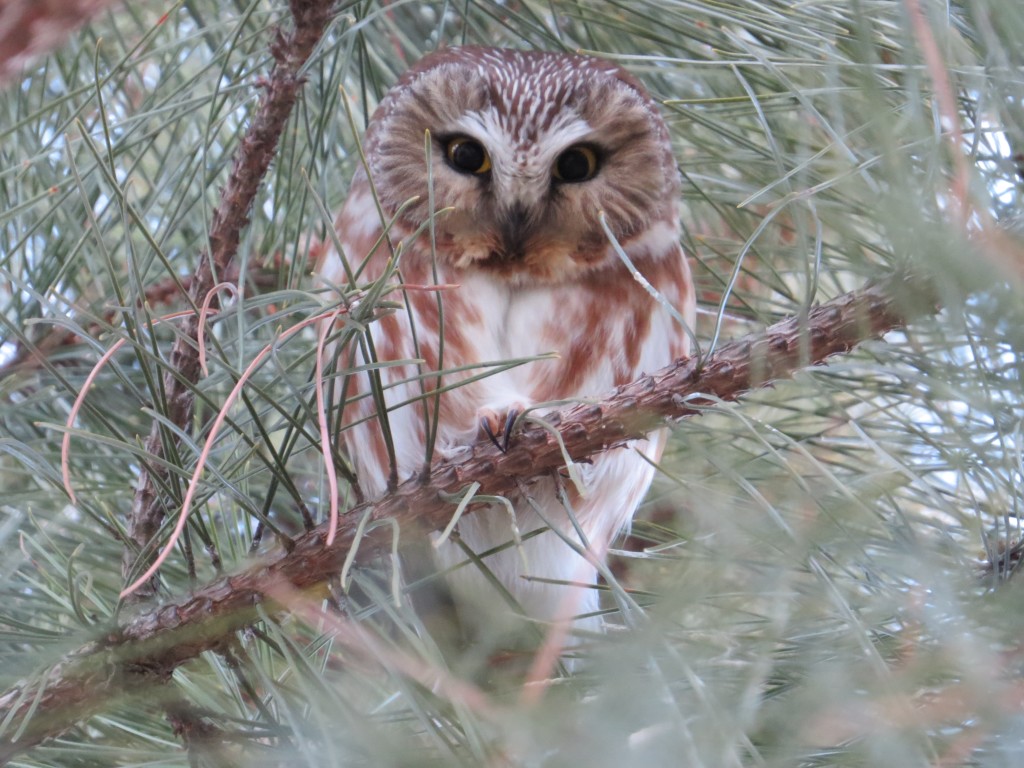 But it was mostly captivated by Steve.
But it was mostly captivated by Steve.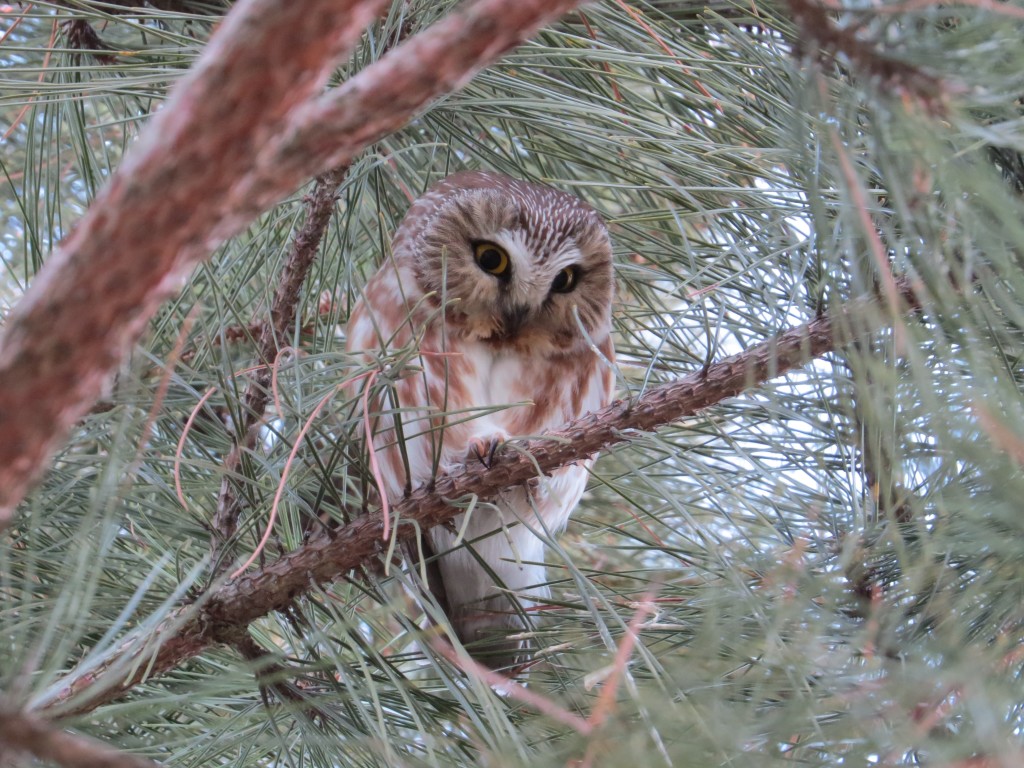
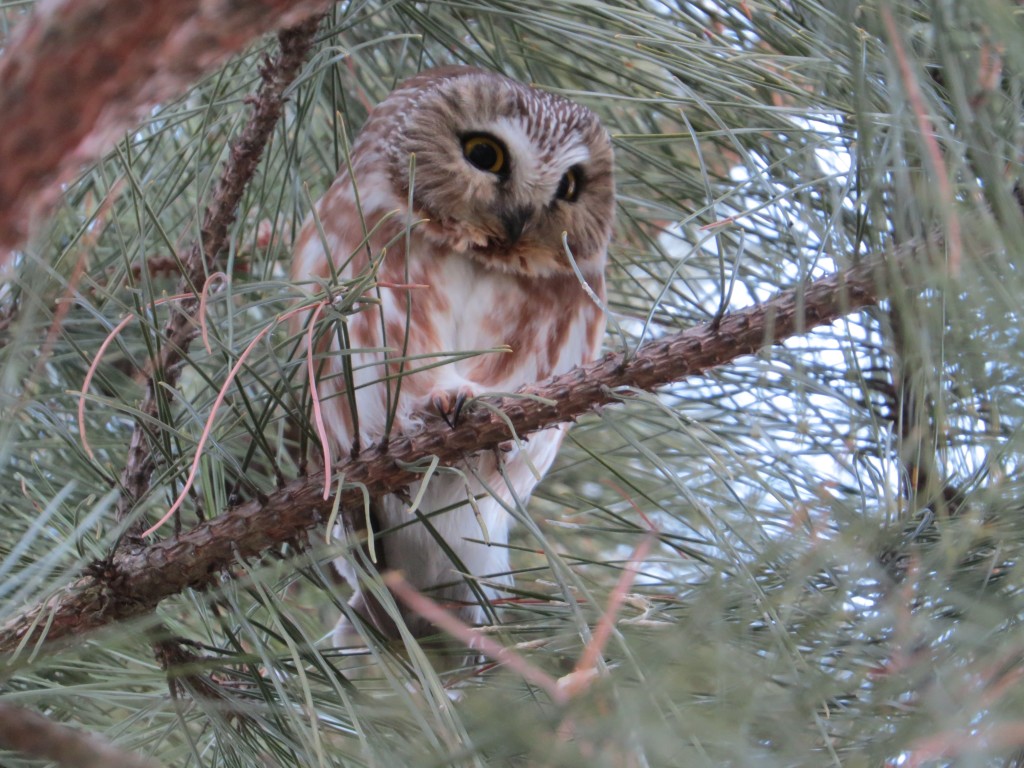 What was fascinating to me was how sloth-like this Owl was in moving its head. The movement was almost indiscernible. The fact that we were finally looking at a real Northern Saw-whet Owl combined with a close encounter with a tame bird makes this one of the best Owl experiences I’ve ever had.
What was fascinating to me was how sloth-like this Owl was in moving its head. The movement was almost indiscernible. The fact that we were finally looking at a real Northern Saw-whet Owl combined with a close encounter with a tame bird makes this one of the best Owl experiences I’ve ever had.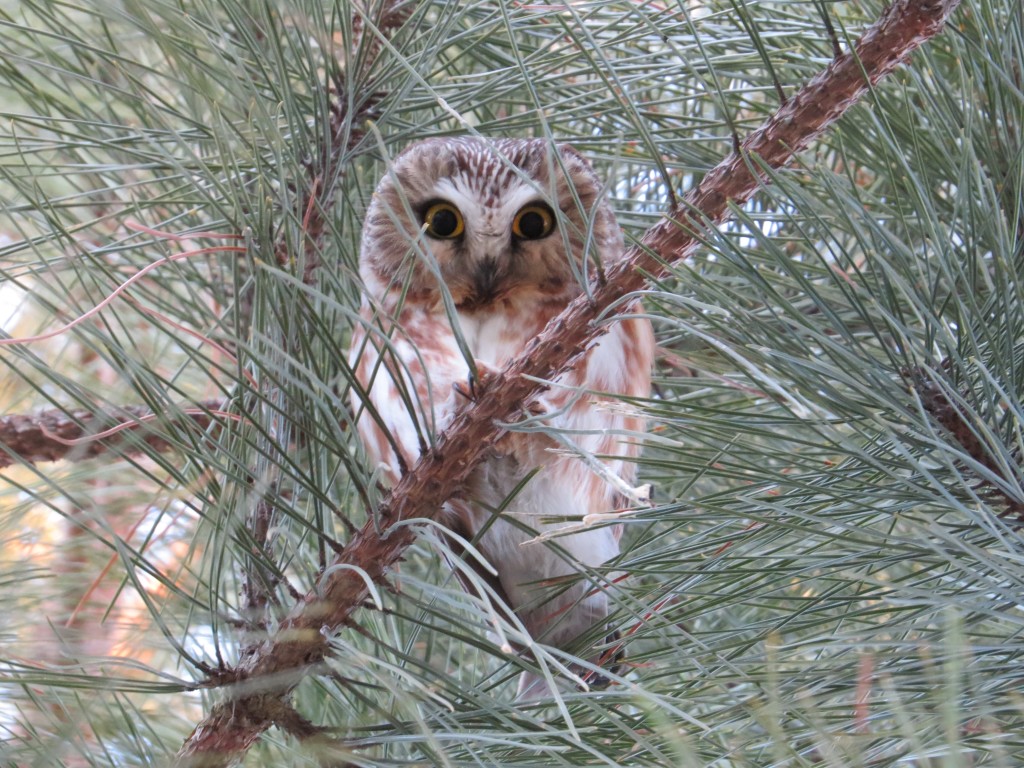 After taking last looks at the Owl and admiring the massive pile of pellets and all the whitewash from an Owl that has sat in this same spot every day for the winter, Steve and I thanked the homeowners and headed home feeling good…or evil. Steve called up his twin brother who is also a birder and rubbed in his new lifer. I went to the liquor store.
After taking last looks at the Owl and admiring the massive pile of pellets and all the whitewash from an Owl that has sat in this same spot every day for the winter, Steve and I thanked the homeowners and headed home feeling good…or evil. Steve called up his twin brother who is also a birder and rubbed in his new lifer. I went to the liquor store.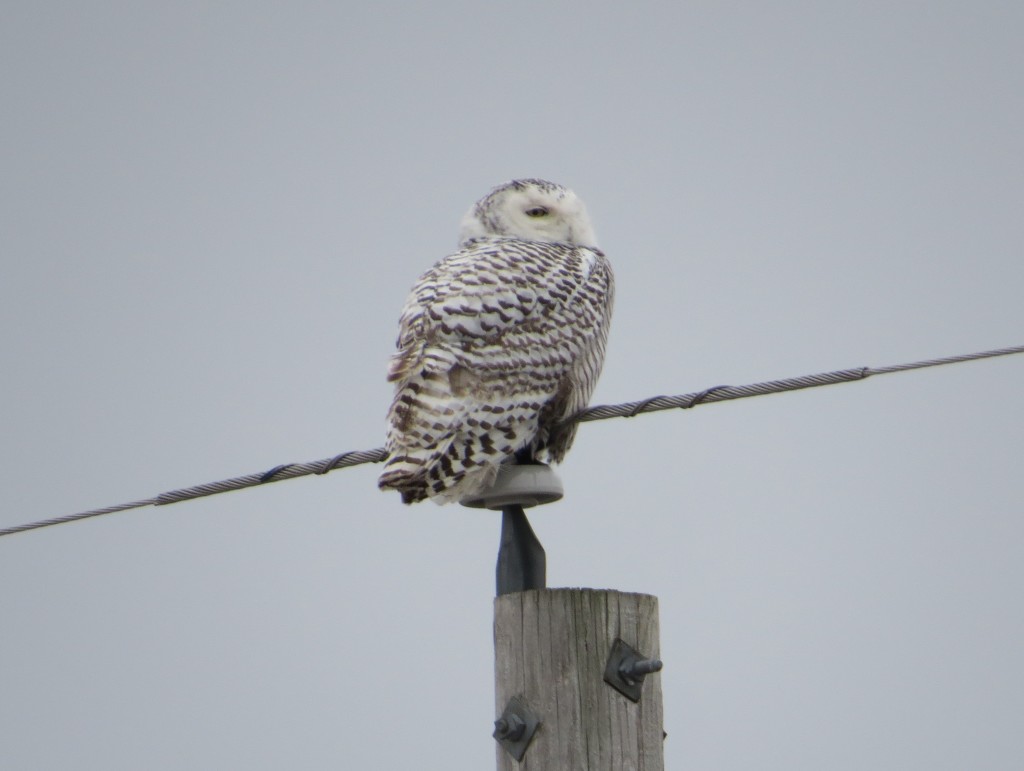 Long-time readers of ABWCH may recall that two years ago, my coworkers and students were feeding me sightings nearly daily of a crazy number of Snowy Owls. Those were the gold old days of the first of two consecutive irruption years. Fellow teacher, Bonnie, spotted this one this past weekend. Bonnie has a way with the SNOW–she found me two of them a couple years ago.
Long-time readers of ABWCH may recall that two years ago, my coworkers and students were feeding me sightings nearly daily of a crazy number of Snowy Owls. Those were the gold old days of the first of two consecutive irruption years. Fellow teacher, Bonnie, spotted this one this past weekend. Bonnie has a way with the SNOW–she found me two of them a couple years ago.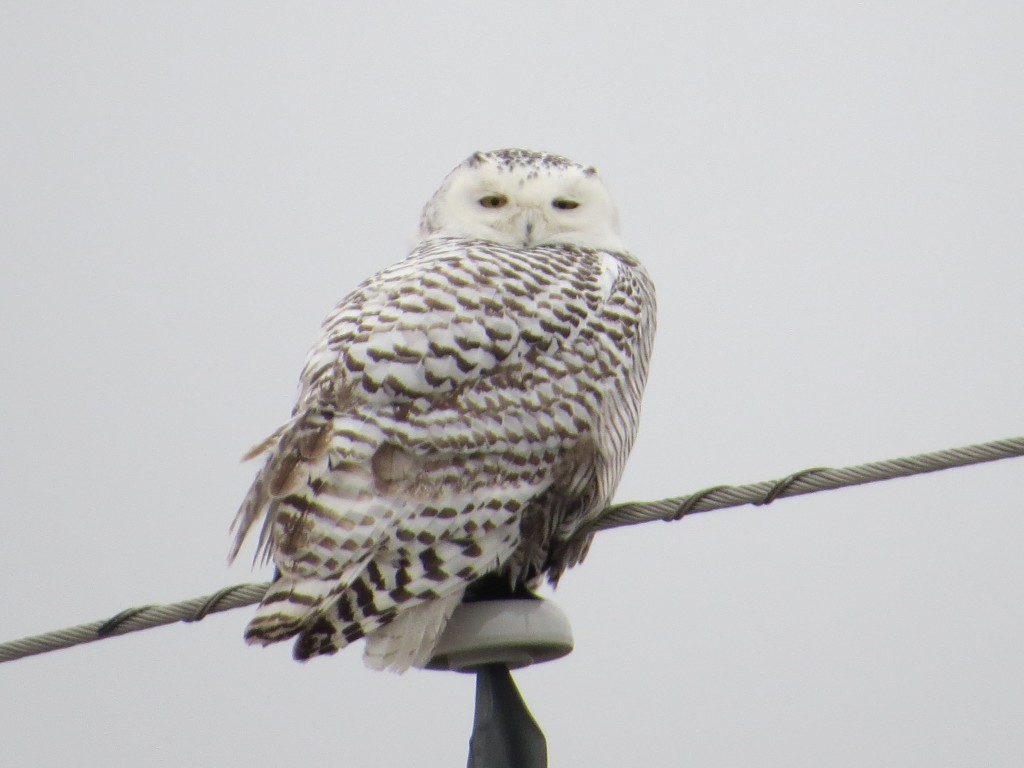 Despite this being a non-irruption year, I’ve had reports this winter of at least 5 Snowy Owls in my two-county birding area. This, however, is the first local one I’ve seen this season. Fellow teacher and birding friend Brad relocated Bonnie’s find Monday morning. Brad did the Minnesota-nice birder thing of babysitting it until I got on scene. Another birding/teacher friend, Theresa, also joined the mix. Monday was a scheduled day off for all of us, yet here we were holding a staff meeting in the open countryside. It was a pretty good meeting.
Despite this being a non-irruption year, I’ve had reports this winter of at least 5 Snowy Owls in my two-county birding area. This, however, is the first local one I’ve seen this season. Fellow teacher and birding friend Brad relocated Bonnie’s find Monday morning. Brad did the Minnesota-nice birder thing of babysitting it until I got on scene. Another birding/teacher friend, Theresa, also joined the mix. Monday was a scheduled day off for all of us, yet here we were holding a staff meeting in the open countryside. It was a pretty good meeting.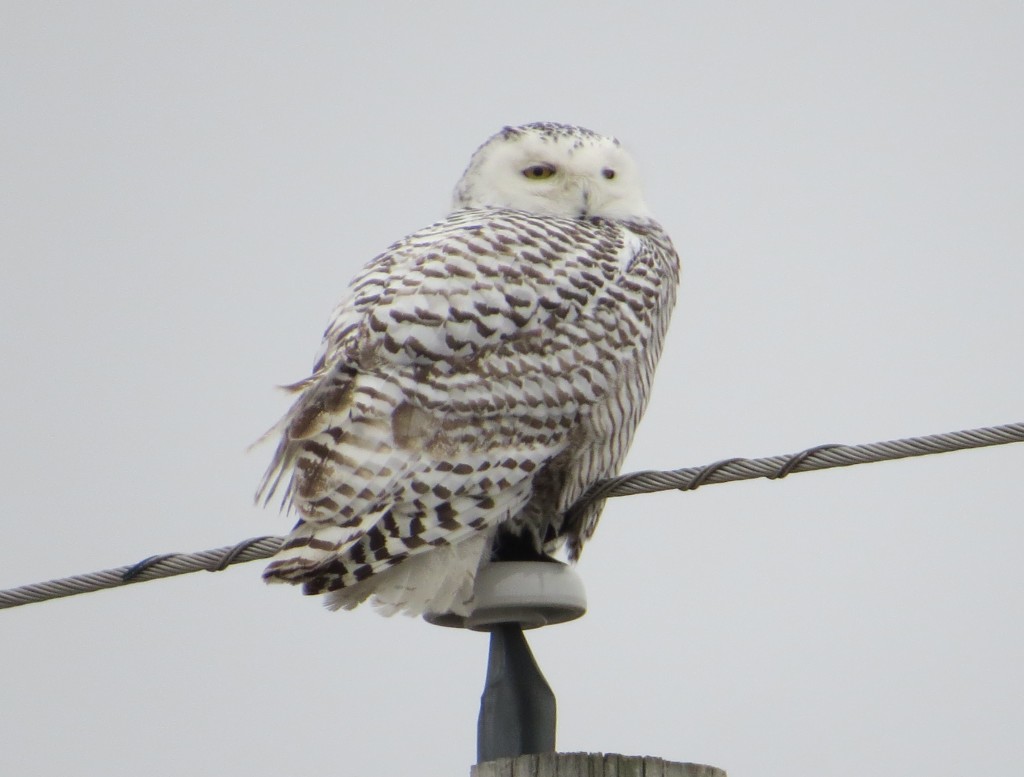 After this meeting of the minds, I actually went off to a real meeting at school. But then it was back to birding business as I traveled up to Sherburne National Wildlife Refuge that same day to look for the White-winged Crossbills that have become very reliable there. My previous lifer-sighting was a quick glimpse at a female; I was wanting to see and photograph a male.
After this meeting of the minds, I actually went off to a real meeting at school. But then it was back to birding business as I traveled up to Sherburne National Wildlife Refuge that same day to look for the White-winged Crossbills that have become very reliable there. My previous lifer-sighting was a quick glimpse at a female; I was wanting to see and photograph a male.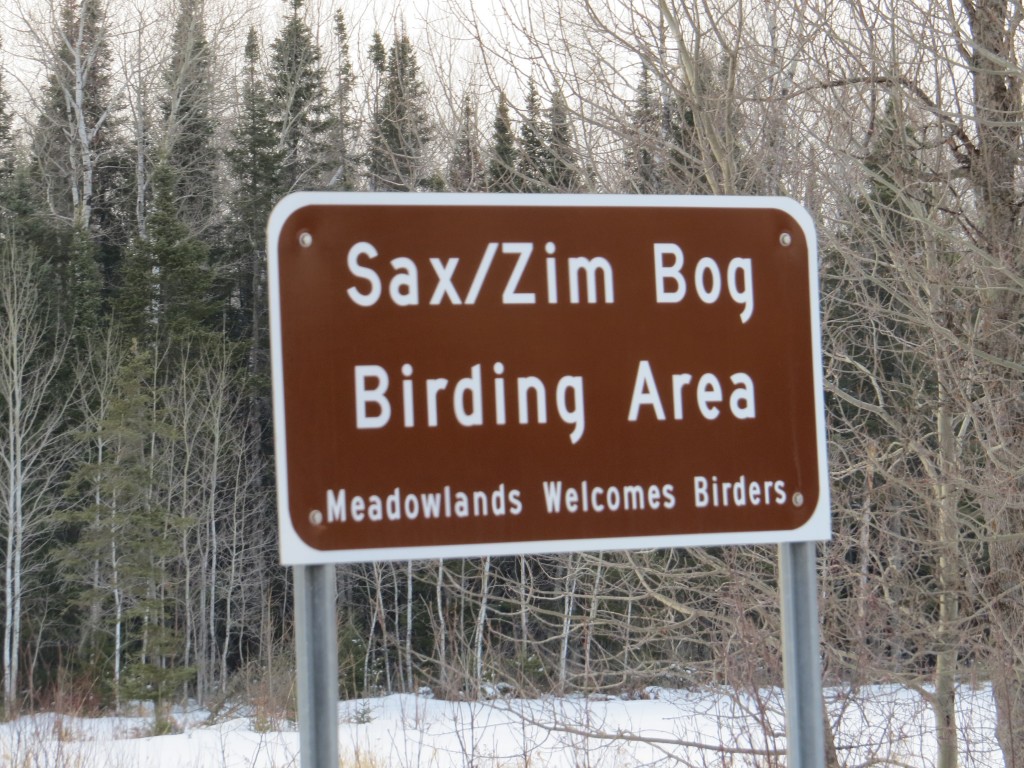
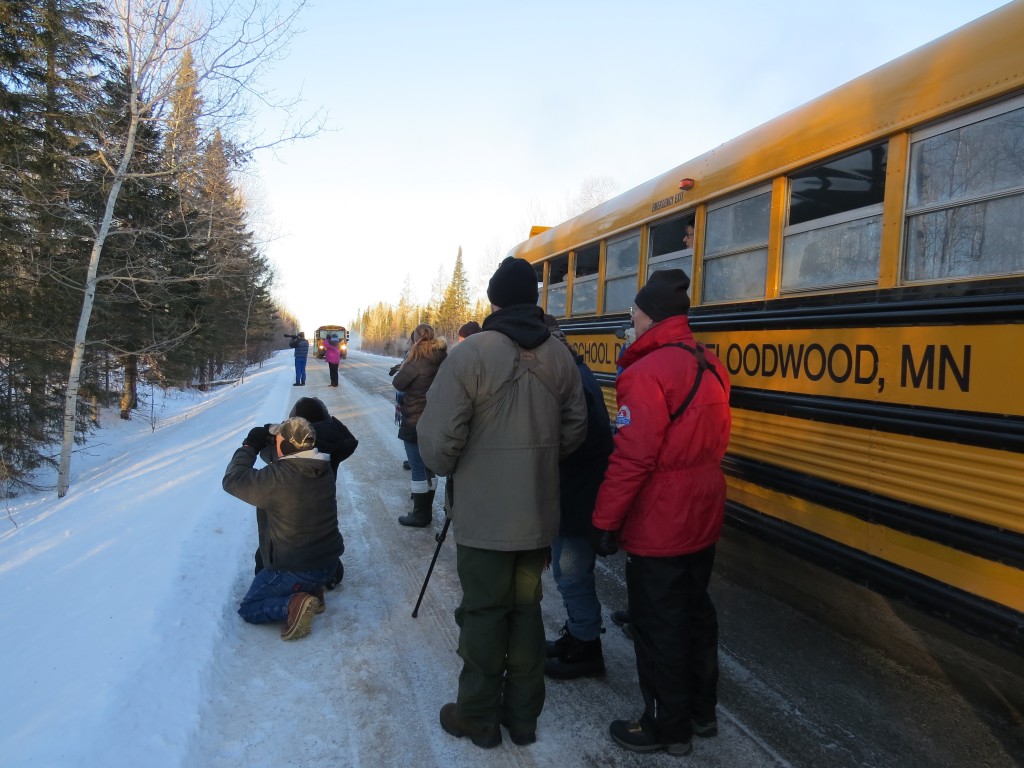 Fumbling with the scope barehanded in 30 below caused me to climb back on the bus immediately after setting up the apparatus, but eventually I did get back out for a couple quick photos myself.
Fumbling with the scope barehanded in 30 below caused me to climb back on the bus immediately after setting up the apparatus, but eventually I did get back out for a couple quick photos myself.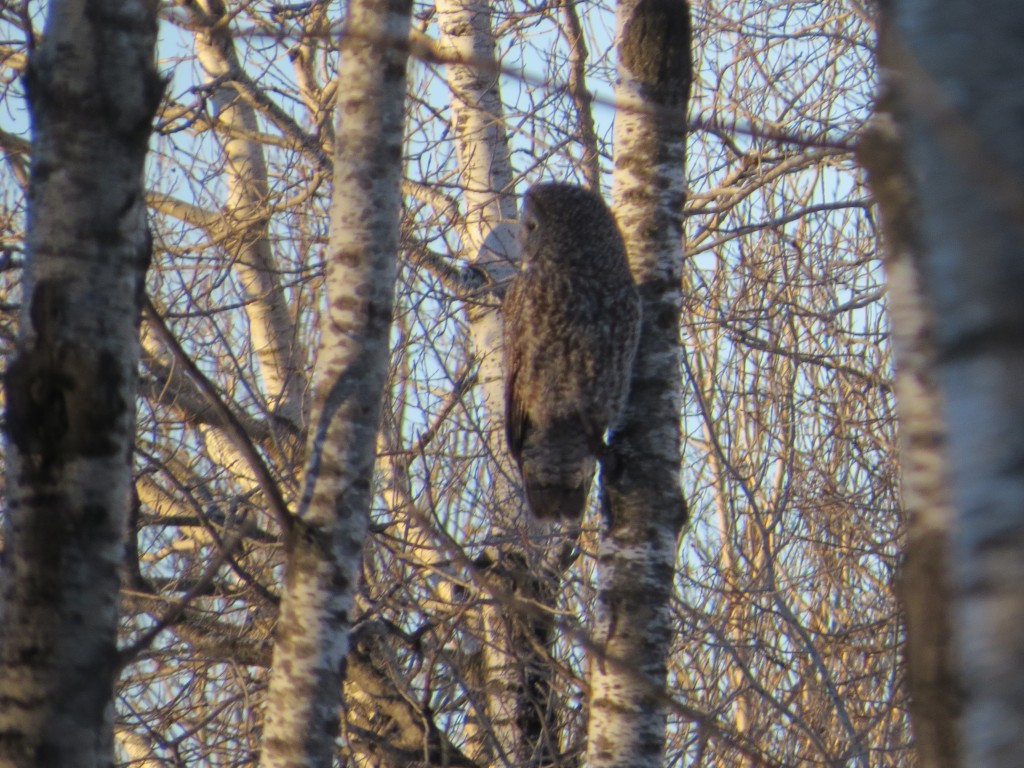
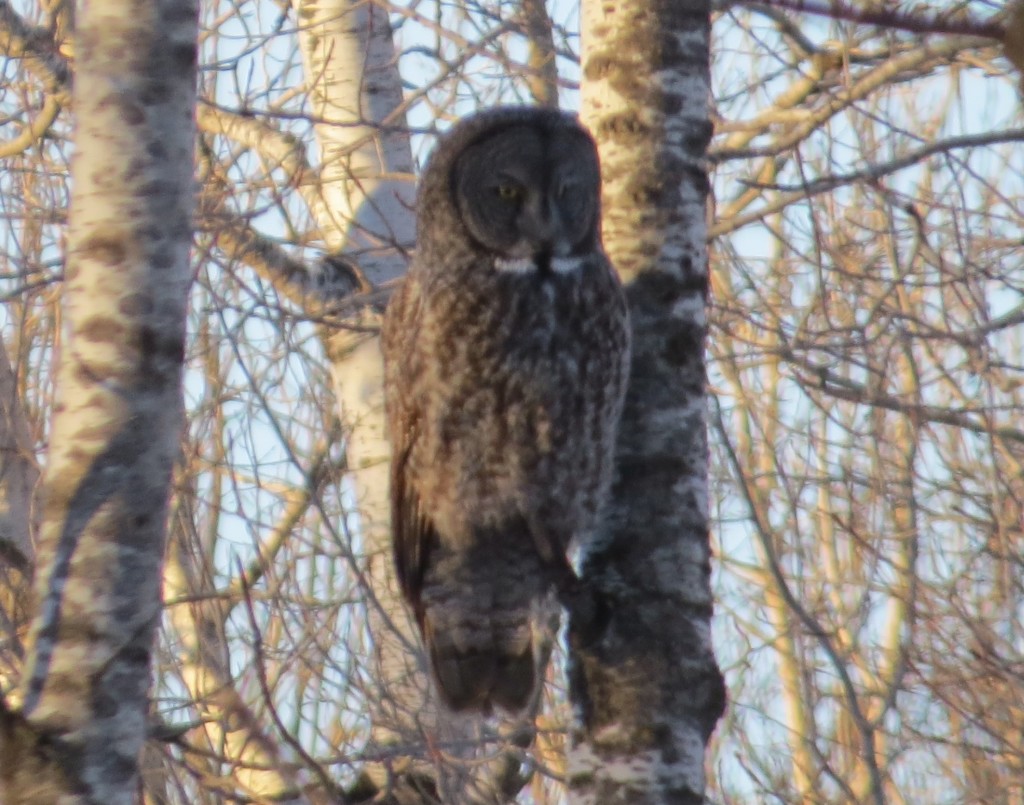
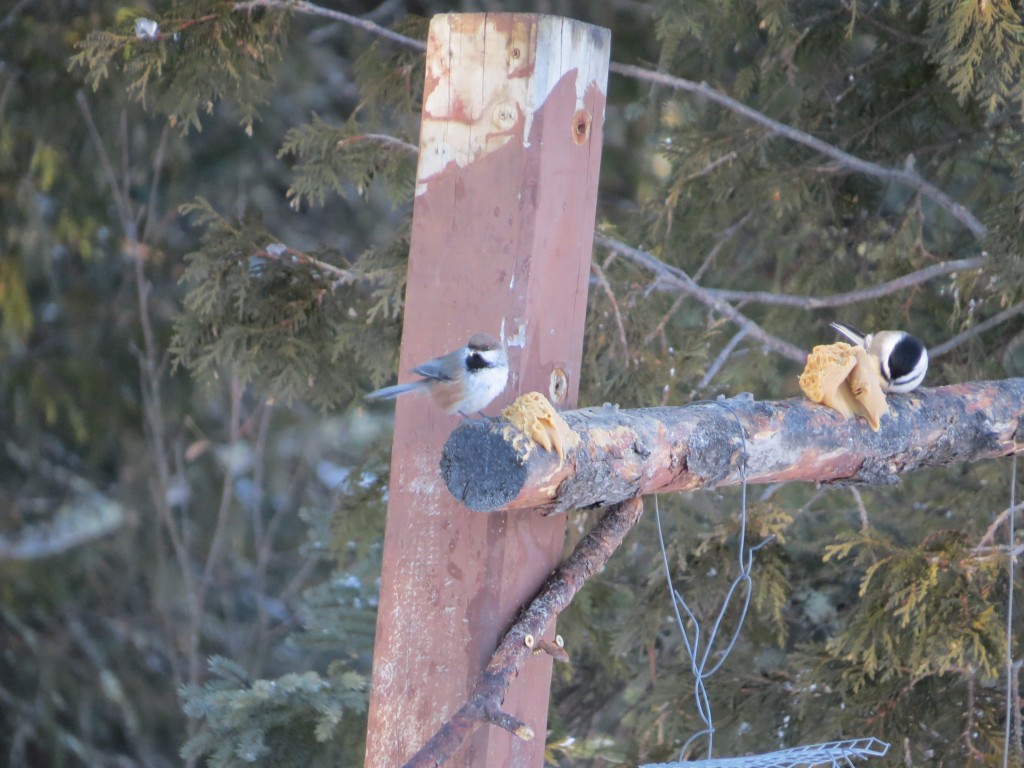
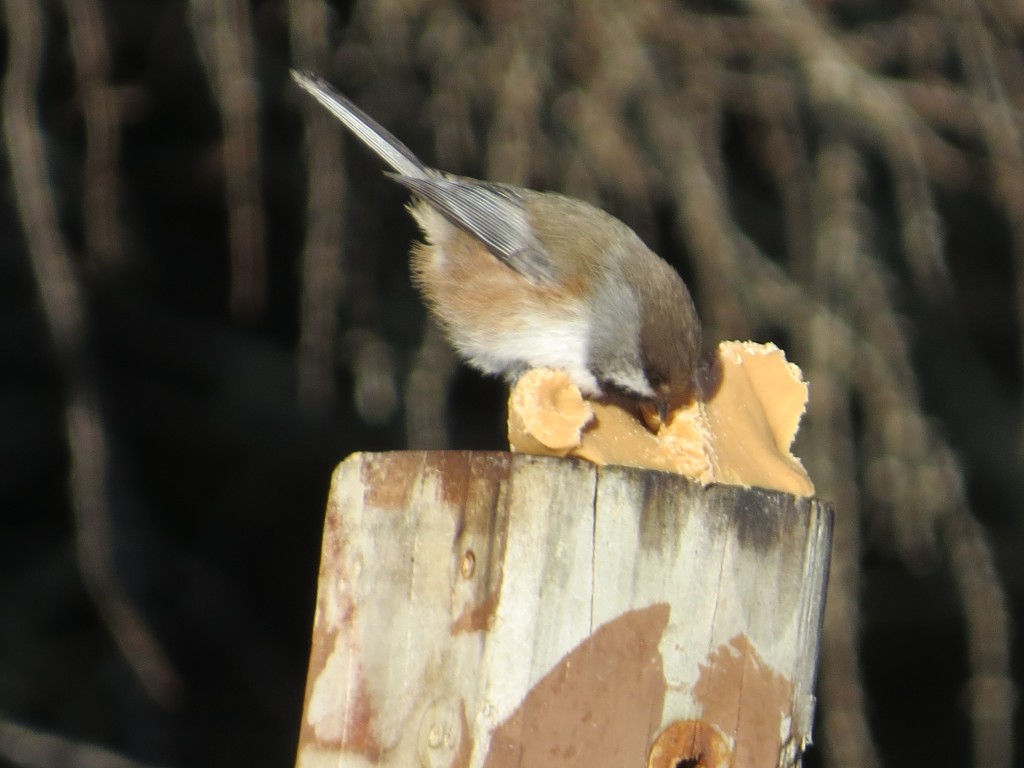 Another crowd favorite were both species of Grosbeaks, though on this day I only photographed the “yellow ones” as locals sometimes call them.
Another crowd favorite were both species of Grosbeaks, though on this day I only photographed the “yellow ones” as locals sometimes call them.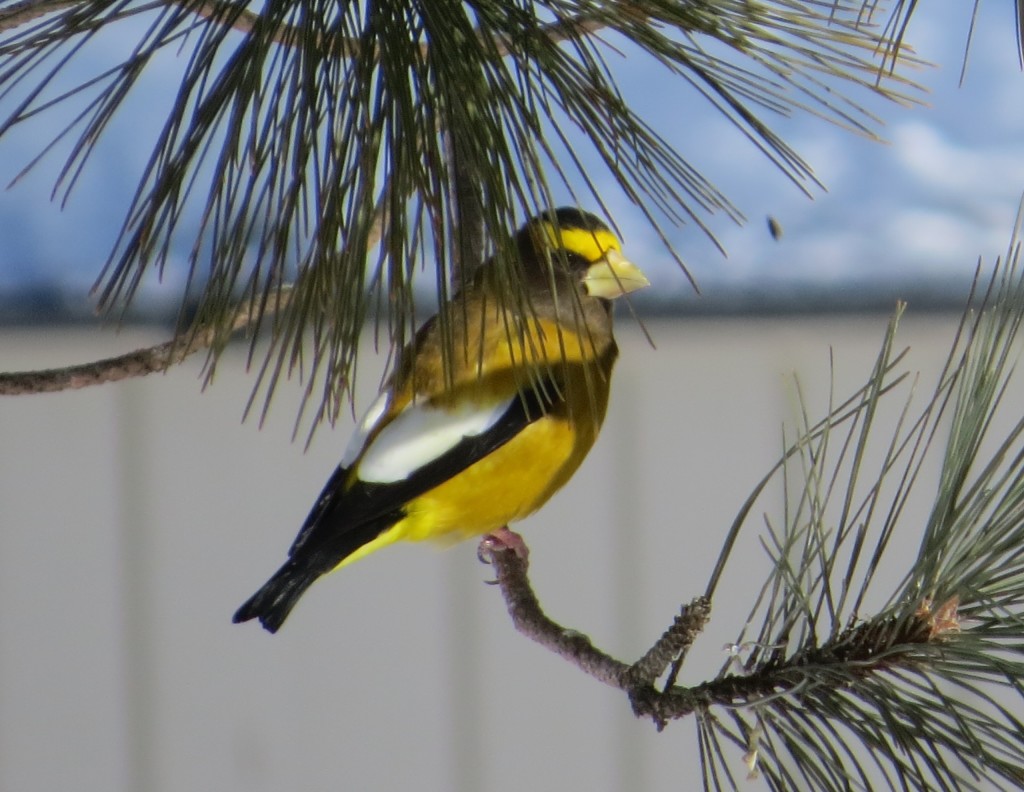 I checked in with Mr. Florida a couple times throughout the day to see what his lifer tally was. Besides the Great Gray, both Grosbeaks, and the Chickadee, he also picked up Northern Shrike, Common Redpoll, and a surprisingly hard-to-find Gray Jay. Despite missing on Ruffed and Sharp-tailed Grouse, Mr. Florida had the highest lifer total for our group. He was happy, especially because he told me he was not expecting the Great Gray.
I checked in with Mr. Florida a couple times throughout the day to see what his lifer tally was. Besides the Great Gray, both Grosbeaks, and the Chickadee, he also picked up Northern Shrike, Common Redpoll, and a surprisingly hard-to-find Gray Jay. Despite missing on Ruffed and Sharp-tailed Grouse, Mr. Florida had the highest lifer total for our group. He was happy, especially because he told me he was not expecting the Great Gray.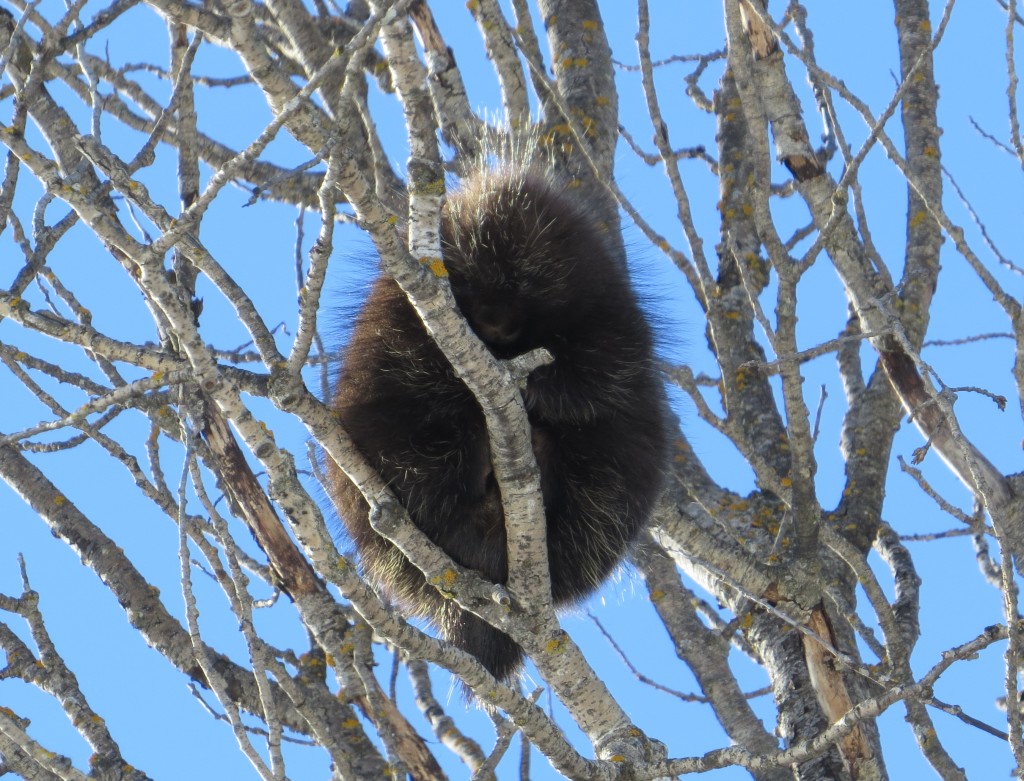 After birding for some time, our day was truncated late afternoon and did not allow for more Owl searching during prime evening hours as we had to get back to Meadowlands for the dinner and program by Canadian Great Gray Owl researcher, Dr. James Duncan. Listening to an authority on Great Gray Owls give a captivating presentation in a Canadian accent is like a giant exclamation point on a day in which many got their coveted lifer.
After birding for some time, our day was truncated late afternoon and did not allow for more Owl searching during prime evening hours as we had to get back to Meadowlands for the dinner and program by Canadian Great Gray Owl researcher, Dr. James Duncan. Listening to an authority on Great Gray Owls give a captivating presentation in a Canadian accent is like a giant exclamation point on a day in which many got their coveted lifer.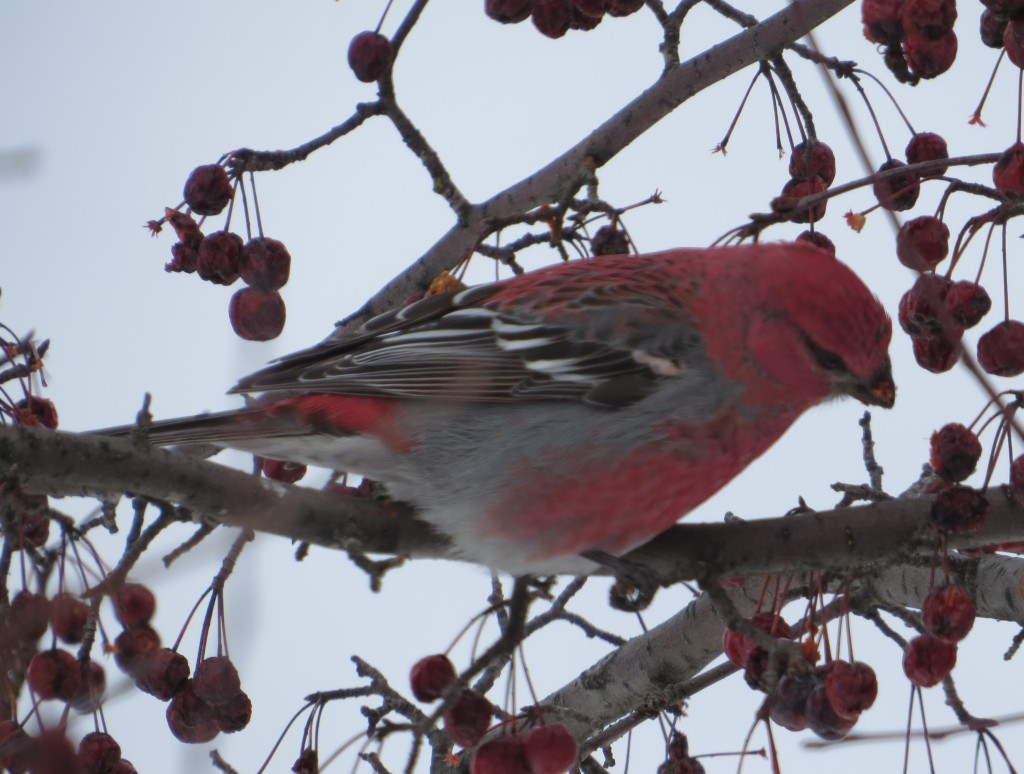
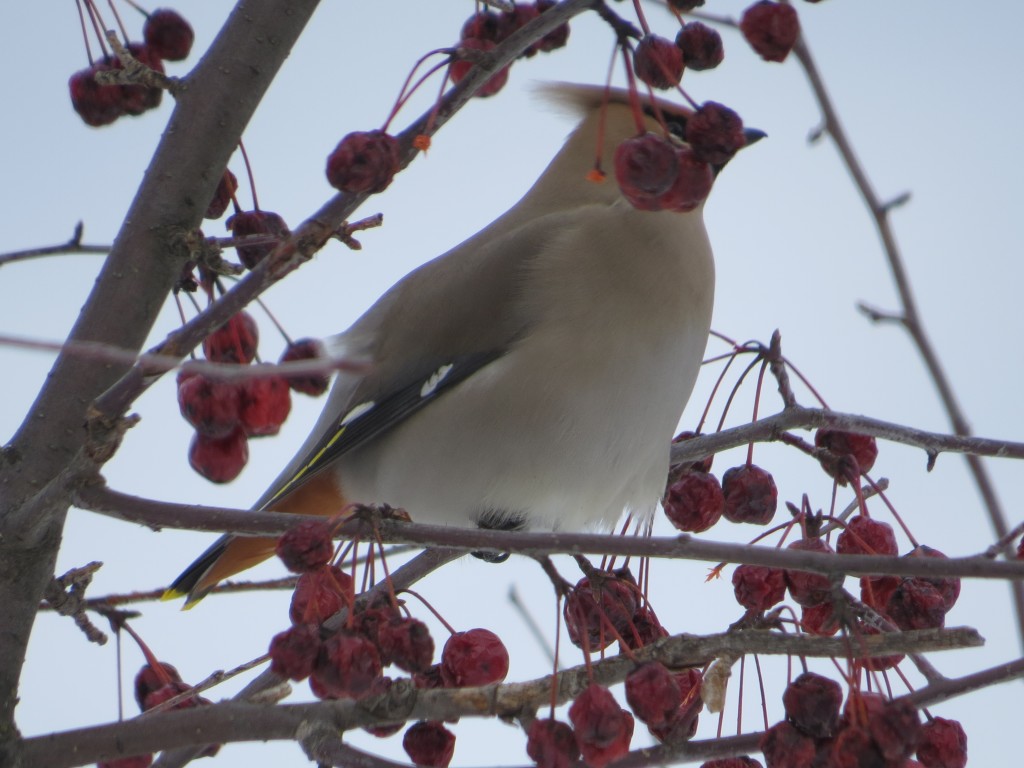 These were photo upgrades for me, though much work still needs to be done with this species. Considering I was sandwiched between a bus and a snowbank, I’ll take them though.
These were photo upgrades for me, though much work still needs to be done with this species. Considering I was sandwiched between a bus and a snowbank, I’ll take them though.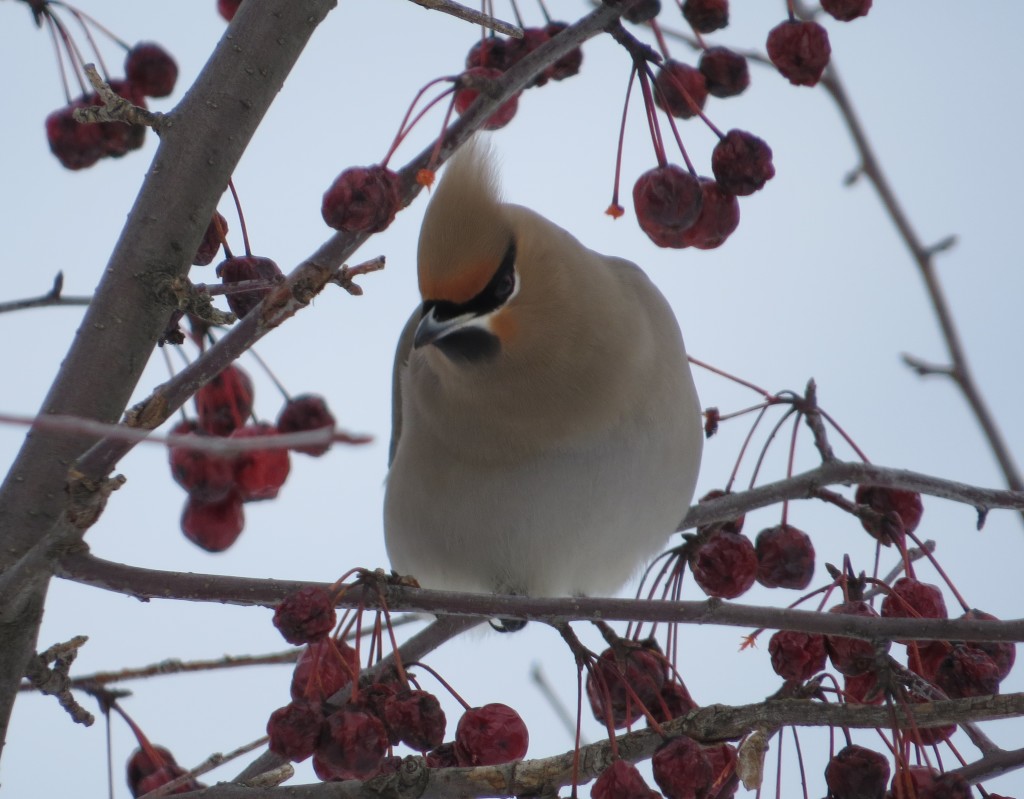
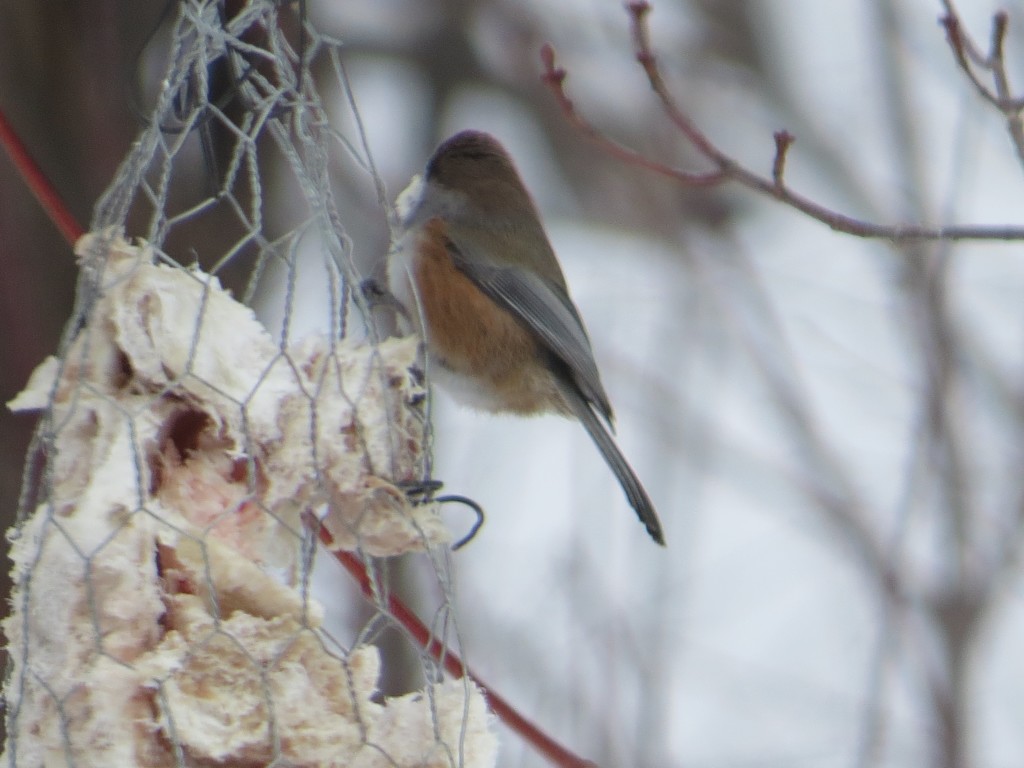 Then again, maybe I should have considering the address.
Then again, maybe I should have considering the address.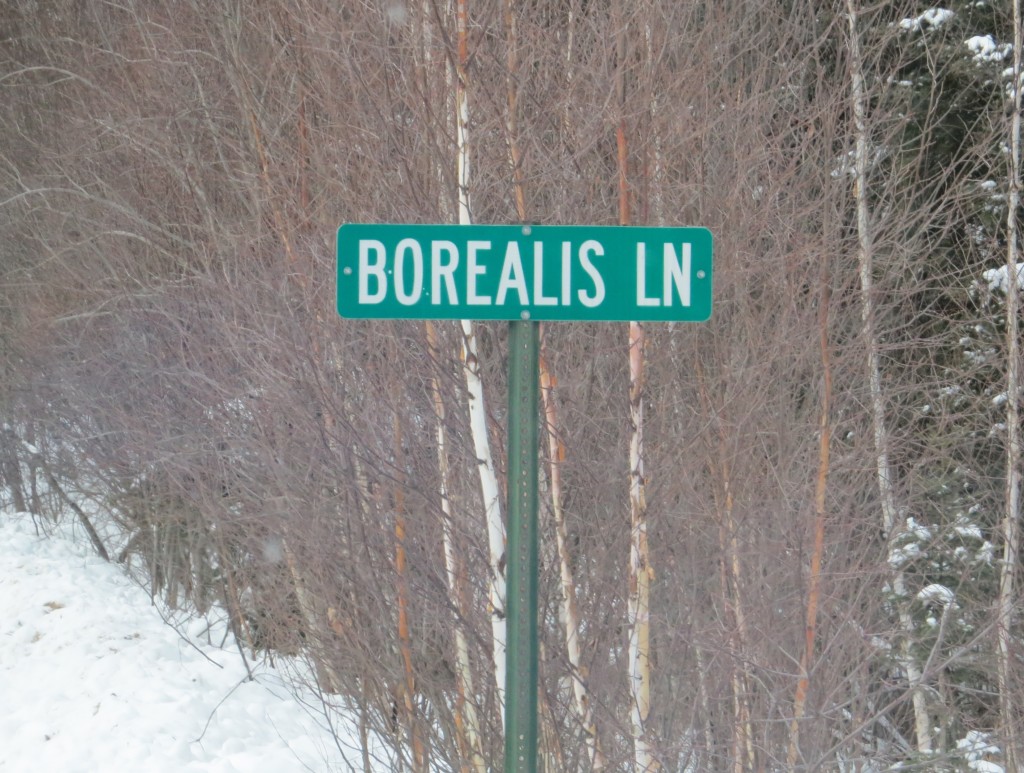 Our group continued on from the B&B searching towns on the way back for the ever elusive Bohemians. A Snowshoe Hare, thought he was elusive and brought some excitement to the group when the birds were lacking.
Our group continued on from the B&B searching towns on the way back for the ever elusive Bohemians. A Snowshoe Hare, thought he was elusive and brought some excitement to the group when the birds were lacking.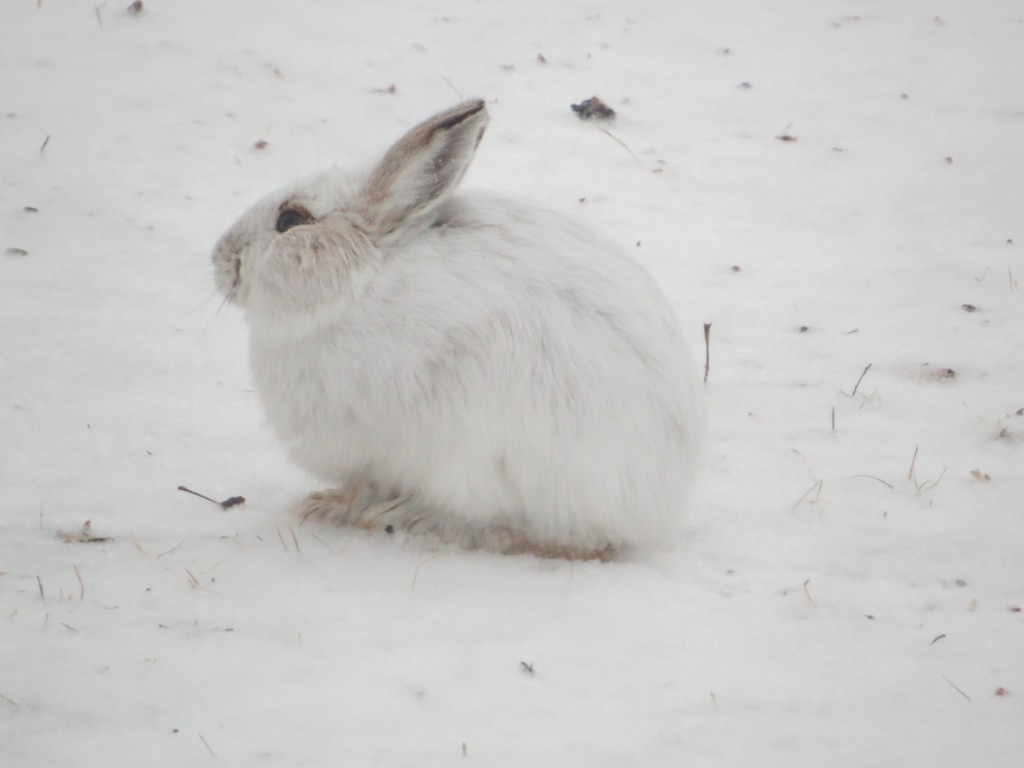 With one major bird lifer and one mammal lifer for the group, it was a long, sleepy day. We did have a slight pick-me-up when we were coming back into the Sax-Zim Bog and spotted a very out-of-season Common Grackle. But still, it’s a Grackle and doesn’t come close to filling the Sprucie void. There’s always next year. After all, it gives the festival-goers and guides a reason to return. As if they need another reason…
With one major bird lifer and one mammal lifer for the group, it was a long, sleepy day. We did have a slight pick-me-up when we were coming back into the Sax-Zim Bog and spotted a very out-of-season Common Grackle. But still, it’s a Grackle and doesn’t come close to filling the Sprucie void. There’s always next year. After all, it gives the festival-goers and guides a reason to return. As if they need another reason…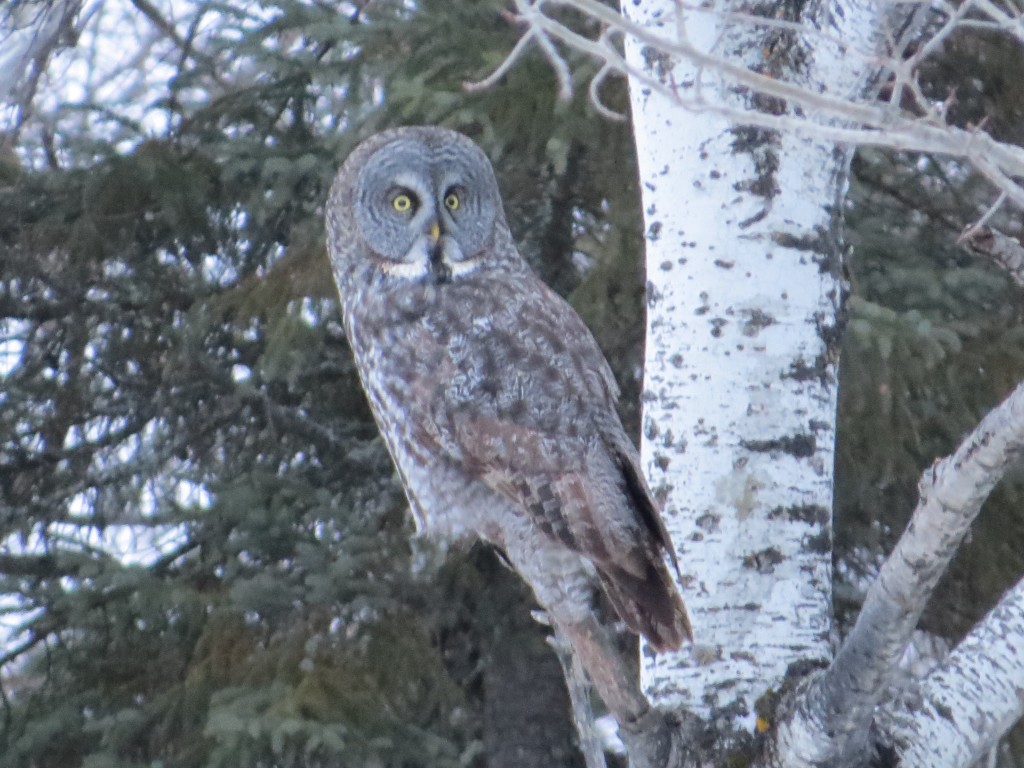




 Something even more amazing happened while we tried to lure out this guy–a second Black-back showed up! There was a male and a female! Unfortunately I never did see that classic field mark of the yellow crown on the male, but Tommy and Gordon each got to see it. I will continue to search for these birds until I finally see that and finally get good photos of this species.
Something even more amazing happened while we tried to lure out this guy–a second Black-back showed up! There was a male and a female! Unfortunately I never did see that classic field mark of the yellow crown on the male, but Tommy and Gordon each got to see it. I will continue to search for these birds until I finally see that and finally get good photos of this species.



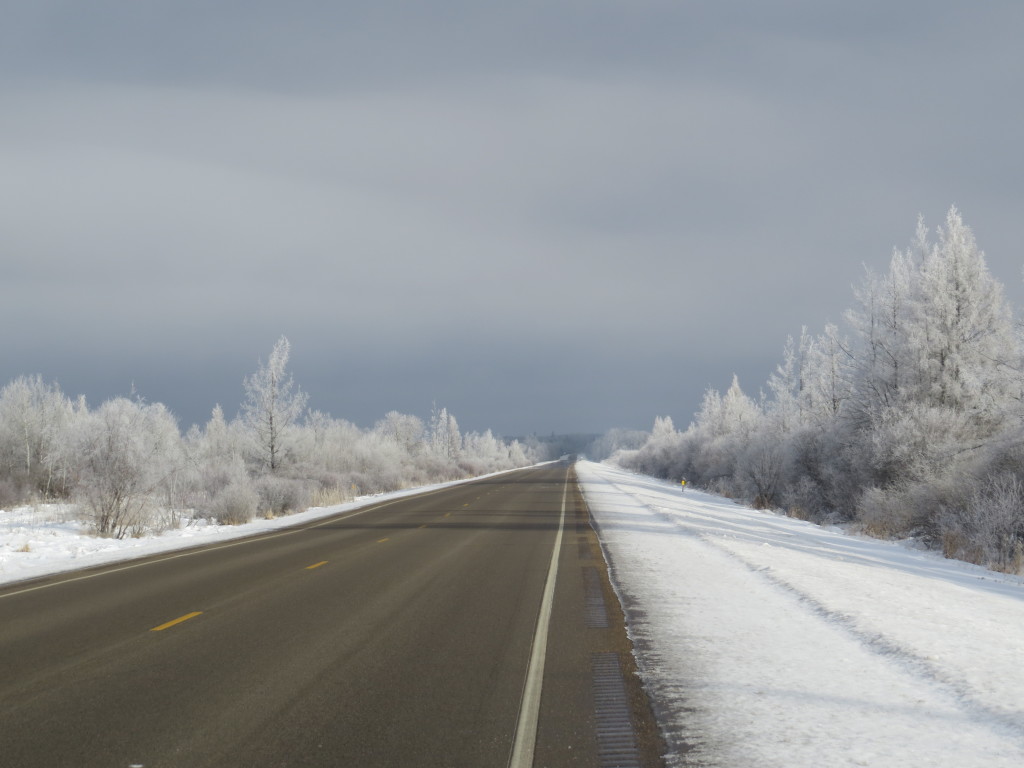
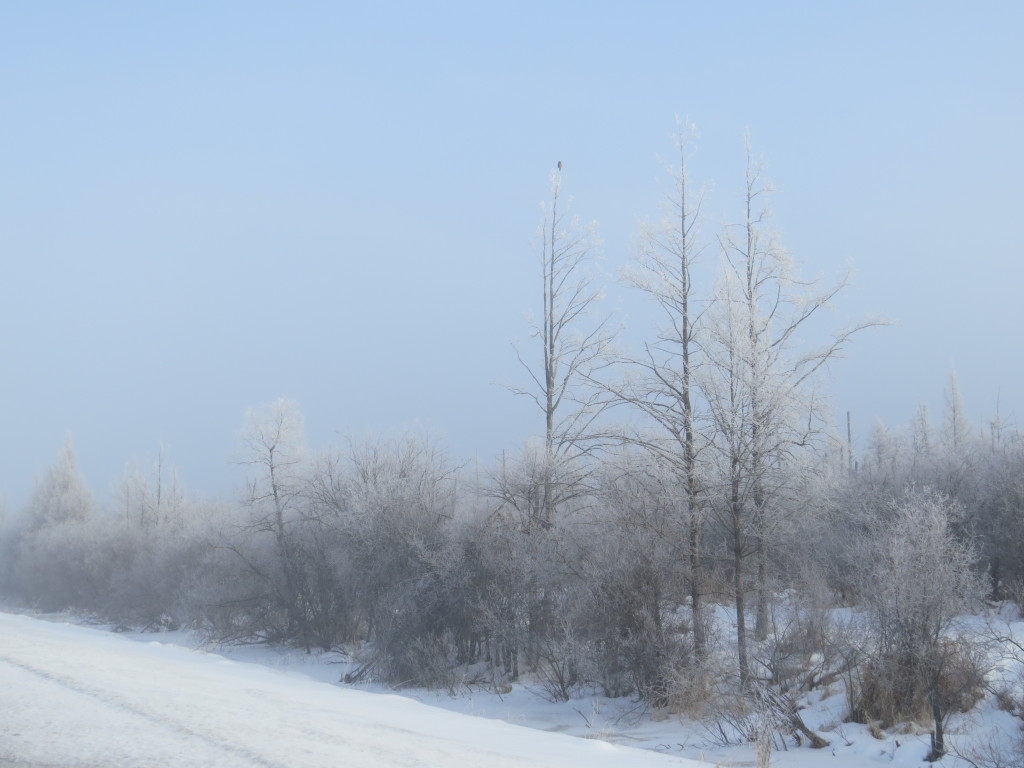 Brakes were deployed, and doors were flung open. It was a happy moment indeed. If you look, you can even see a big smile on Tommy’s face in this pic.
Brakes were deployed, and doors were flung open. It was a happy moment indeed. If you look, you can even see a big smile on Tommy’s face in this pic.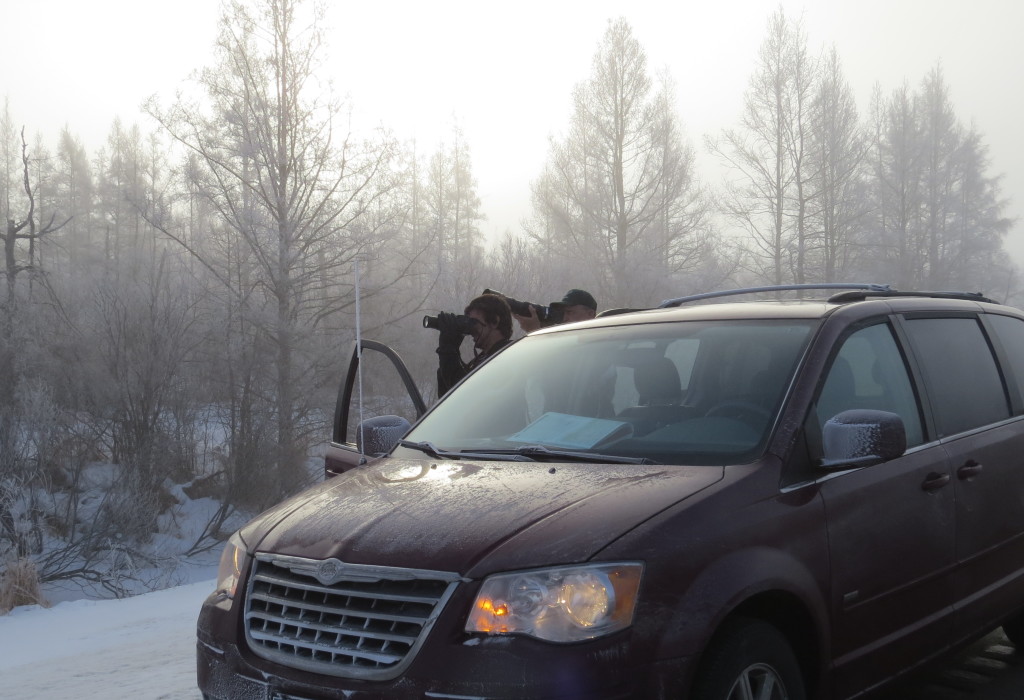 I’ve seen plenty of Hawk Owls, so it was fun to watch these guys enjoy the moment. For this pic below I actually laid on the cold 310.
I’ve seen plenty of Hawk Owls, so it was fun to watch these guys enjoy the moment. For this pic below I actually laid on the cold 310. 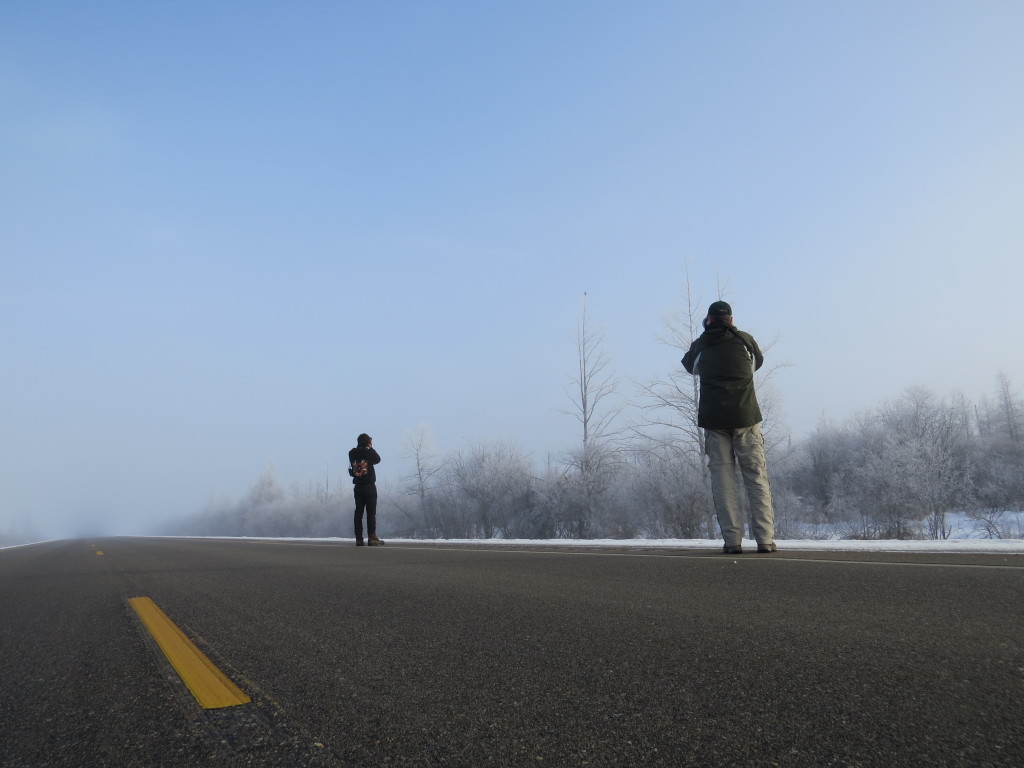 A nice bonus occurred when we were observing the Hawk Owl–Tommy spied their lifer Pileated Woodpecker fly across the road! I had told Gordon all along that if we see a Pileated, that’s exactly how it would happen.
A nice bonus occurred when we were observing the Hawk Owl–Tommy spied their lifer Pileated Woodpecker fly across the road! I had told Gordon all along that if we see a Pileated, that’s exactly how it would happen.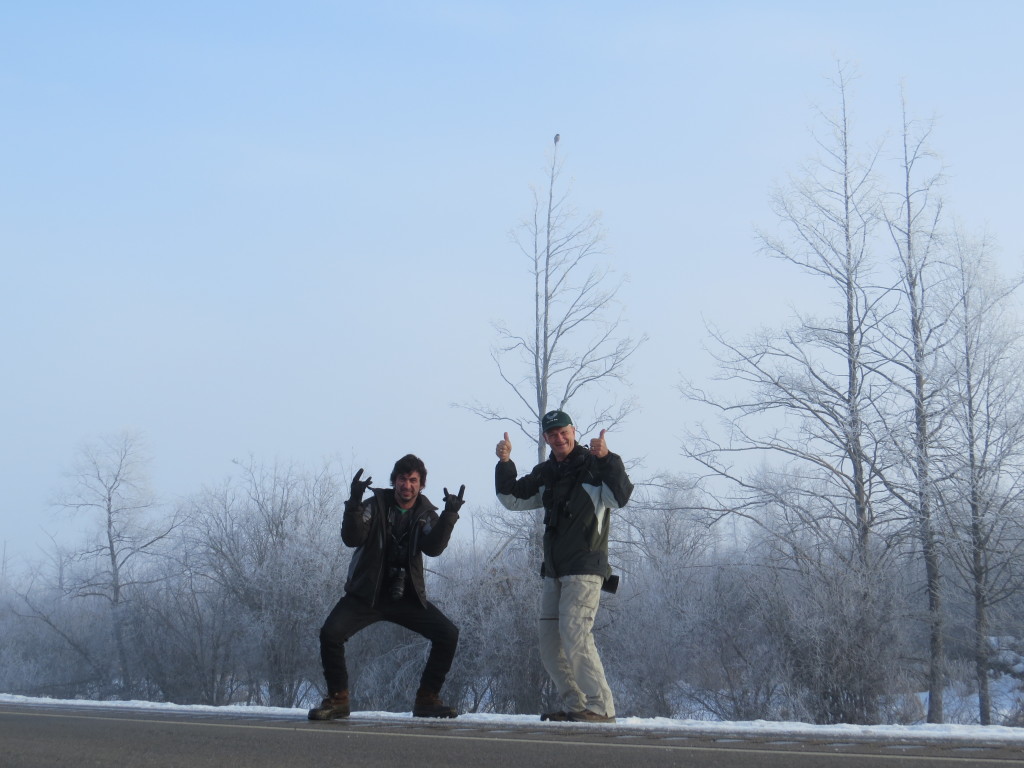
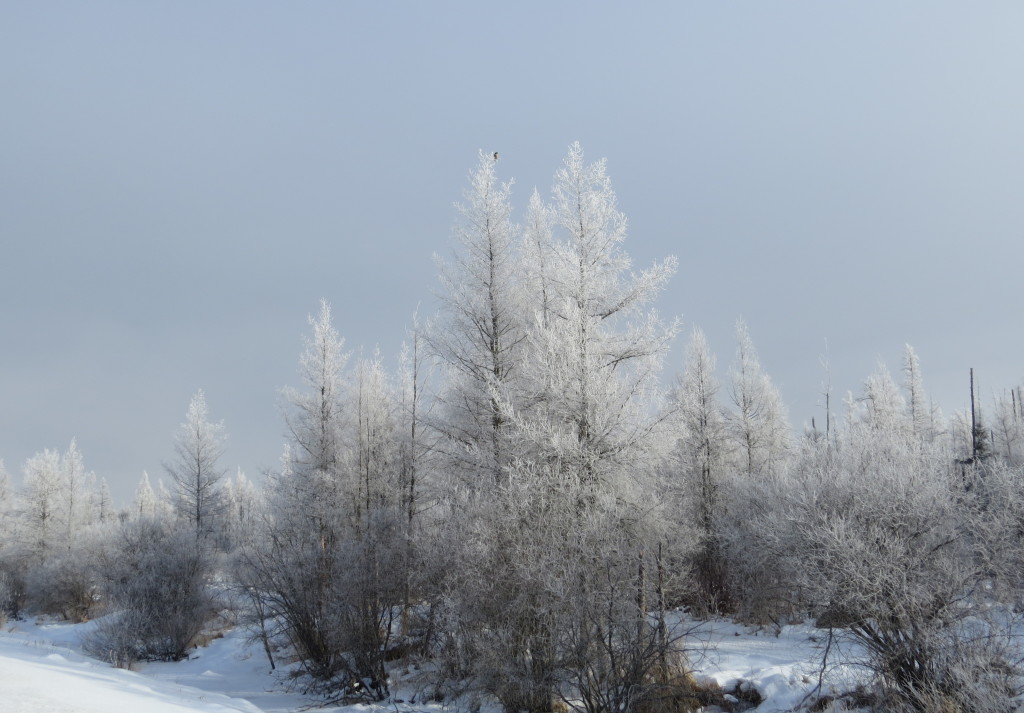
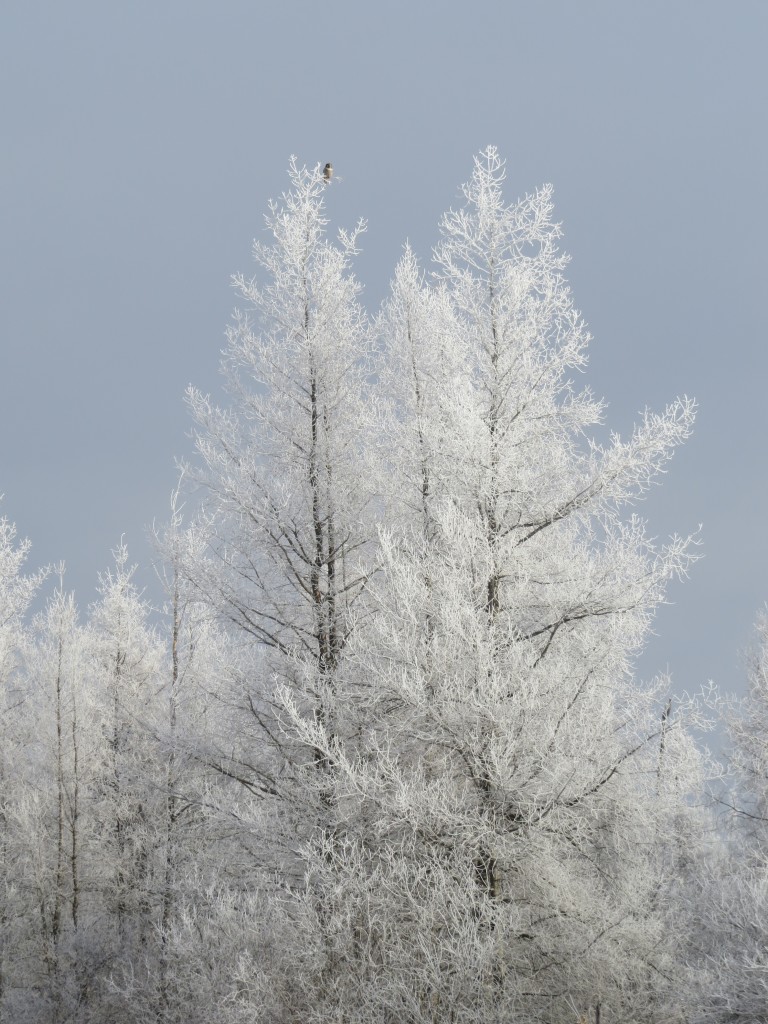
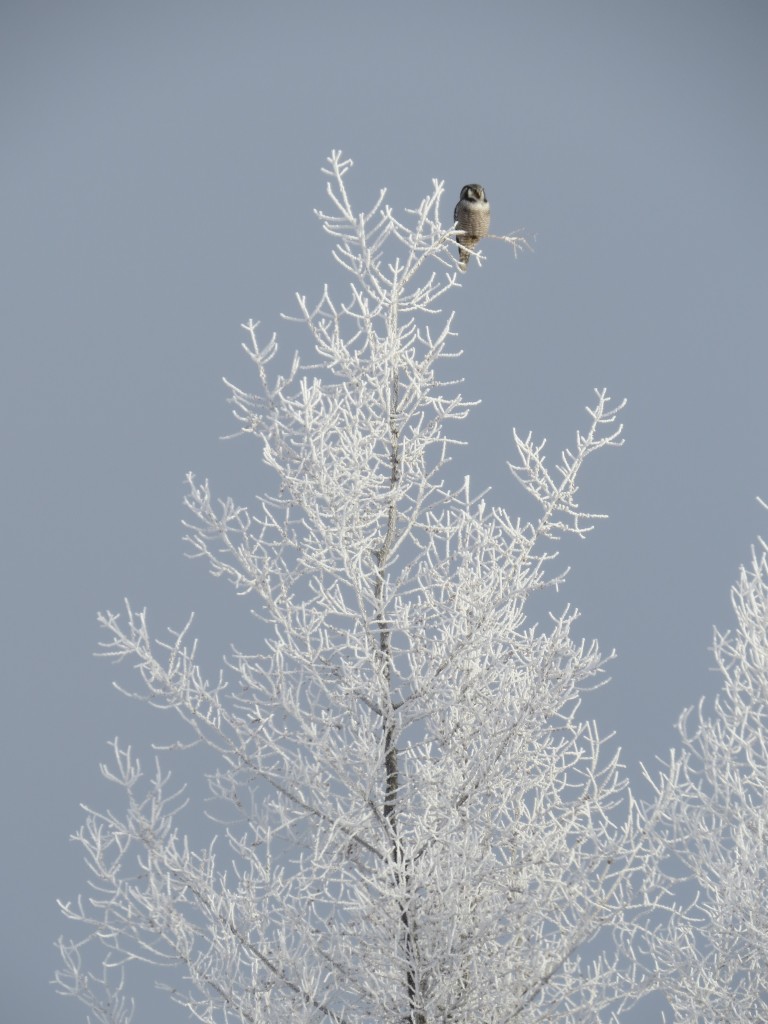
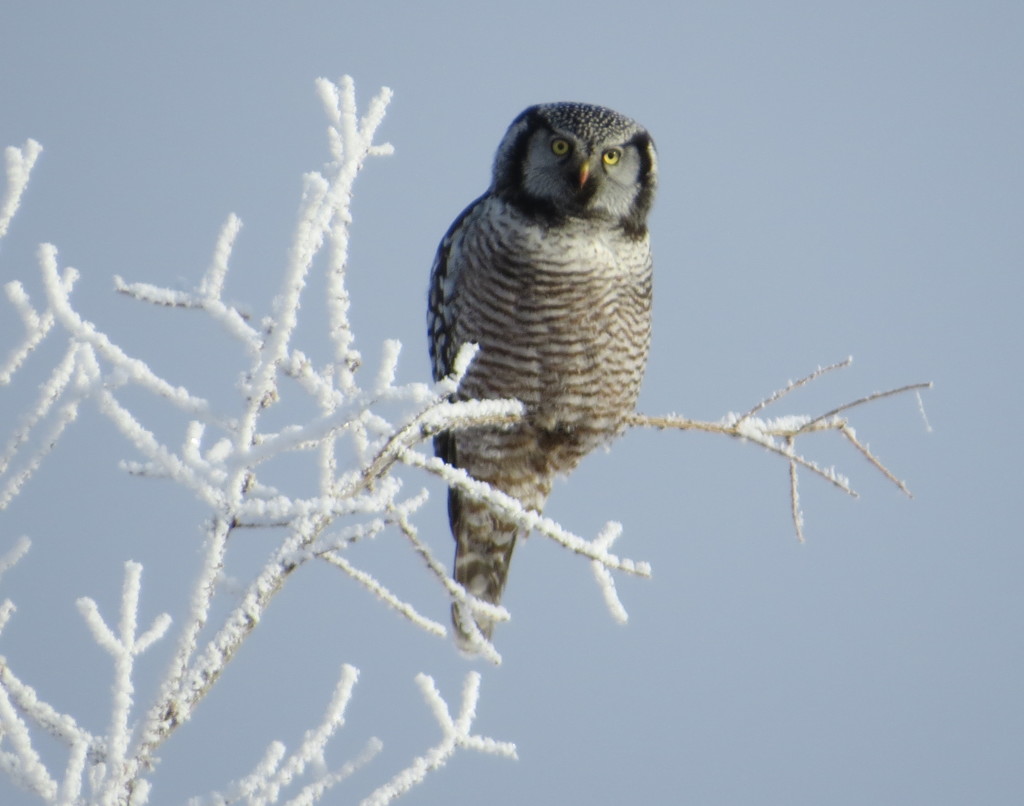
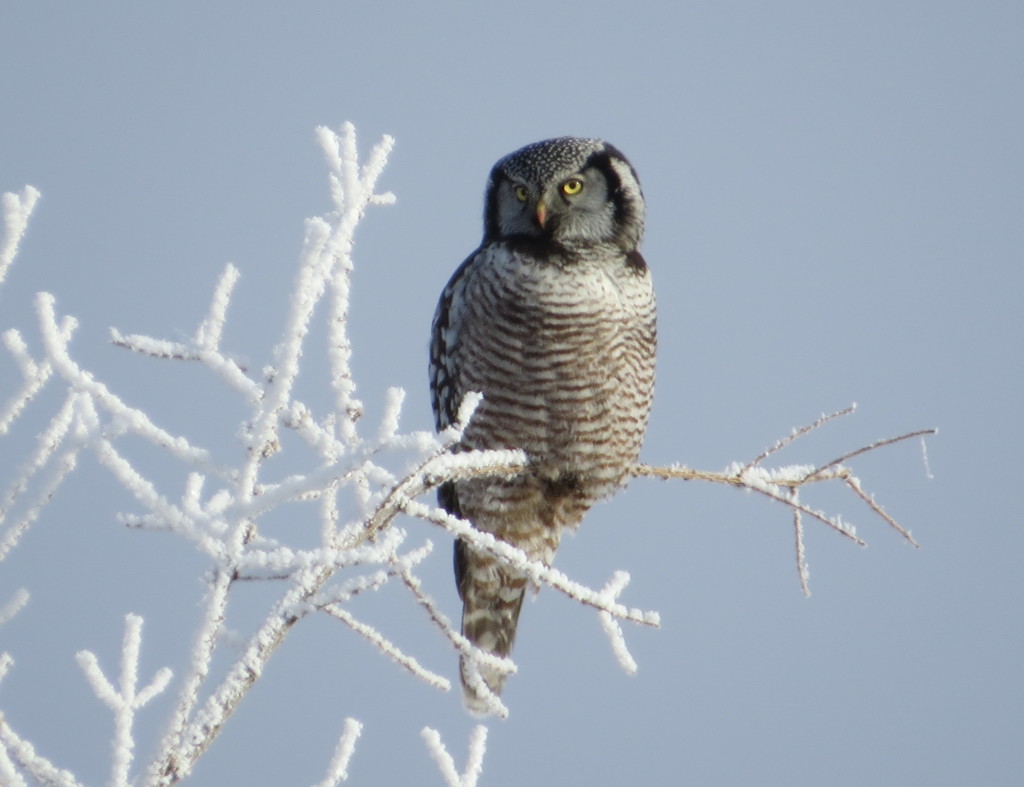
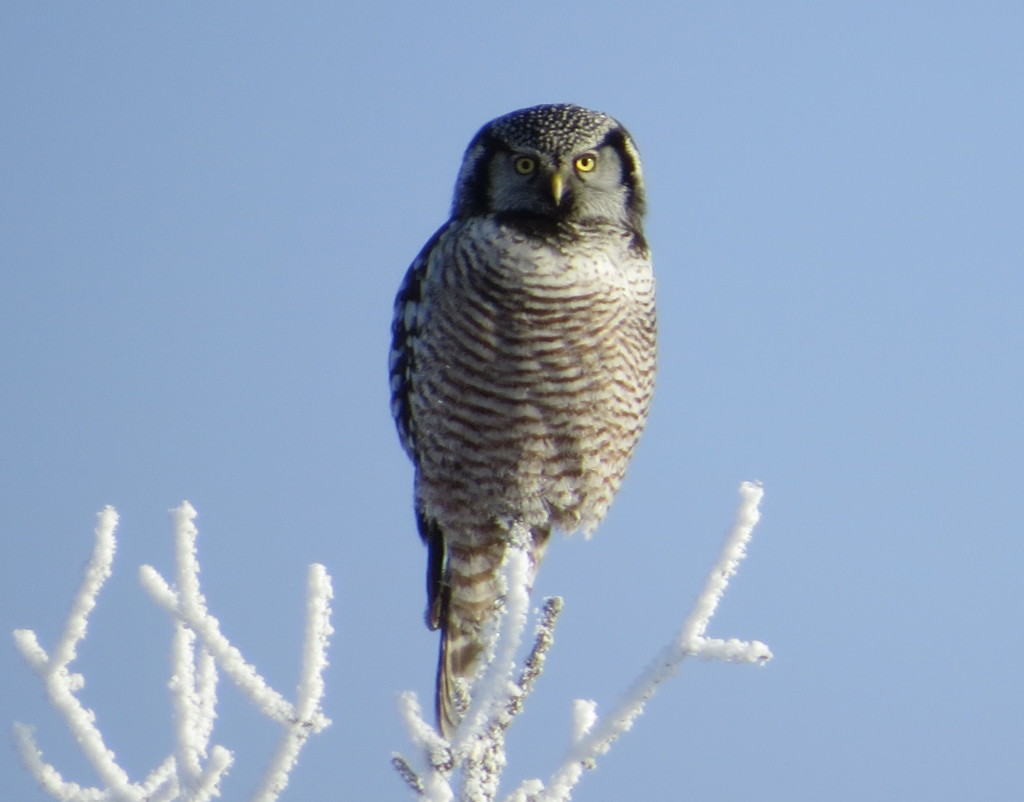
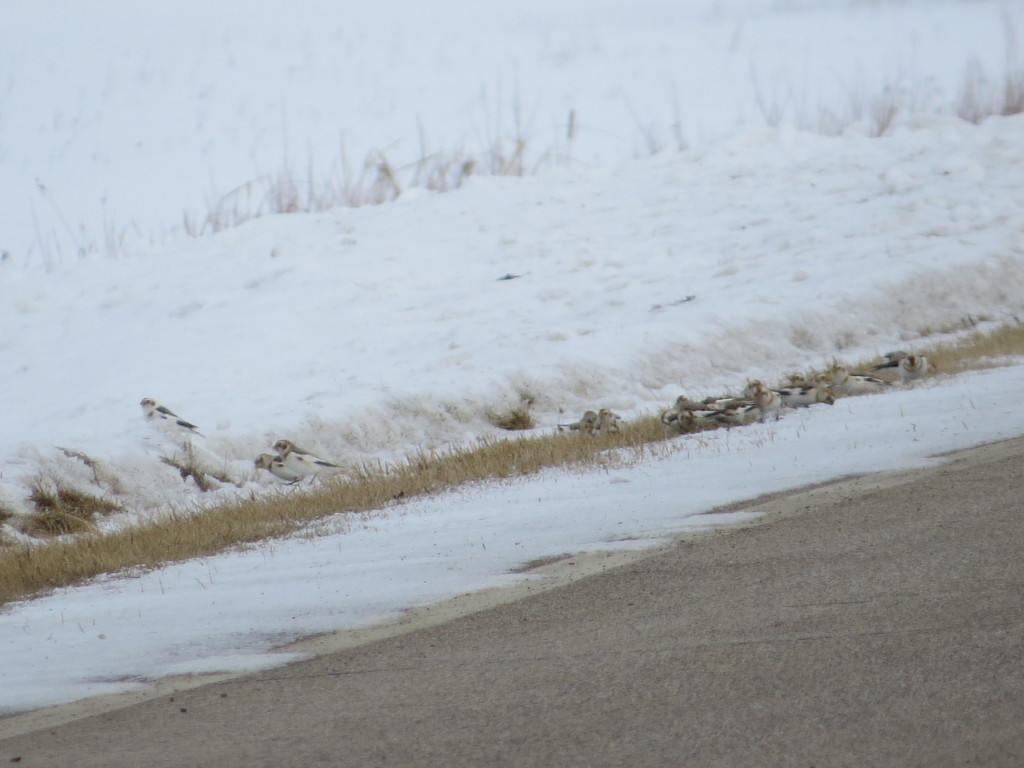 Once we got on the Roosevelt Road, I was very excited. This was a desolate forest we were entering, and I wondered at the possibilities it held for us. There wasn’t a lot of bird life except for some Pine Grosbeaks. Once we got in the vicinity of the reported Hawk Owl, the habitat looked perfect–large open areas surrounded by Tamaracks. It practically screamed Hawk Owl. I mean, it must have, because Tommy heard the message and spotted a super distant, tiny blob in the MIDDLE of a tree that turned out to be…another Hawk Owl!! We were on Cloud 9.
Once we got on the Roosevelt Road, I was very excited. This was a desolate forest we were entering, and I wondered at the possibilities it held for us. There wasn’t a lot of bird life except for some Pine Grosbeaks. Once we got in the vicinity of the reported Hawk Owl, the habitat looked perfect–large open areas surrounded by Tamaracks. It practically screamed Hawk Owl. I mean, it must have, because Tommy heard the message and spotted a super distant, tiny blob in the MIDDLE of a tree that turned out to be…another Hawk Owl!! We were on Cloud 9.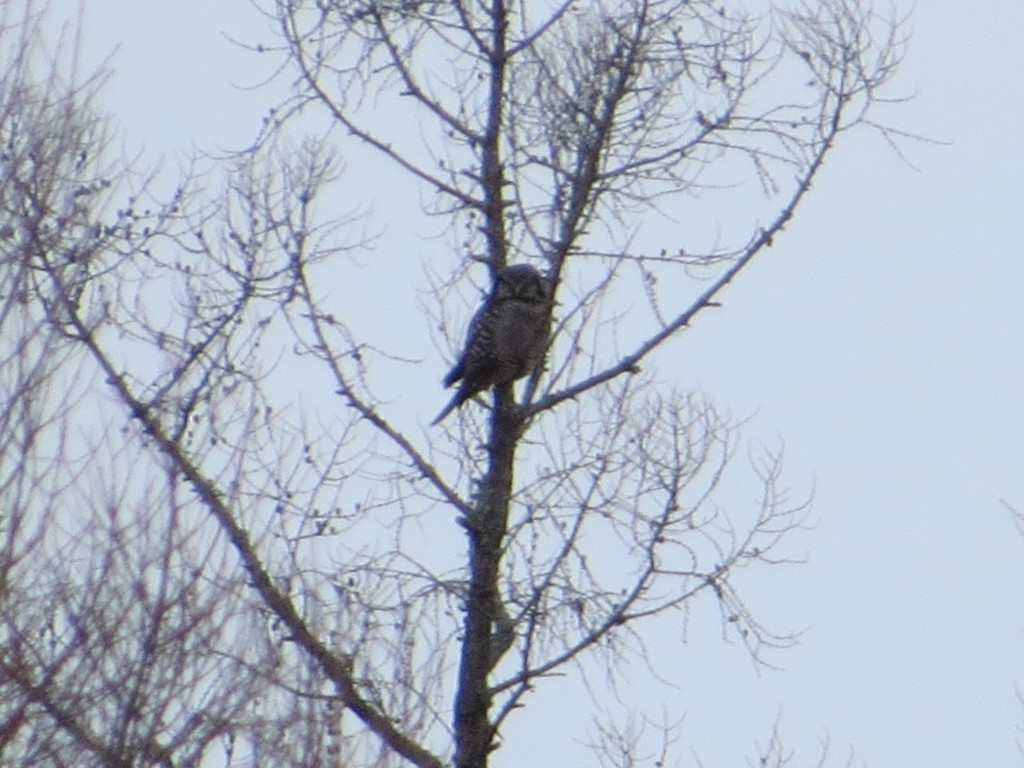
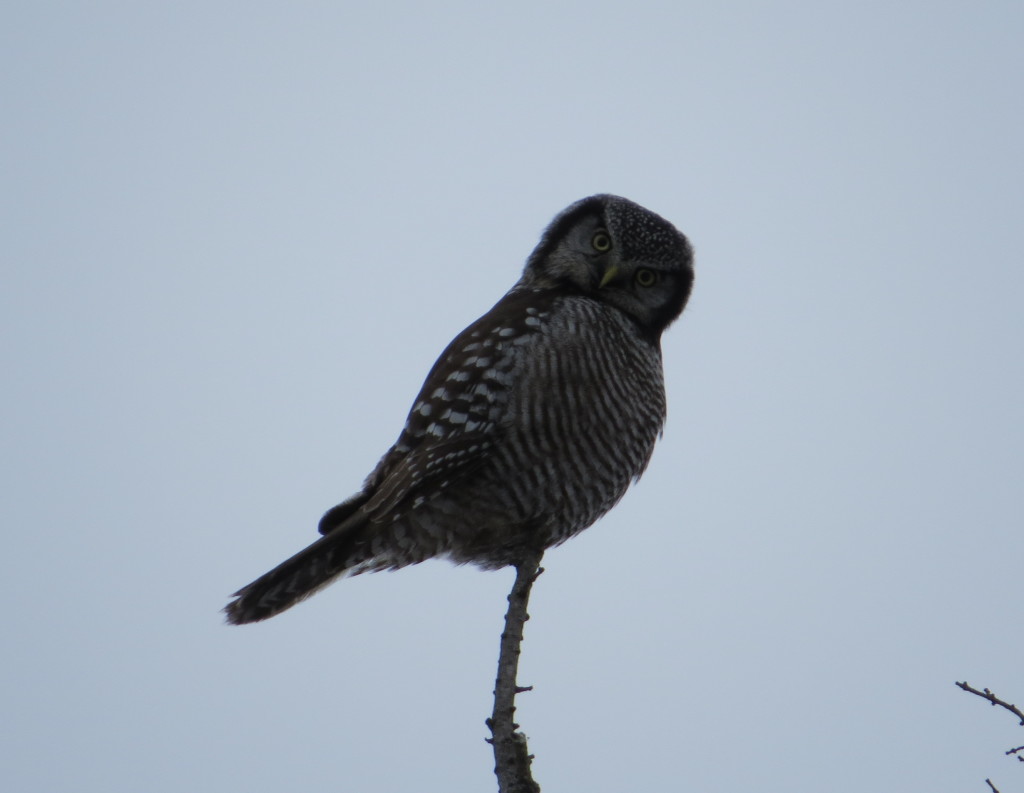 Turns out we needn’t have bushwhacked because this accommodating little fellow must have felt sorry for Gordon and flew practically right up to him. Even Gordon couldn’t resist wading into the snow for this new perch. Get ‘im Gordon!
Turns out we needn’t have bushwhacked because this accommodating little fellow must have felt sorry for Gordon and flew practically right up to him. Even Gordon couldn’t resist wading into the snow for this new perch. Get ‘im Gordon!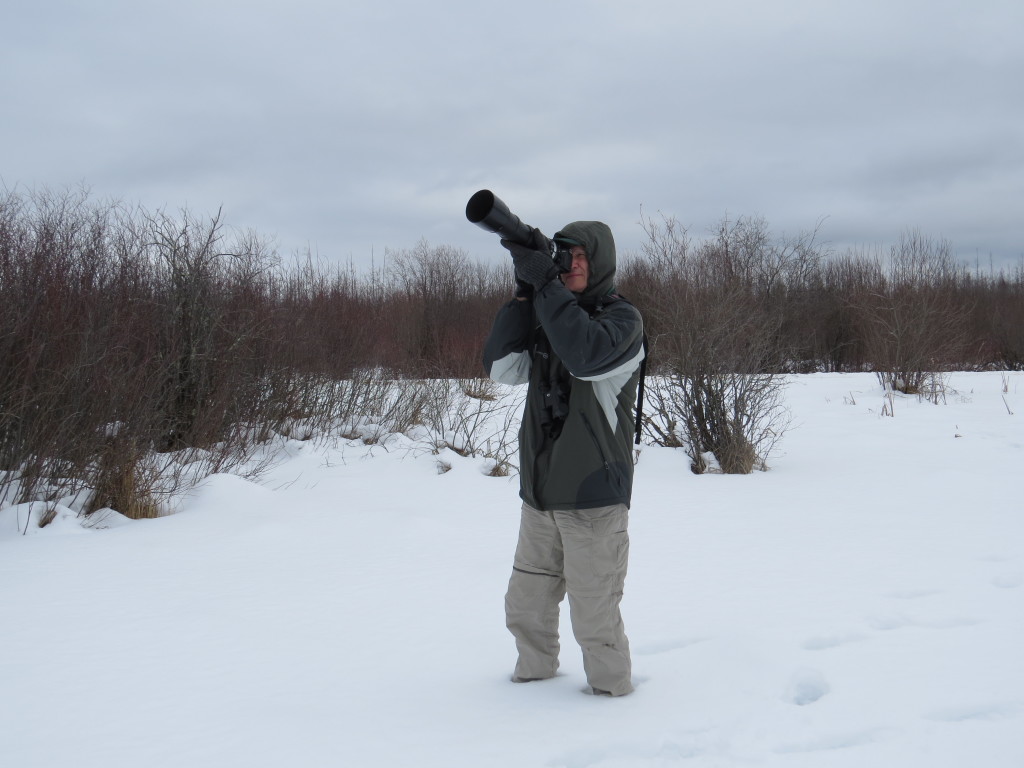 Get ‘im Tommy!
Get ‘im Tommy!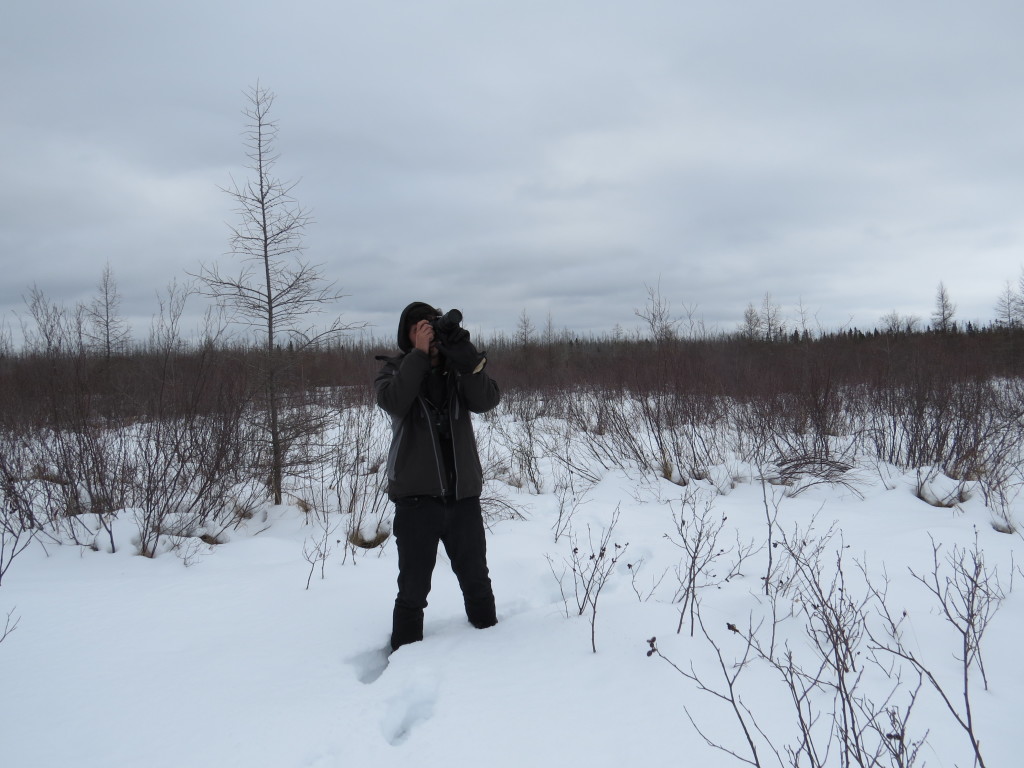 Even though the blue skies and the hoarfrost were gone, this was my favorite Hawk Owl experience of the day. We were totally alone in the middle of the remote Beltrami Island State Forest with this Owl. There was not even another bird around. Truly, it was an idyllic setting.
Even though the blue skies and the hoarfrost were gone, this was my favorite Hawk Owl experience of the day. We were totally alone in the middle of the remote Beltrami Island State Forest with this Owl. There was not even another bird around. Truly, it was an idyllic setting.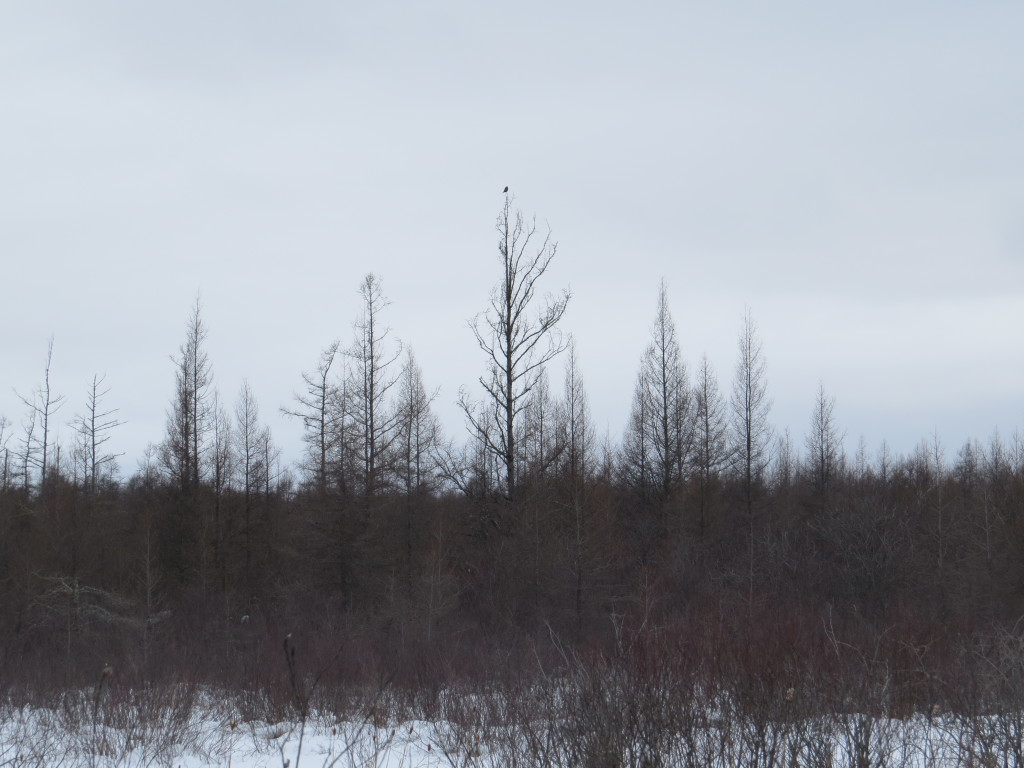
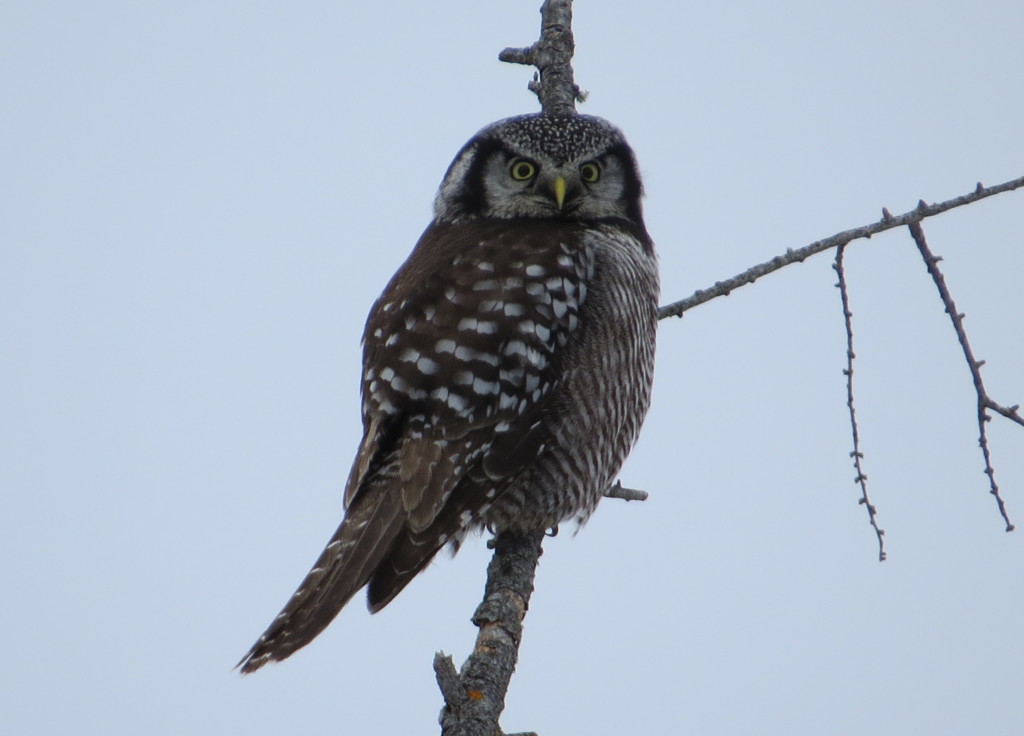
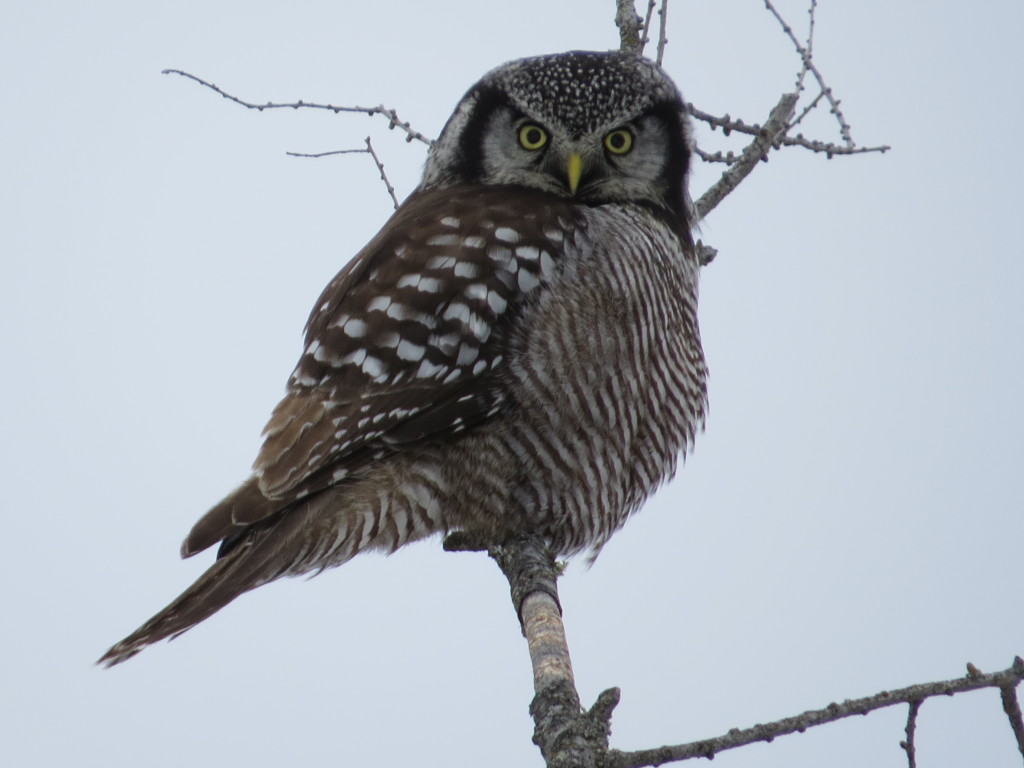
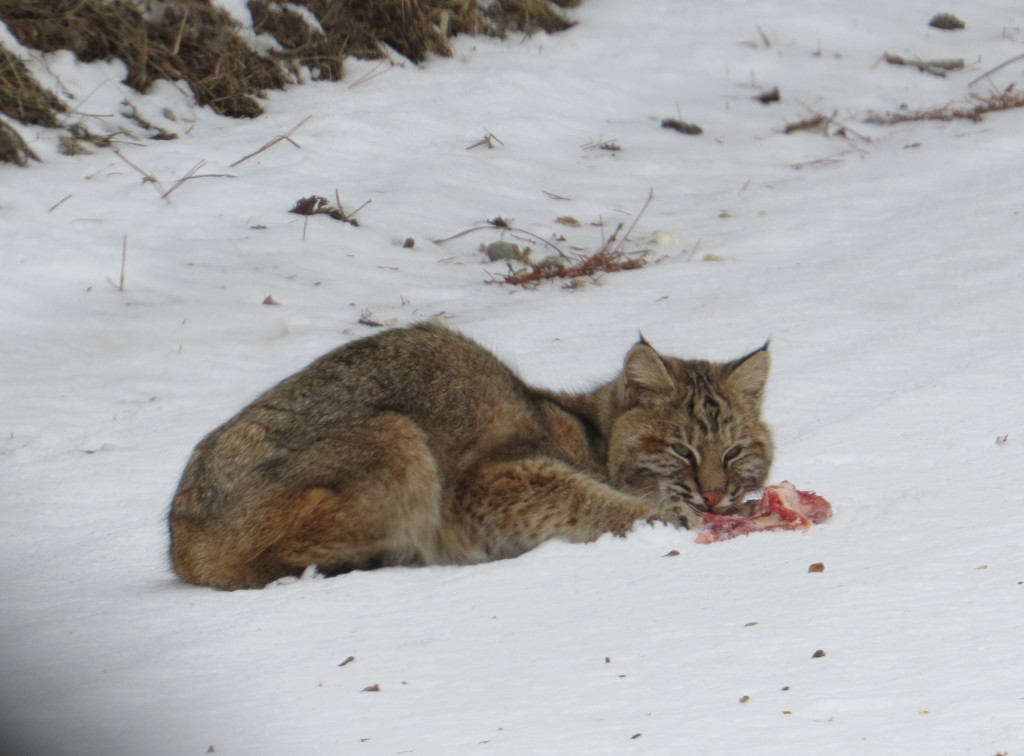 Upon closer inspection, though, it looked very sickly. It did not move even as we pulled up alongside it. While we watched, it made feeble attempts at gnawing on this slab of meat which came from where? Clearly this cat could not eat what was in front of it, let alone kill something. Sad.
Upon closer inspection, though, it looked very sickly. It did not move even as we pulled up alongside it. While we watched, it made feeble attempts at gnawing on this slab of meat which came from where? Clearly this cat could not eat what was in front of it, let alone kill something. Sad.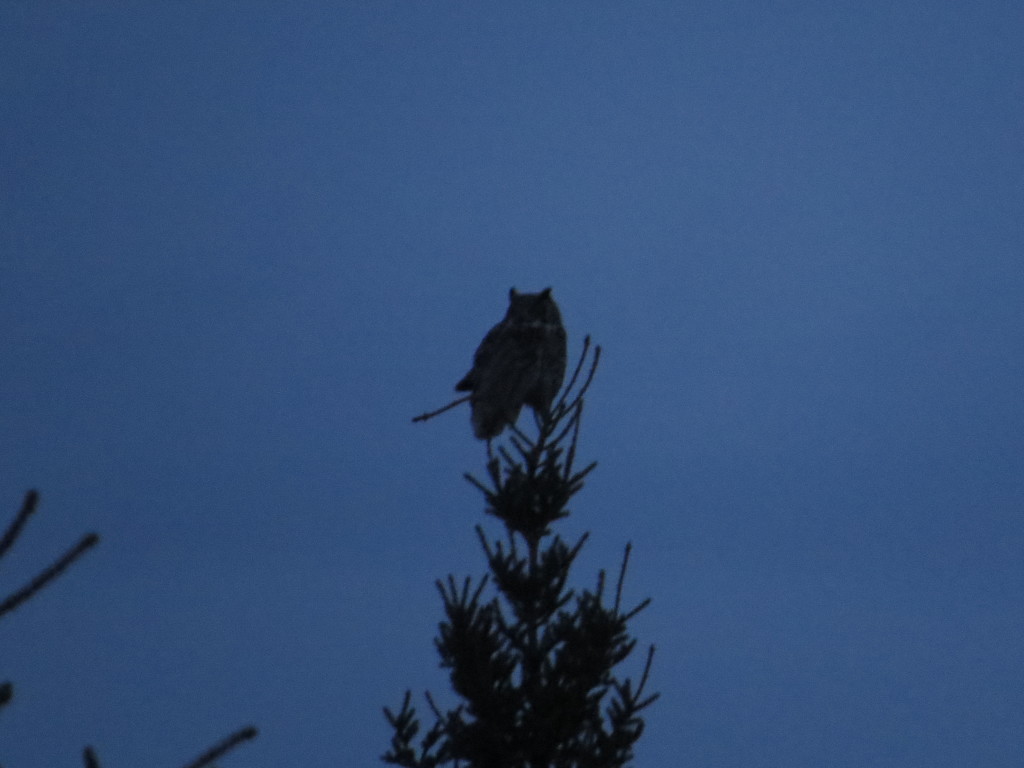 It was an incredible trip to the Northwest and one I won’t forget anytime soon. The day was capped off with a hot meal at the Wooden Table in Angora and the relaxation of knowing that we could “sleep in” the next day even though we had another exciting birding itinerary for the day of Tommy and Gordon’s departure.
It was an incredible trip to the Northwest and one I won’t forget anytime soon. The day was capped off with a hot meal at the Wooden Table in Angora and the relaxation of knowing that we could “sleep in” the next day even though we had another exciting birding itinerary for the day of Tommy and Gordon’s departure.
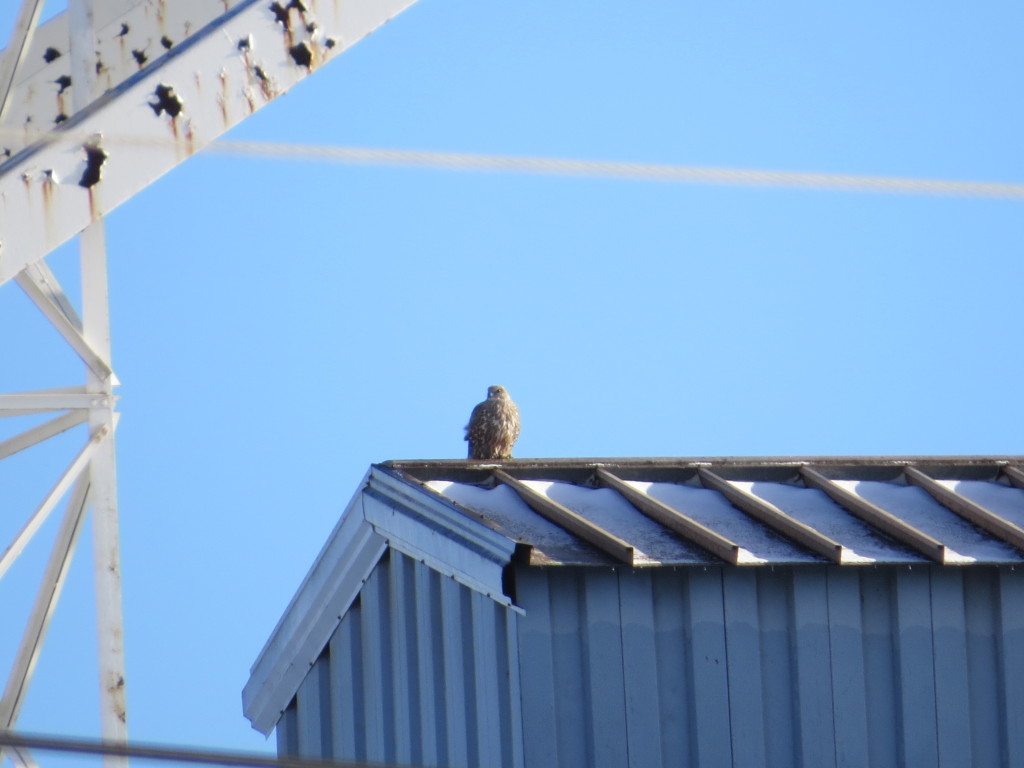
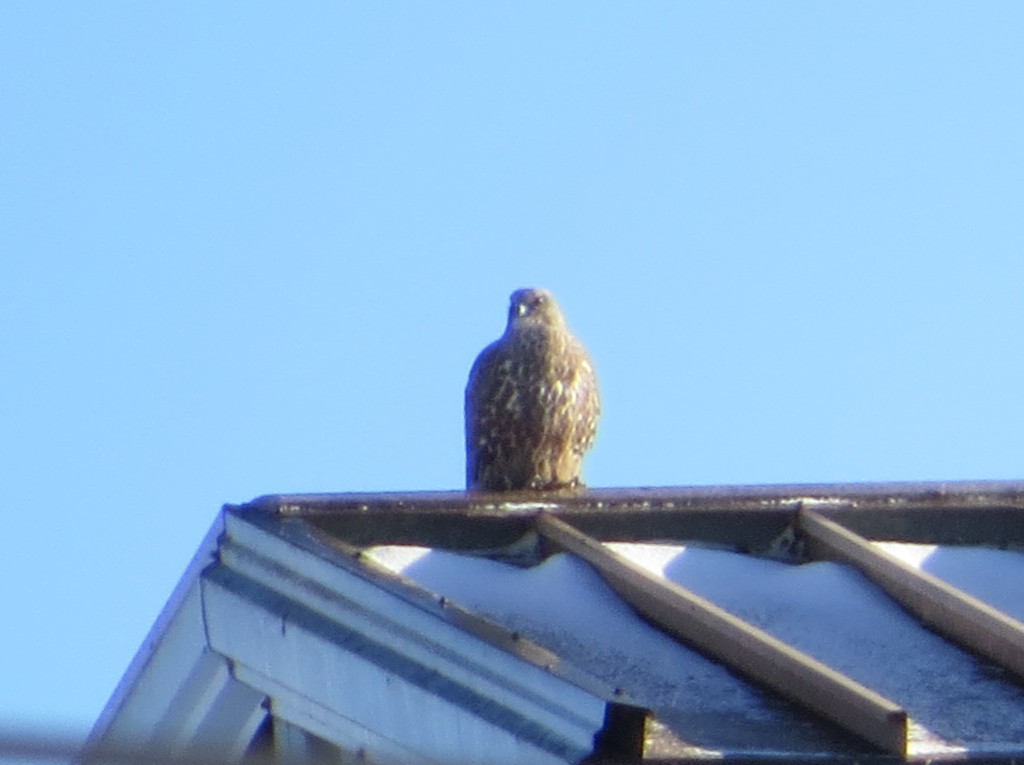 After this, we made a stop at Canal Park in Duluth to see what was going on Gull-wise. The guys picked up a handsome Thayer’s Gull lifer, but that was about it. I couldn’t even muster up a Black Duck for the guys. I did, however, do my Minnesota duty and made Tommy and Gordon skip rocks in Lake Superior.
After this, we made a stop at Canal Park in Duluth to see what was going on Gull-wise. The guys picked up a handsome Thayer’s Gull lifer, but that was about it. I couldn’t even muster up a Black Duck for the guys. I did, however, do my Minnesota duty and made Tommy and Gordon skip rocks in Lake Superior.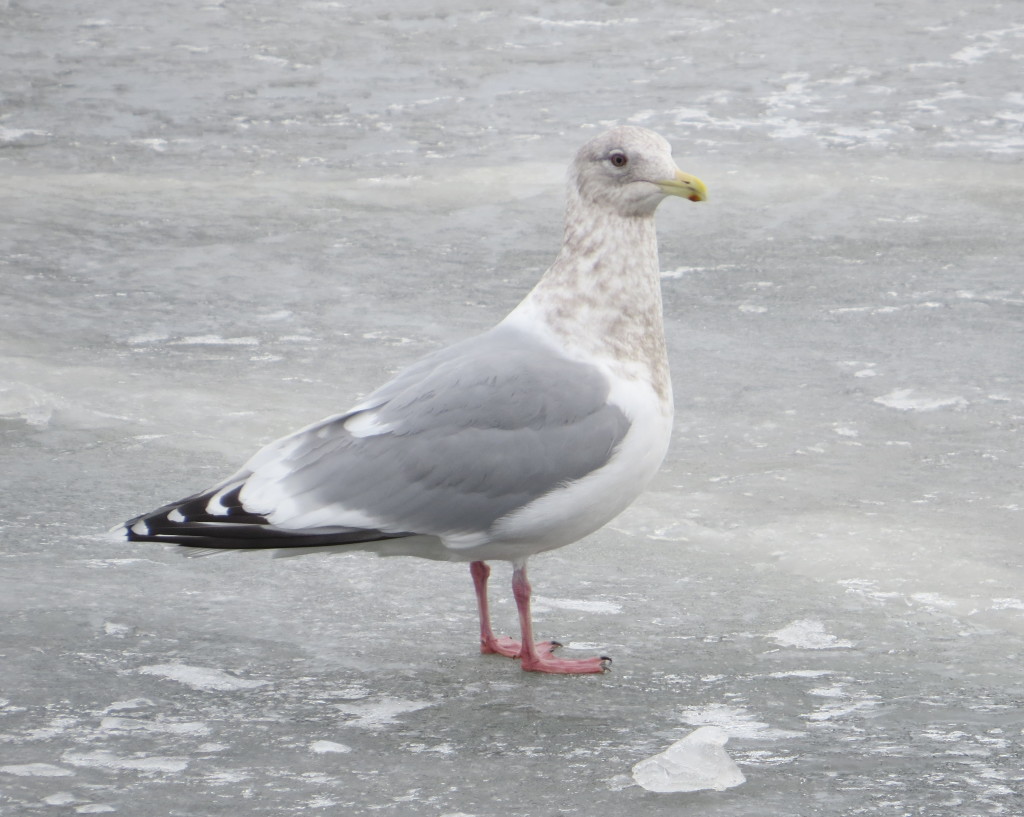
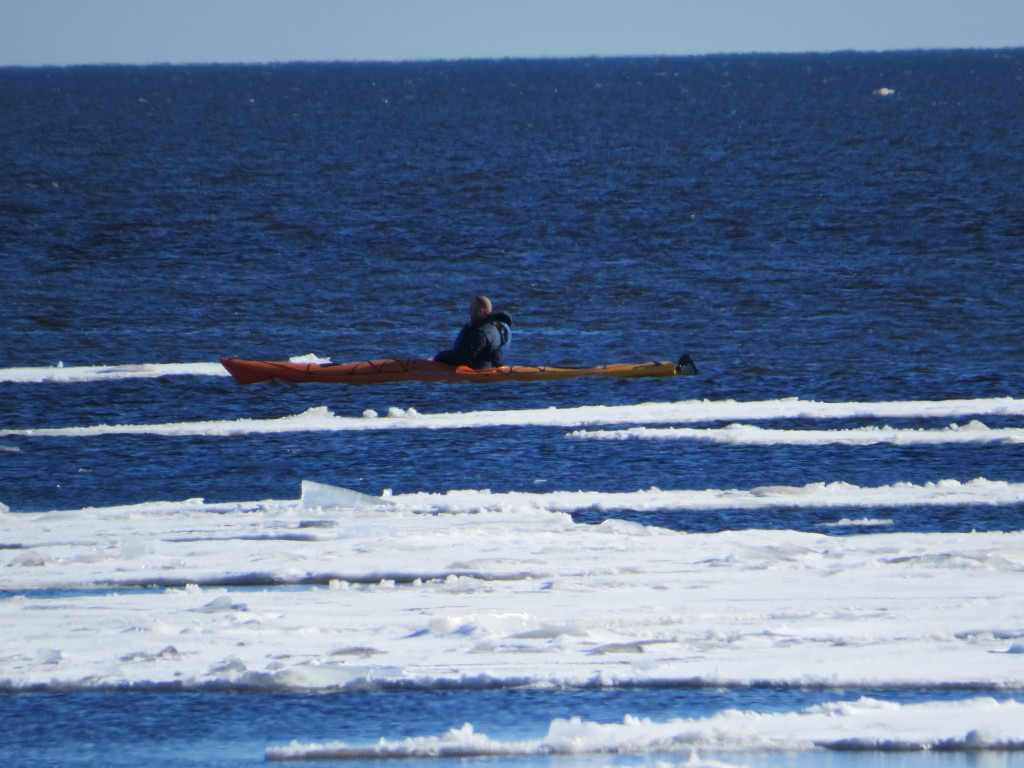
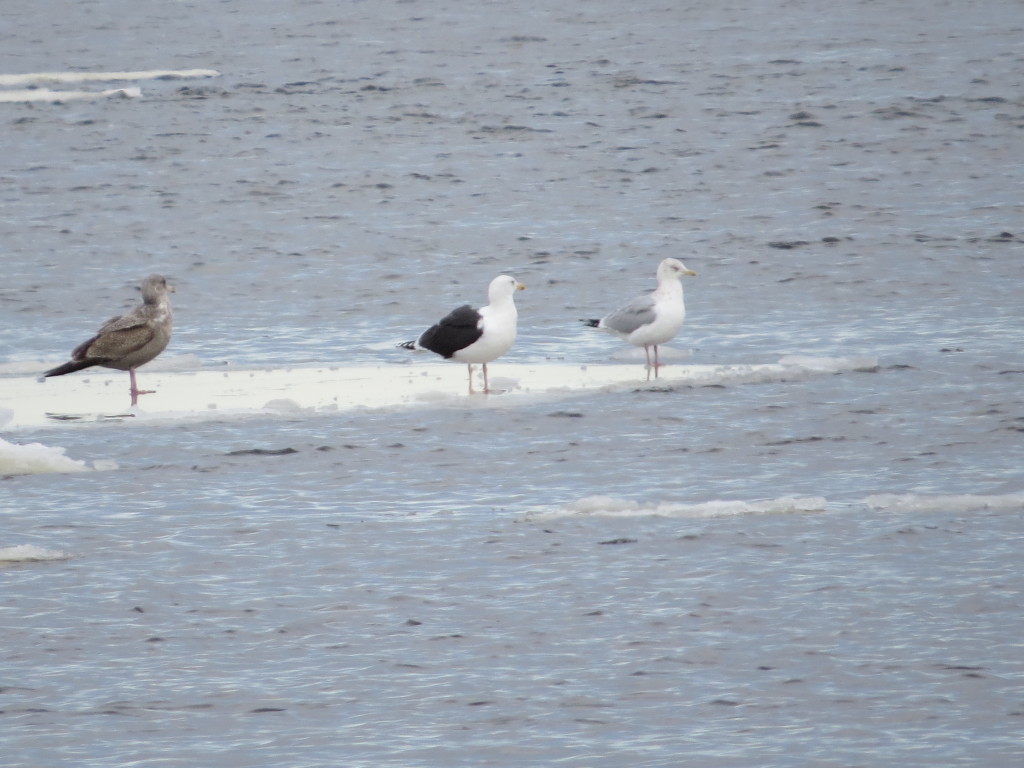 Tommy and Gordon quickly tallied this lifer as well as the Iceland Gull lifer. They also got to witness the spontaneous birder parties that happen at Canal Park as the who’s who of Duluth birders show up to enjoy the Gulls, look for the really wacko stuff (Ivory Gull, Black-legged Kittiwake), toss bread out to bring the Gulls closer, take orders for what Gulls everybody is still looking for, and generally be friendly tutors to those of us still illiterate in Gull identification. Peder Svingen, Clinton Nienhaus, and John Richardson were all on hand this particular afternoon to confirm species ID and point out the cool Gulls from the Herring herd. Even when some of us were distracted with trying to get a THGU/Lighthouse combo pic…
Tommy and Gordon quickly tallied this lifer as well as the Iceland Gull lifer. They also got to witness the spontaneous birder parties that happen at Canal Park as the who’s who of Duluth birders show up to enjoy the Gulls, look for the really wacko stuff (Ivory Gull, Black-legged Kittiwake), toss bread out to bring the Gulls closer, take orders for what Gulls everybody is still looking for, and generally be friendly tutors to those of us still illiterate in Gull identification. Peder Svingen, Clinton Nienhaus, and John Richardson were all on hand this particular afternoon to confirm species ID and point out the cool Gulls from the Herring herd. Even when some of us were distracted with trying to get a THGU/Lighthouse combo pic…
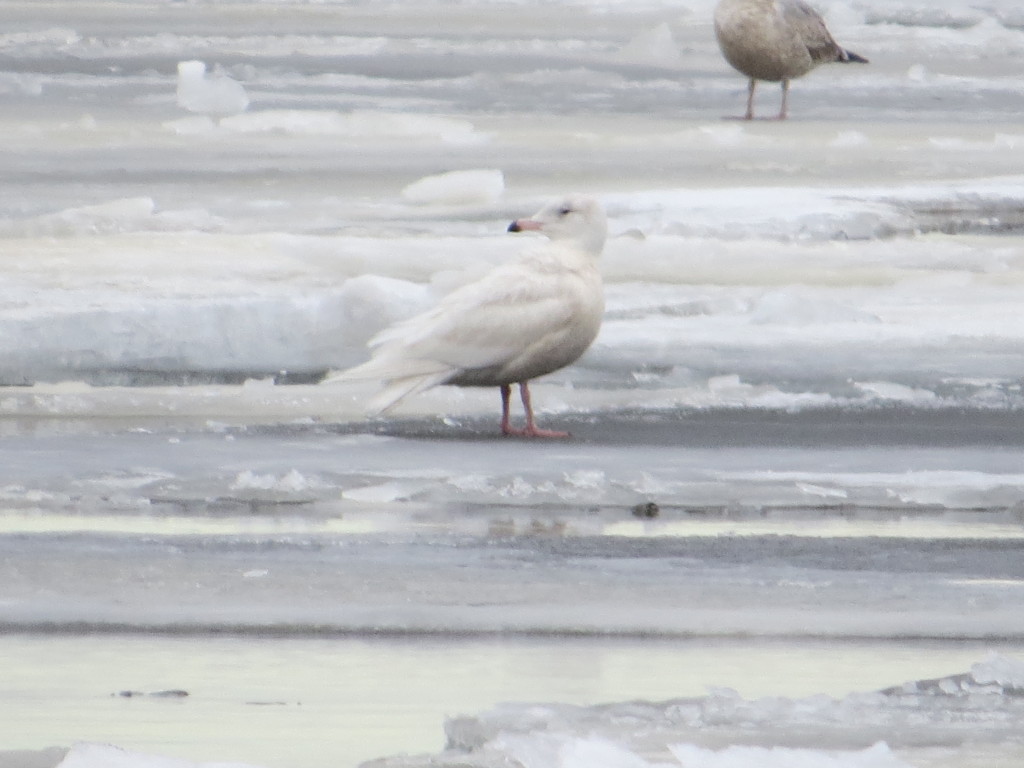

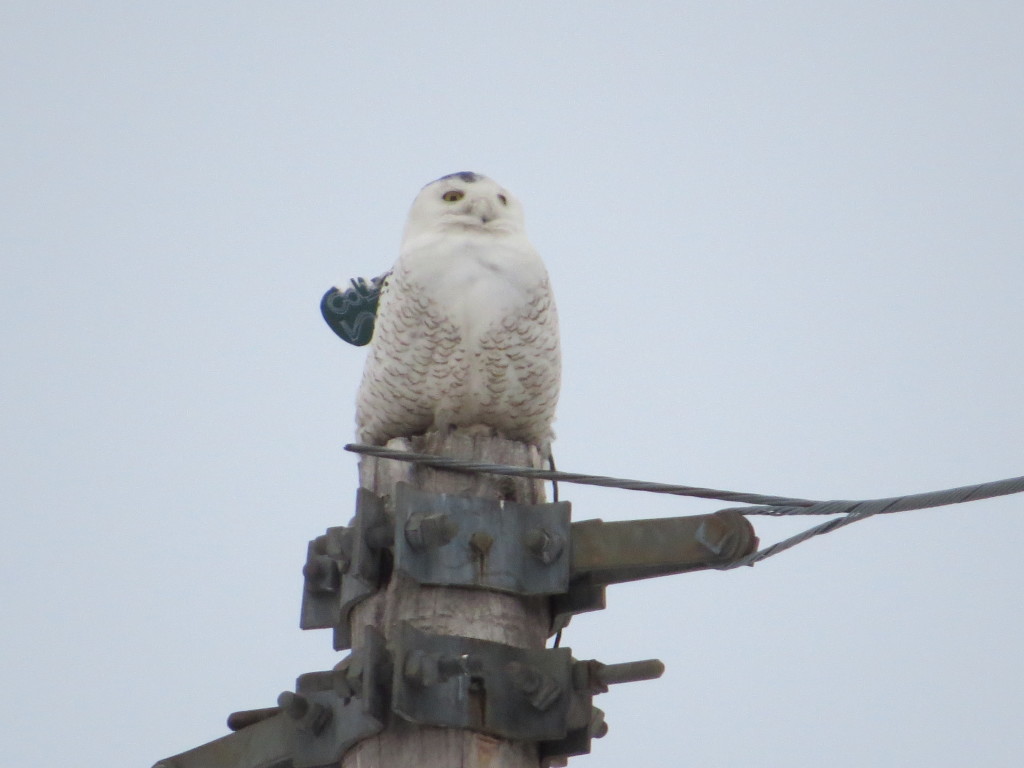 The wing tags help Dave monitor and identify the Owls from afar without having to stress them with recapture. Here is the first Snowy Owl we saw just before #28 above.
The wing tags help Dave monitor and identify the Owls from afar without having to stress them with recapture. Here is the first Snowy Owl we saw just before #28 above.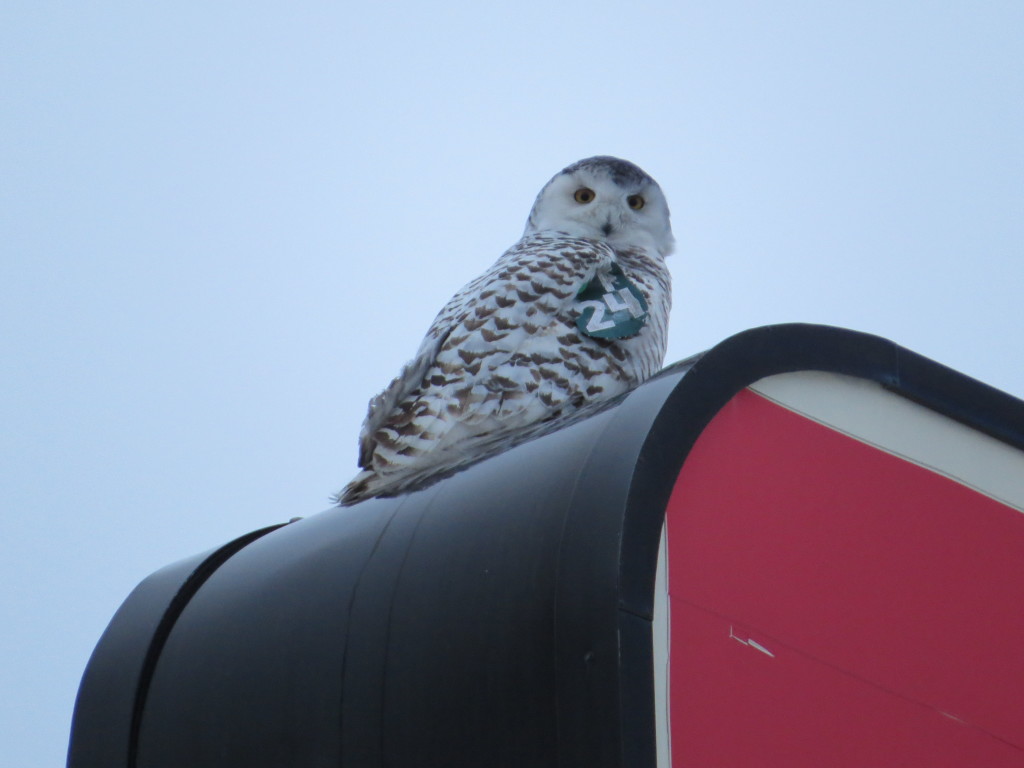 I wish Tommy and Gordon could have seen unmarked Snowy Owls, but a marked Snowy seen is better than an unmarked Snowy not seen! Ironically, these were the first marked Snowy Owls I had ever seen in real life. Tommy and Gordon did get to gain an appreciation for the types of urban habitats these birds often winter in.
I wish Tommy and Gordon could have seen unmarked Snowy Owls, but a marked Snowy seen is better than an unmarked Snowy not seen! Ironically, these were the first marked Snowy Owls I had ever seen in real life. Tommy and Gordon did get to gain an appreciation for the types of urban habitats these birds often winter in. It was another rocking day of birding in the north that met or even exceeded expectations. Notable misses included American Black Duck and Bohemian Waxwing. On a sad, personal note, my Kittiwake lifer did not make an appearance. Here is a run-down of the second day’s lifers:
It was another rocking day of birding in the north that met or even exceeded expectations. Notable misses included American Black Duck and Bohemian Waxwing. On a sad, personal note, my Kittiwake lifer did not make an appearance. Here is a run-down of the second day’s lifers: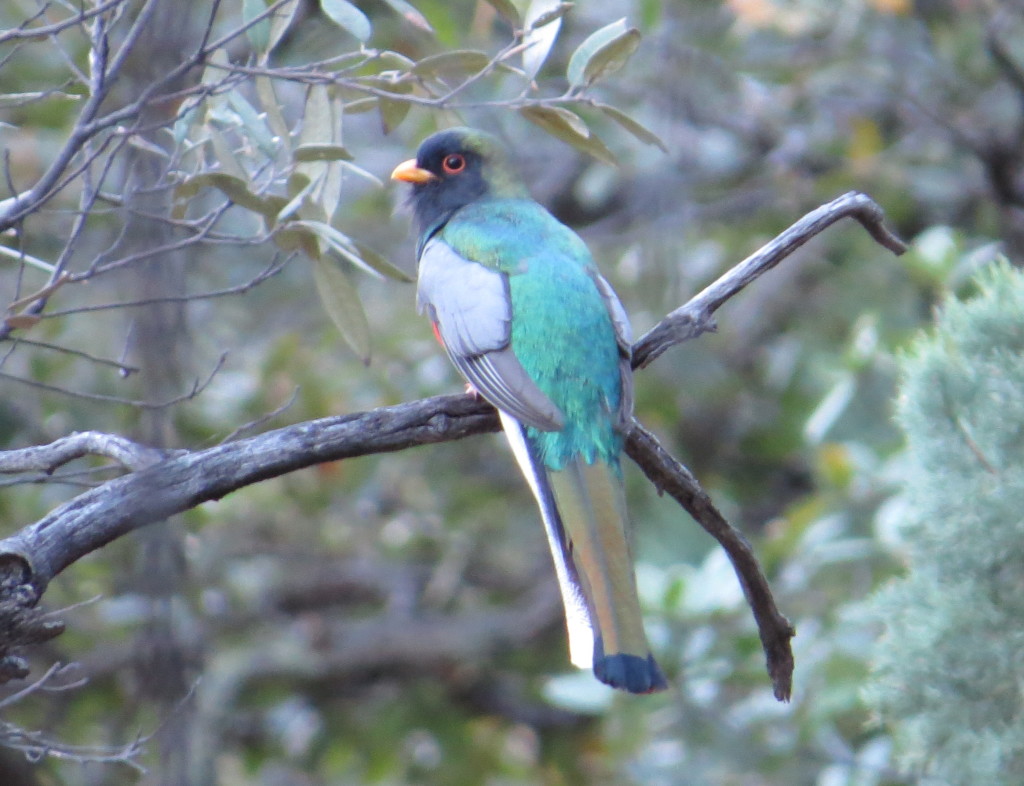 and over…
and over…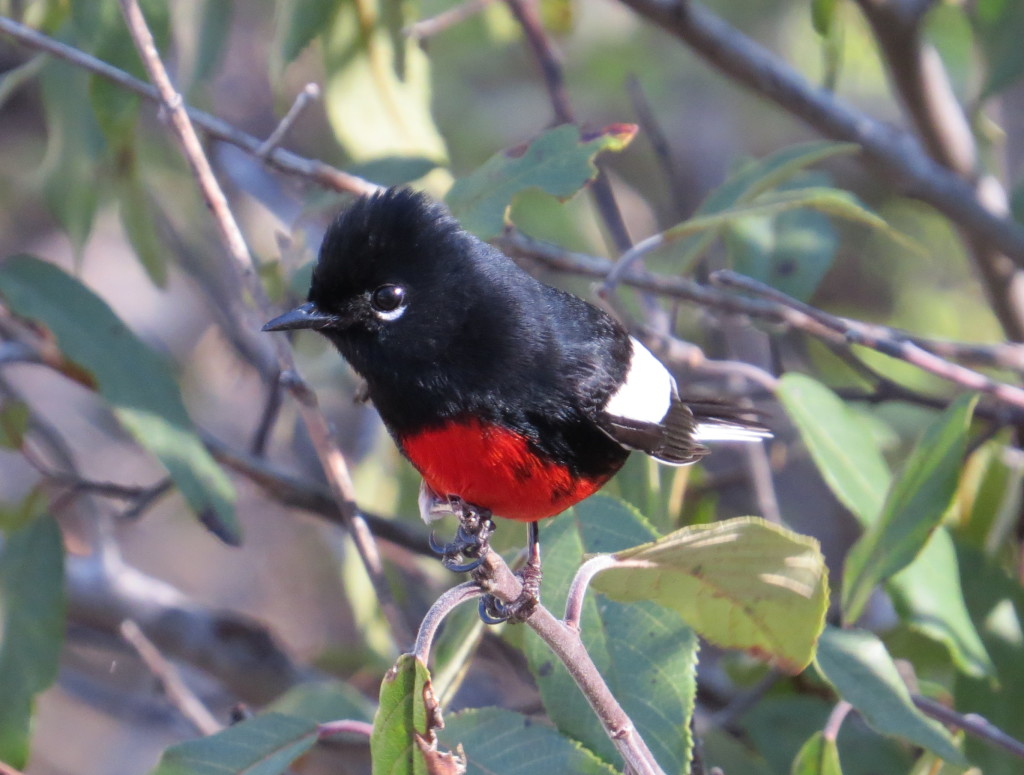 and over.
and over.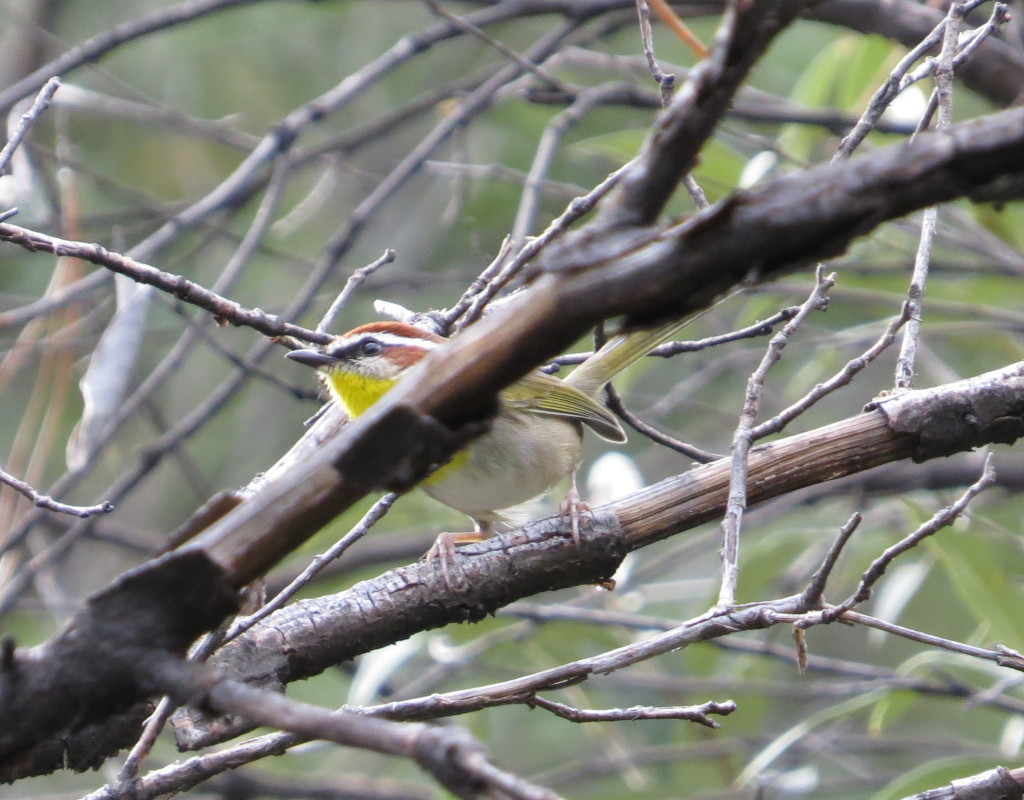

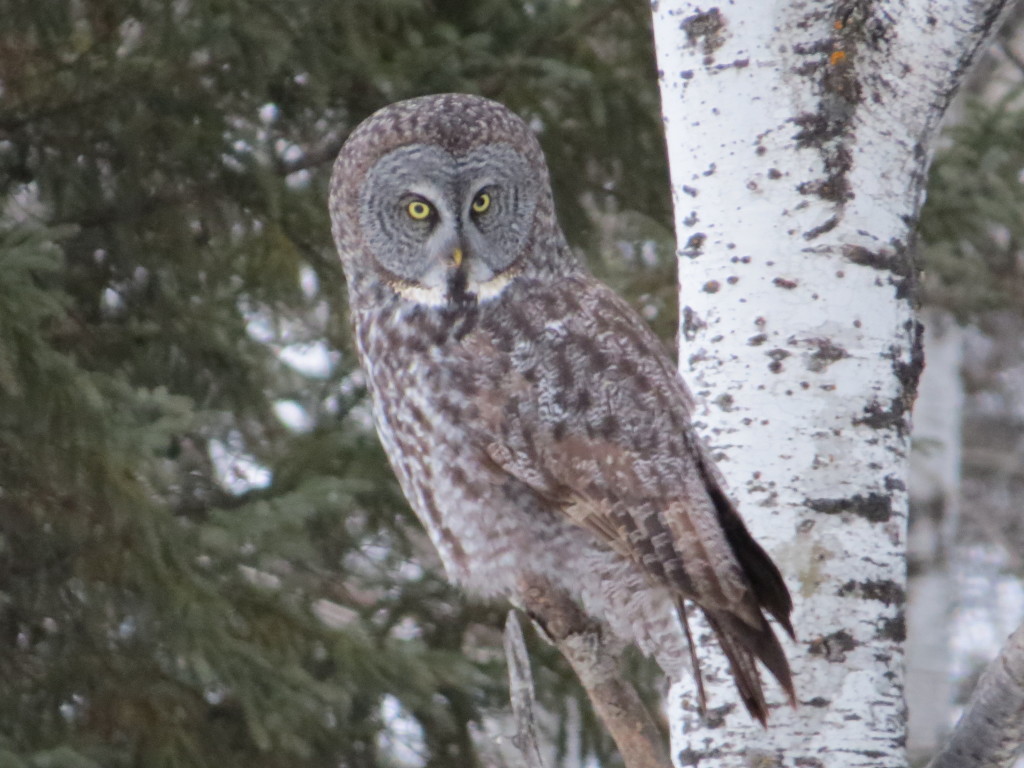
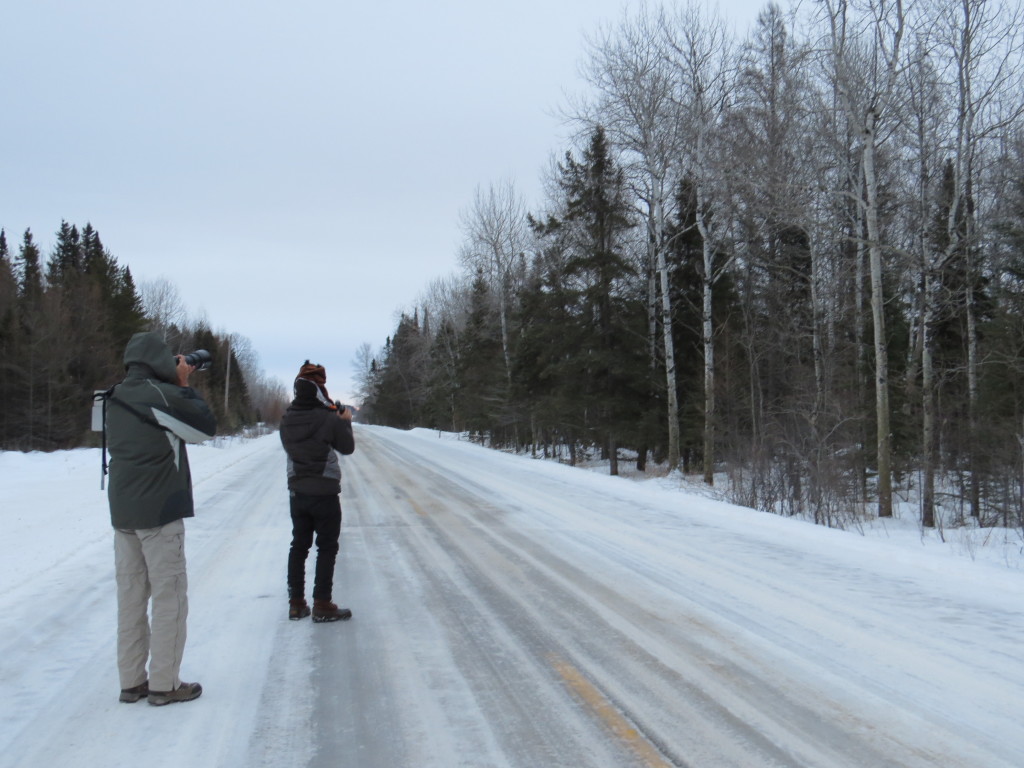 Not only was it thrill to watch these guys get this incredible lifer, but I also enjoyed seeing a Great Gray in a new (to me) part of the Bog. It doesn’t matter where these guys are, though. They are just plain cool.
Not only was it thrill to watch these guys get this incredible lifer, but I also enjoyed seeing a Great Gray in a new (to me) part of the Bog. It doesn’t matter where these guys are, though. They are just plain cool.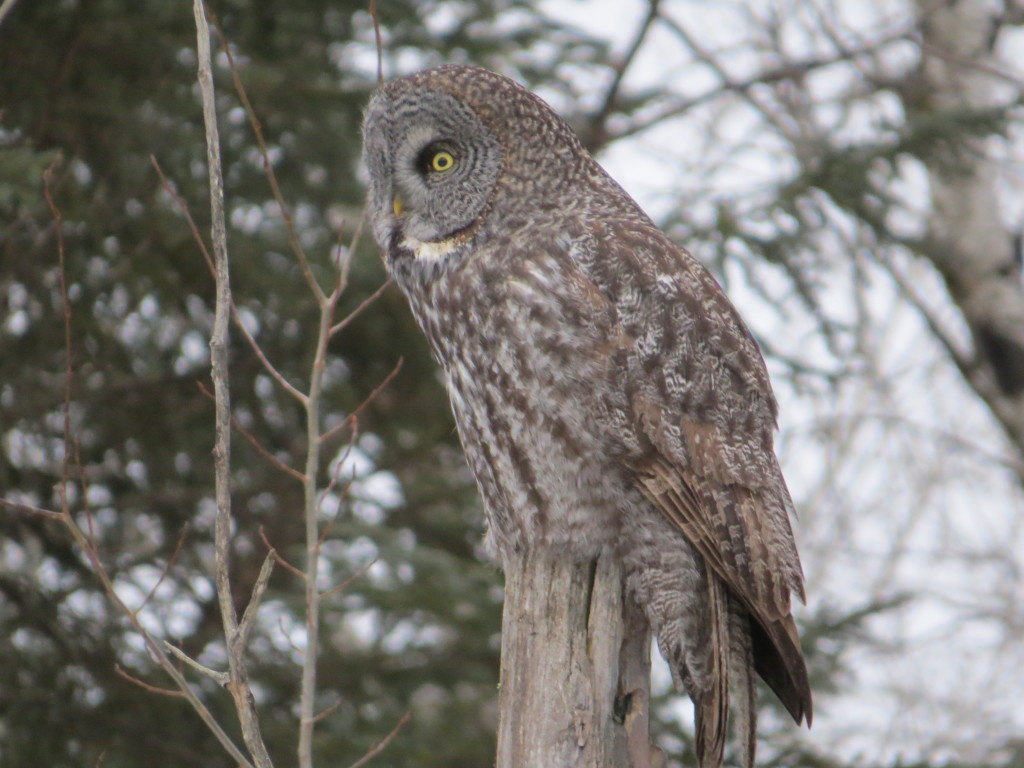
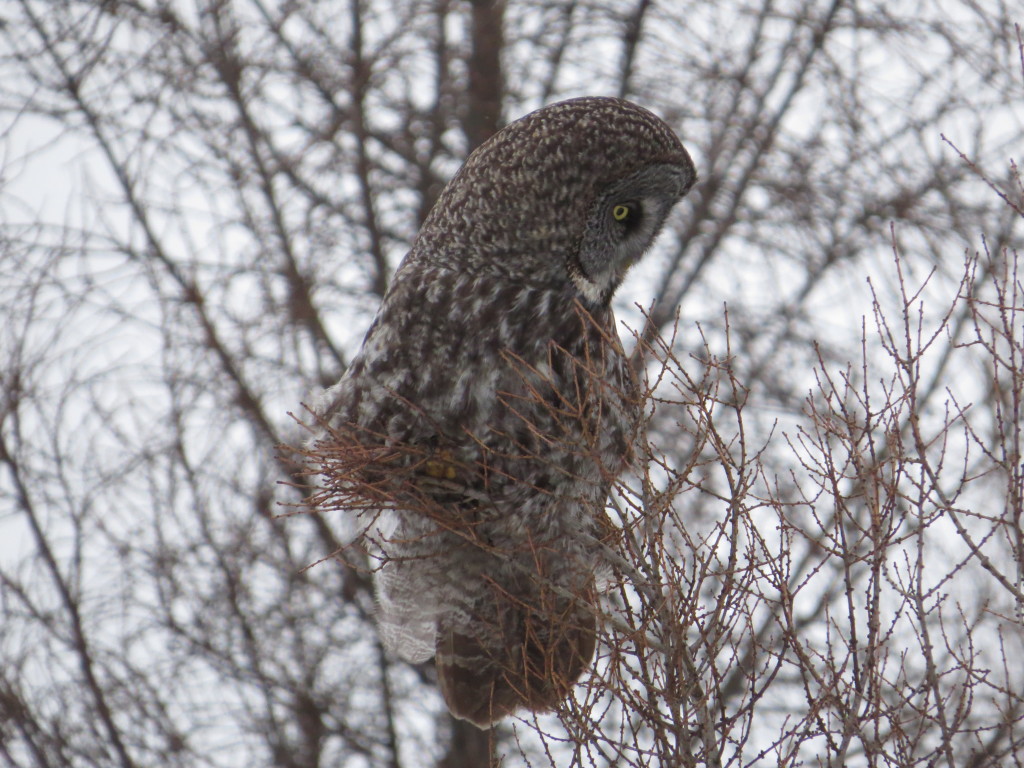
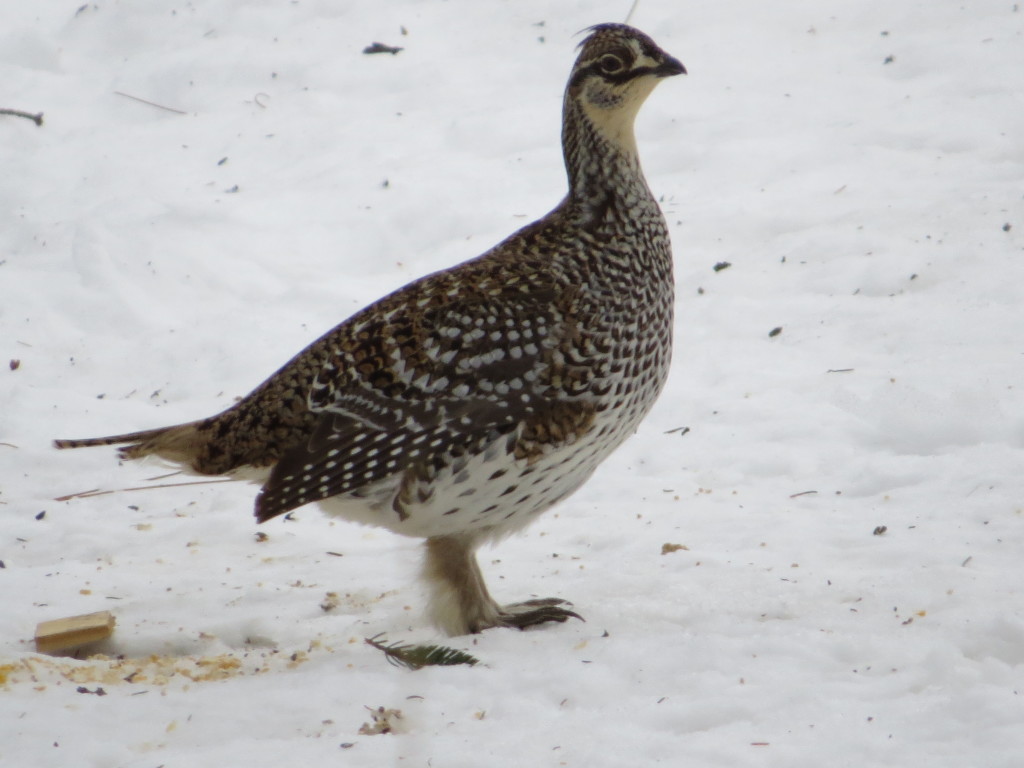 The guys even got to see the males of this new lifer doing their courtship dances! That was topped off by the Grouse coming roadside to feast at a local resident’s feeders before retiring for the day. It really couldn’t have been a better experience for viewing this bird.
The guys even got to see the males of this new lifer doing their courtship dances! That was topped off by the Grouse coming roadside to feast at a local resident’s feeders before retiring for the day. It really couldn’t have been a better experience for viewing this bird.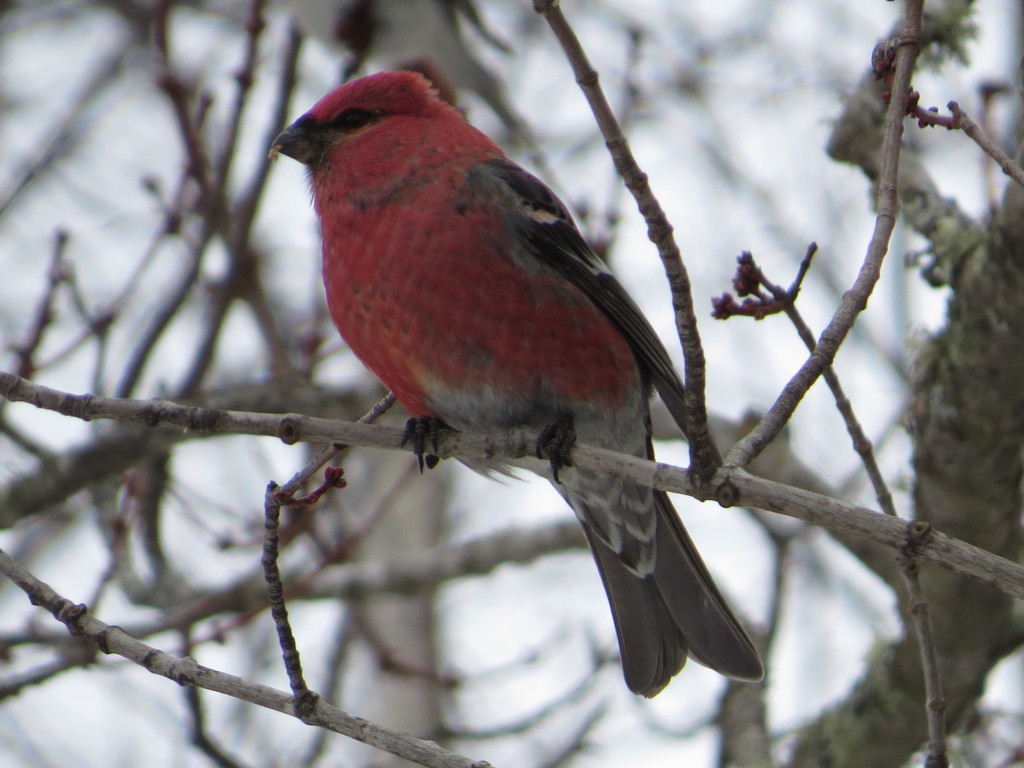 This is a bird I previously had terrible photos of, so this felt good to see a male up close.
This is a bird I previously had terrible photos of, so this felt good to see a male up close.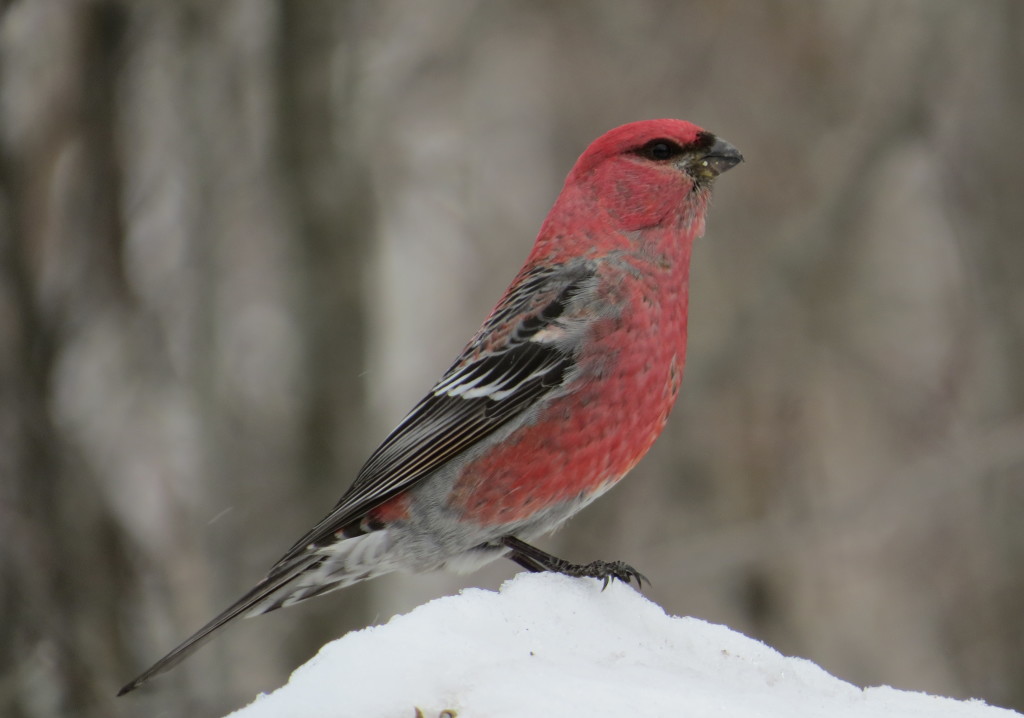 And of course, there were Common Redpolls which is a lifer for the guys. There are always Redpolls. This one had some potential for…oh, who cares anymore?
And of course, there were Common Redpolls which is a lifer for the guys. There are always Redpolls. This one had some potential for…oh, who cares anymore?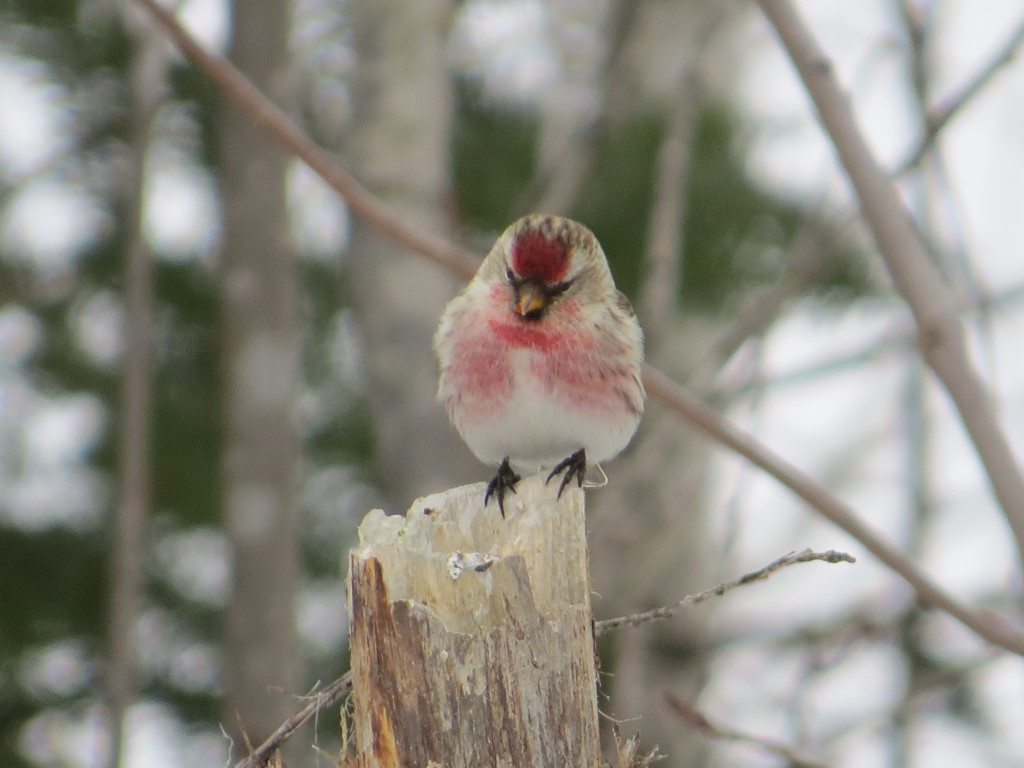
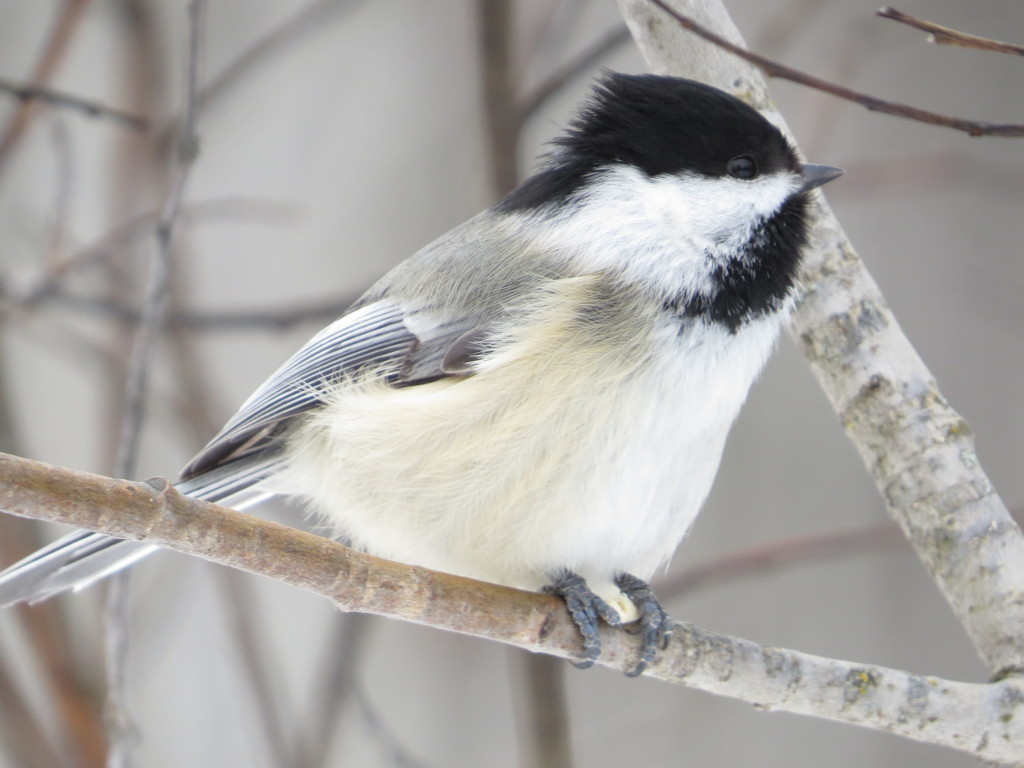
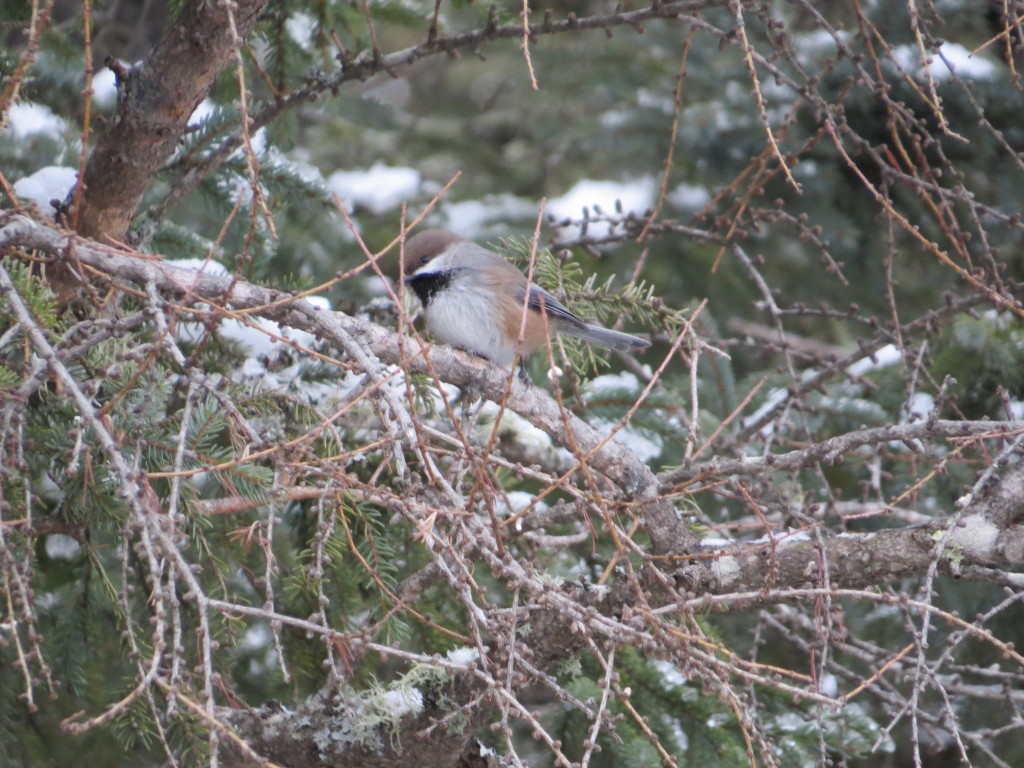 The Boreal Chickadees had started to become a regular at the Admiral Road feeders not more than a week before the guys arrived. Tommy and Gordon were truly spoiled with this lifer. It appeared within a minute of us stopping at the feeders. How many birders, myself included, have waited for an hour or more only to be skunked? Additionally, it came out often, like every minute instead of every half hour. Like the Great Gray, this bird is not a given. Also like the Great Gray, much face time is required with this bird. I would estimate that we spent equal time with it as we did with the Owl. For me this bird ranks just below a Great Gray Owl but definitely above a Snowy Owl. As such, I am on a never-ending quest to get a photo of a BOCH that I am happy with.
The Boreal Chickadees had started to become a regular at the Admiral Road feeders not more than a week before the guys arrived. Tommy and Gordon were truly spoiled with this lifer. It appeared within a minute of us stopping at the feeders. How many birders, myself included, have waited for an hour or more only to be skunked? Additionally, it came out often, like every minute instead of every half hour. Like the Great Gray, this bird is not a given. Also like the Great Gray, much face time is required with this bird. I would estimate that we spent equal time with it as we did with the Owl. For me this bird ranks just below a Great Gray Owl but definitely above a Snowy Owl. As such, I am on a never-ending quest to get a photo of a BOCH that I am happy with.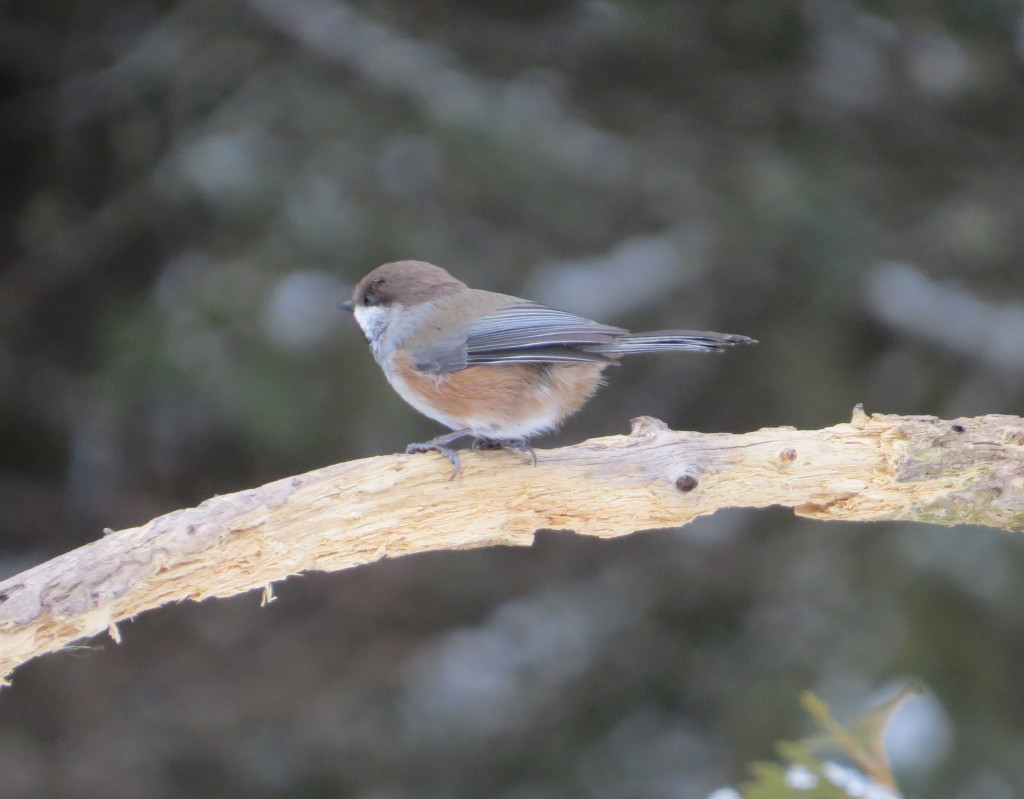
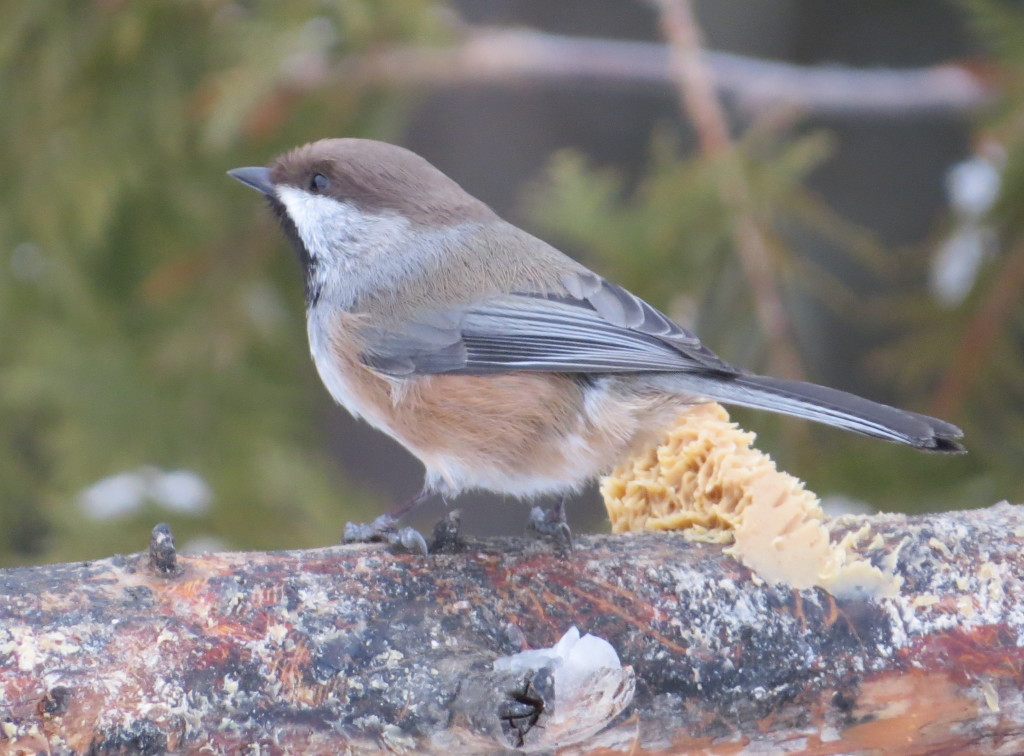
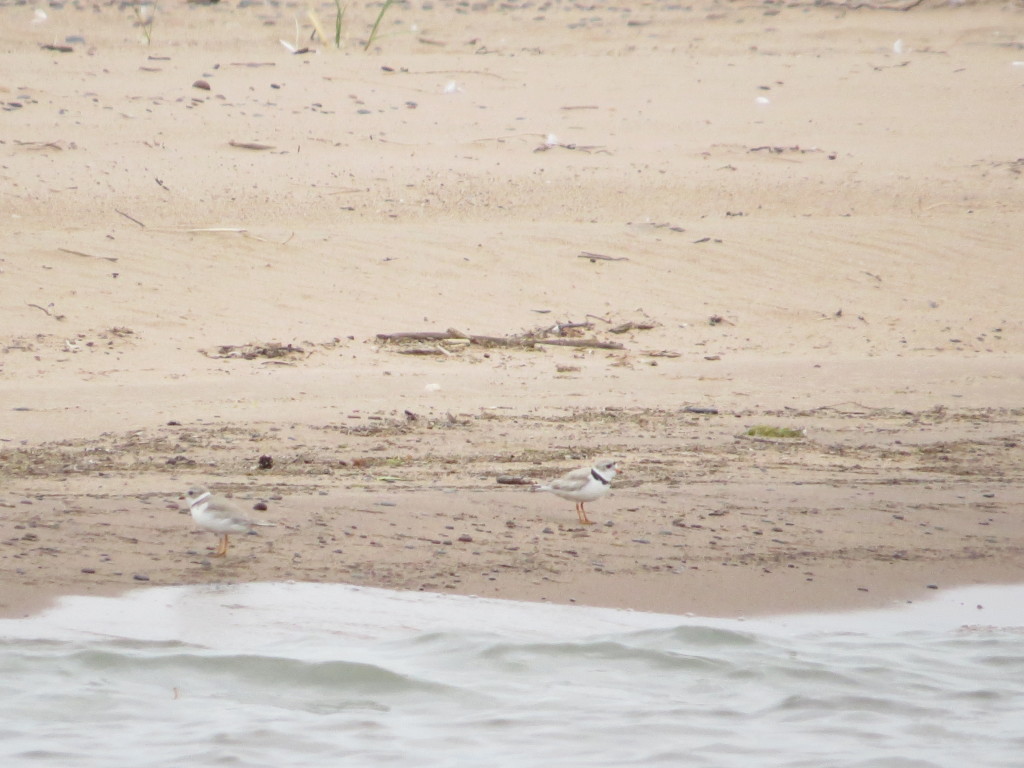

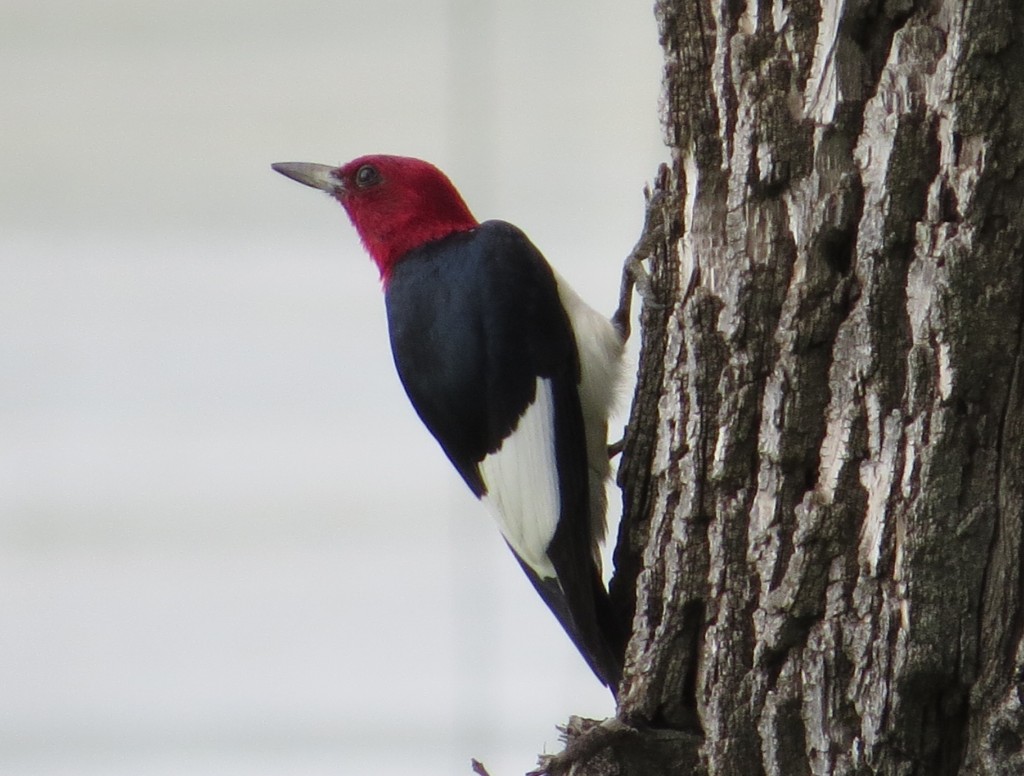
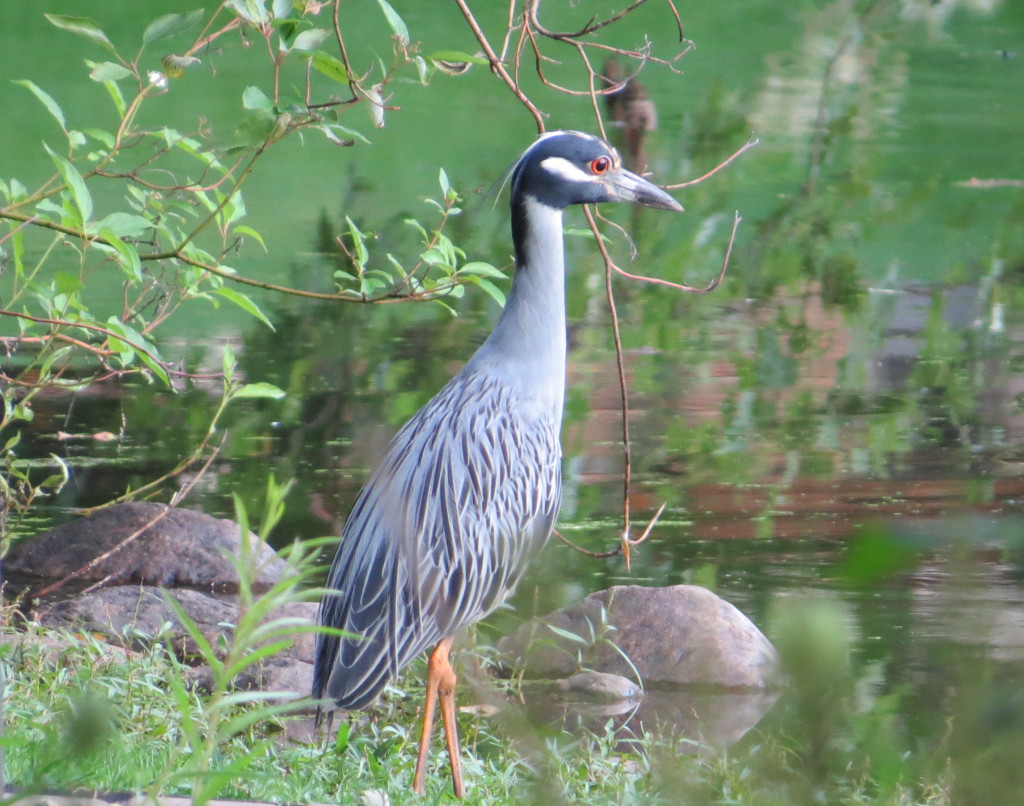
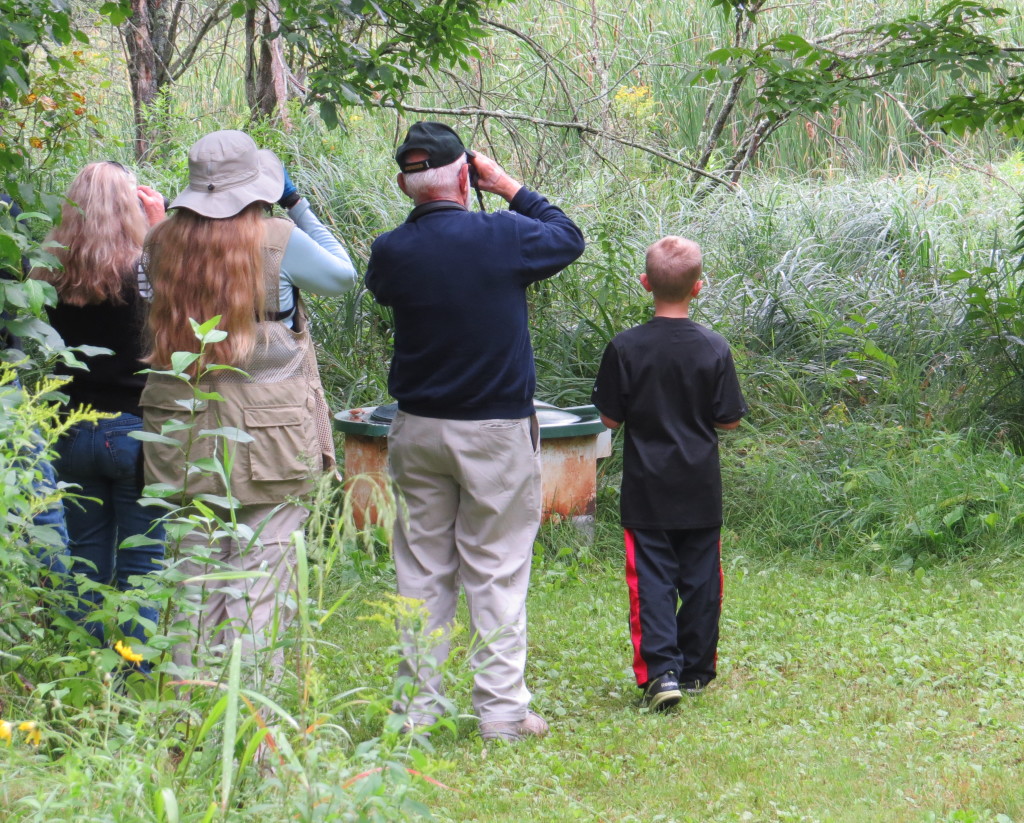
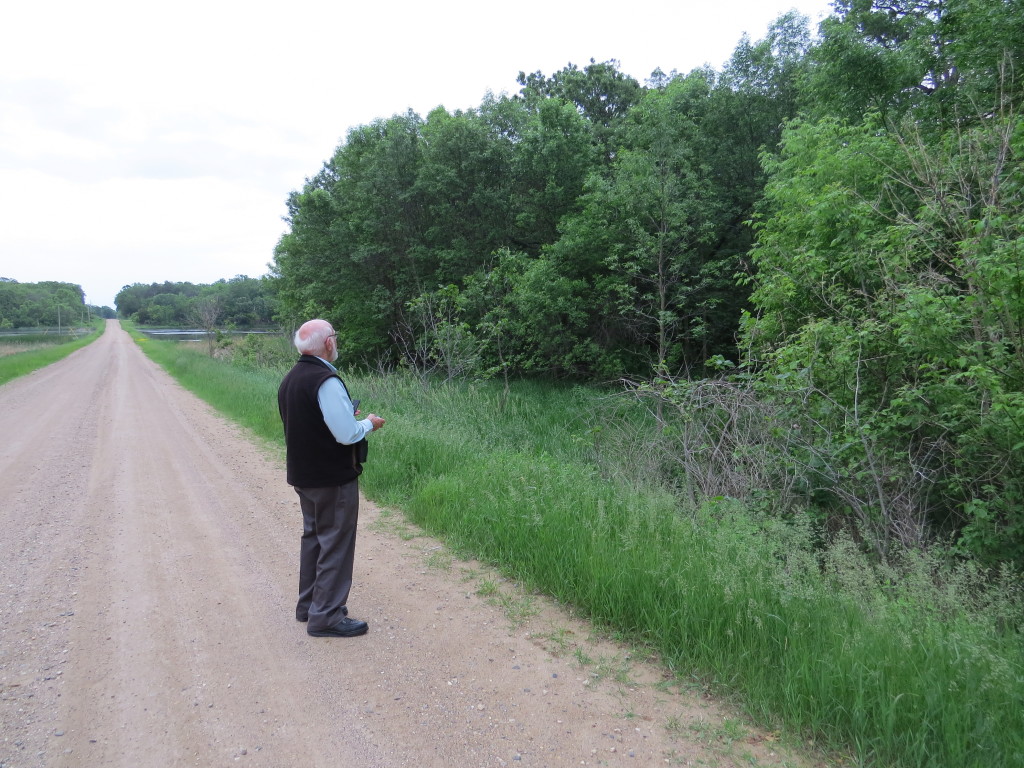
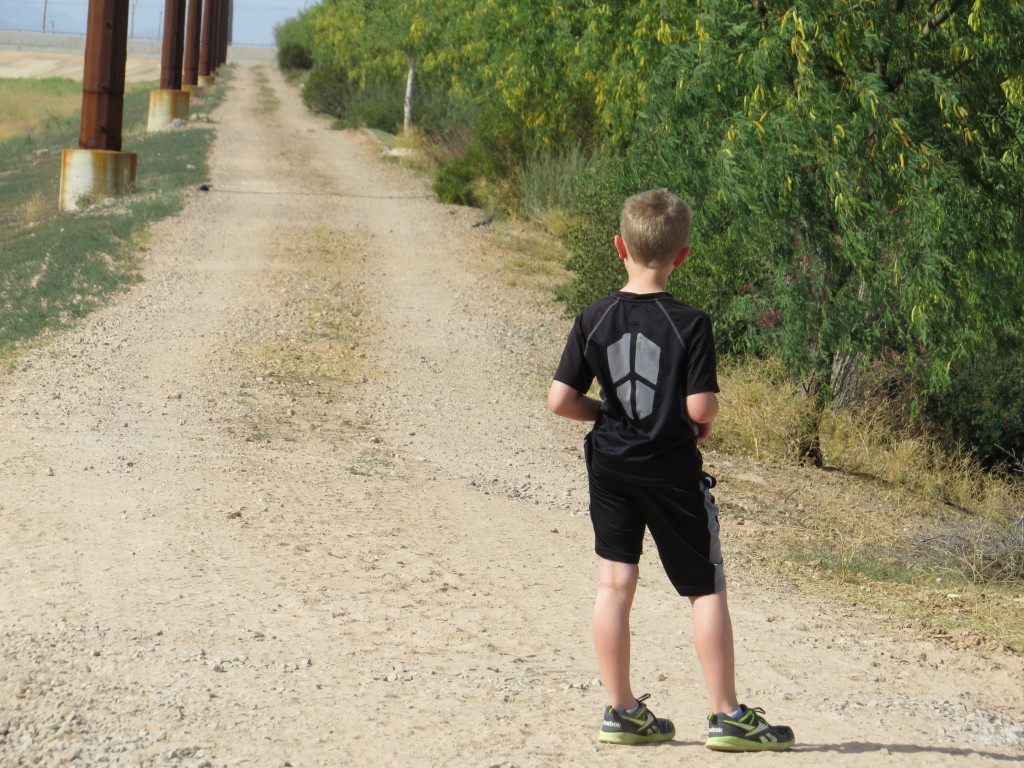
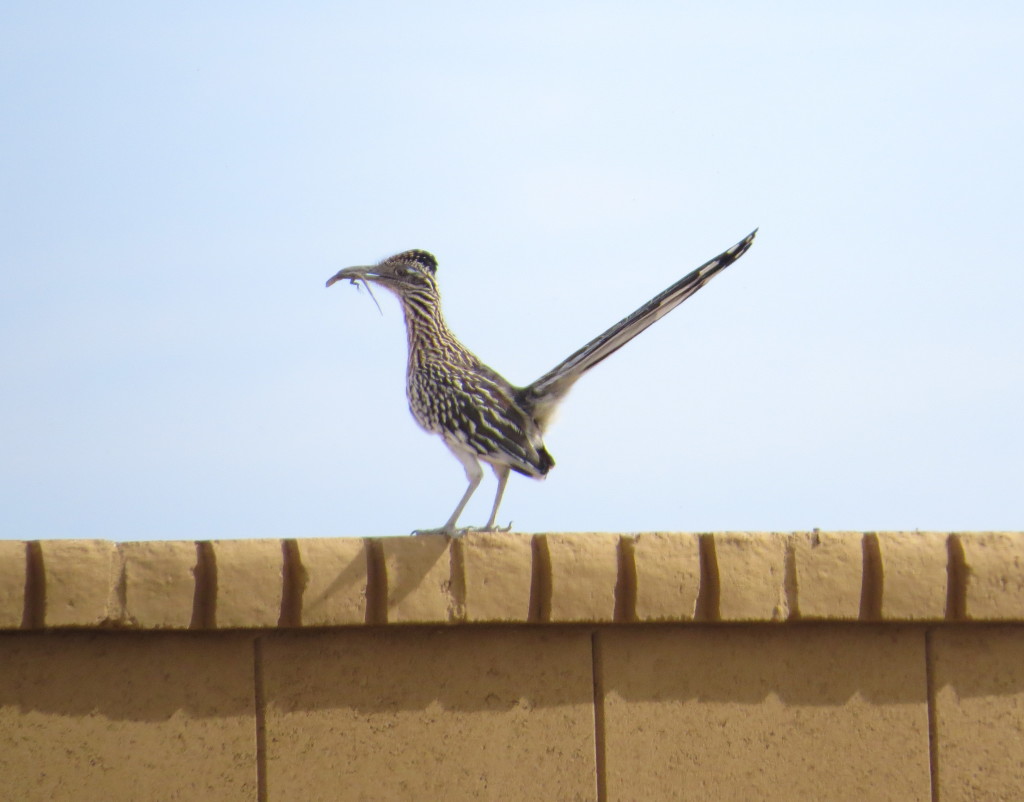
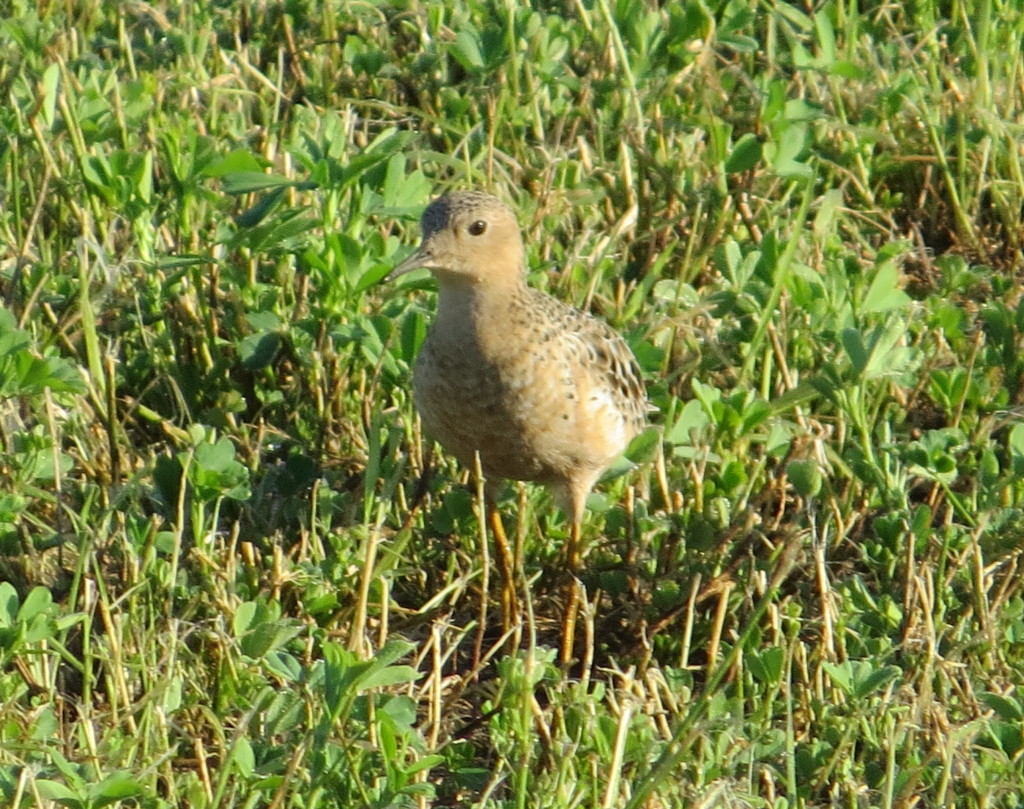
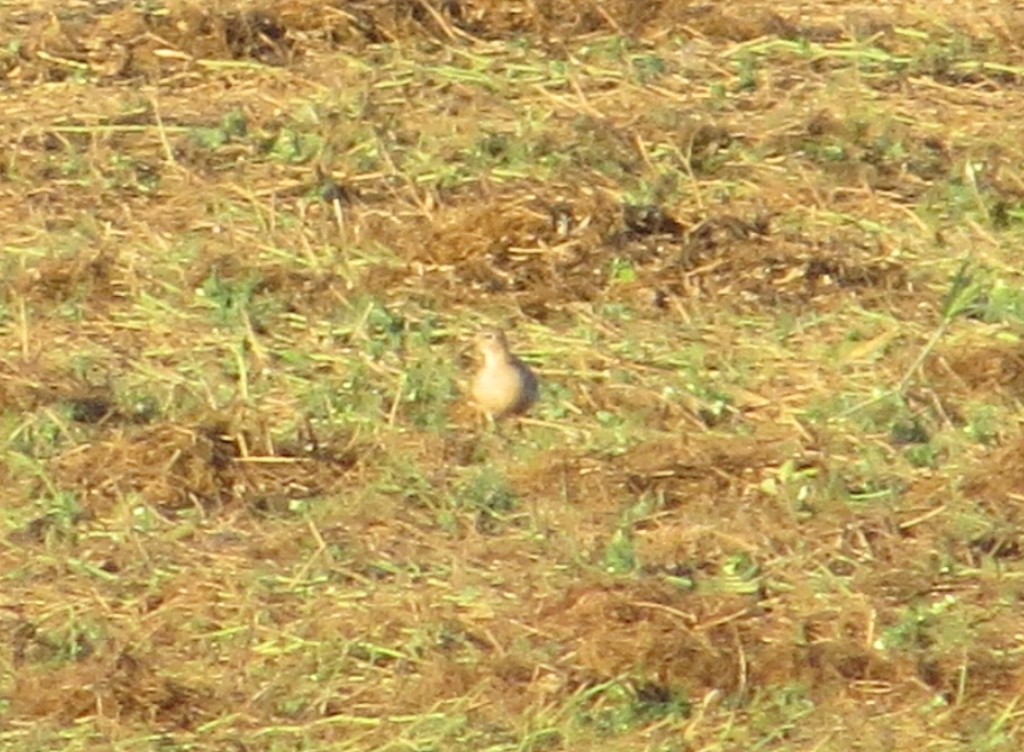
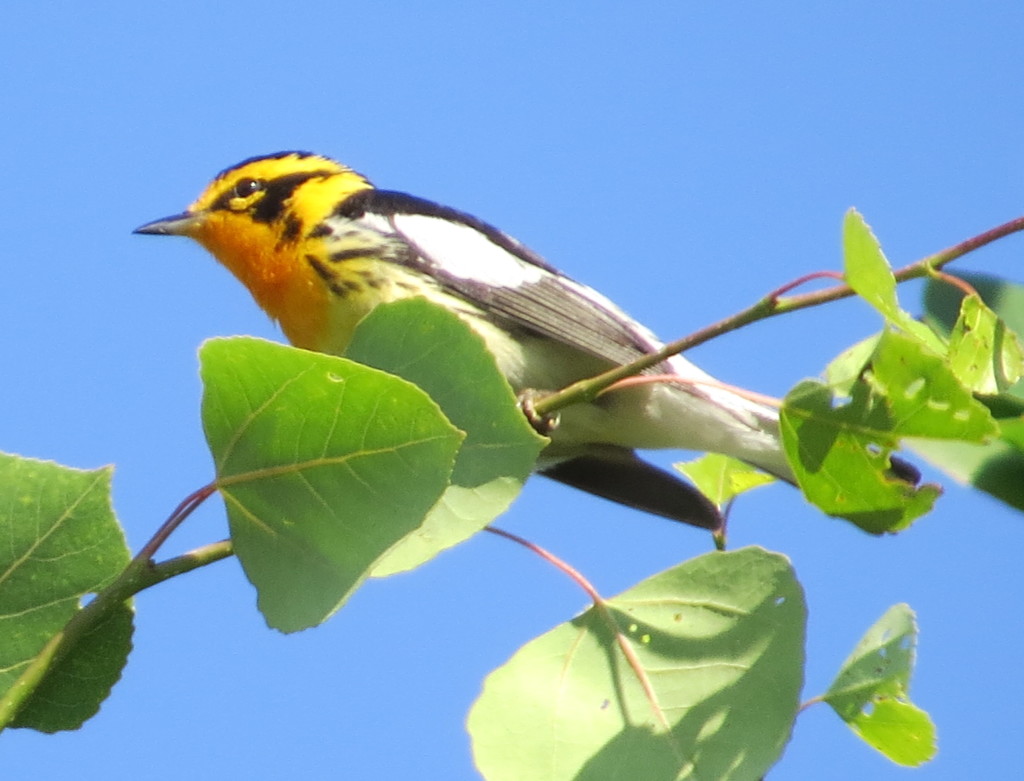
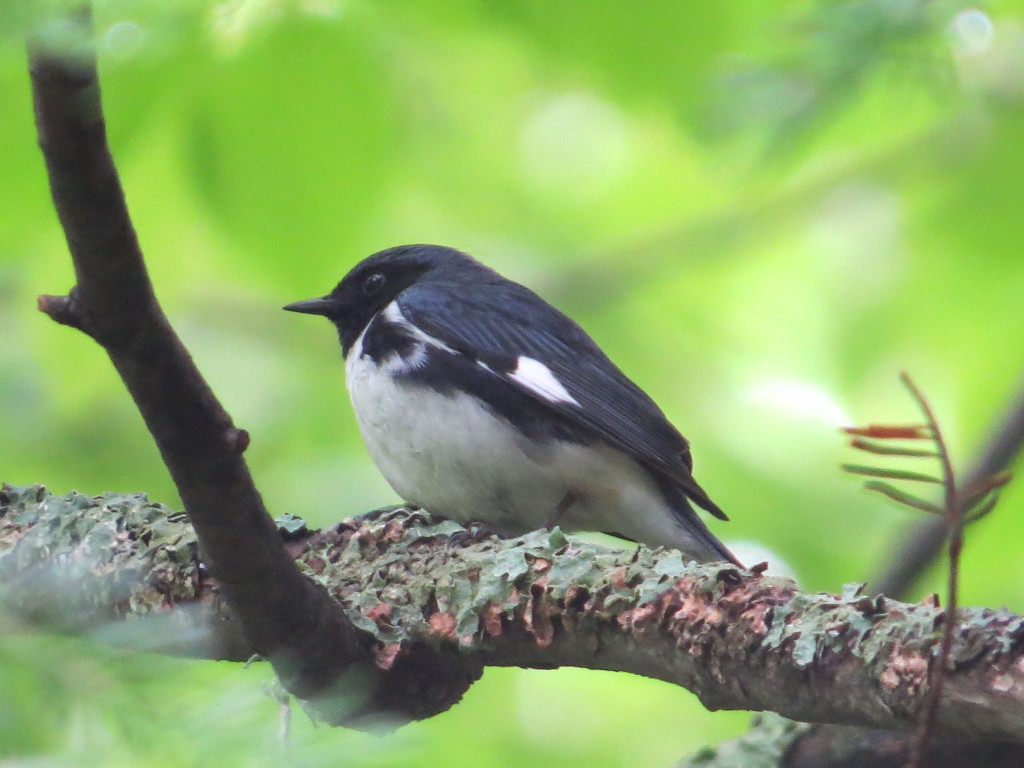
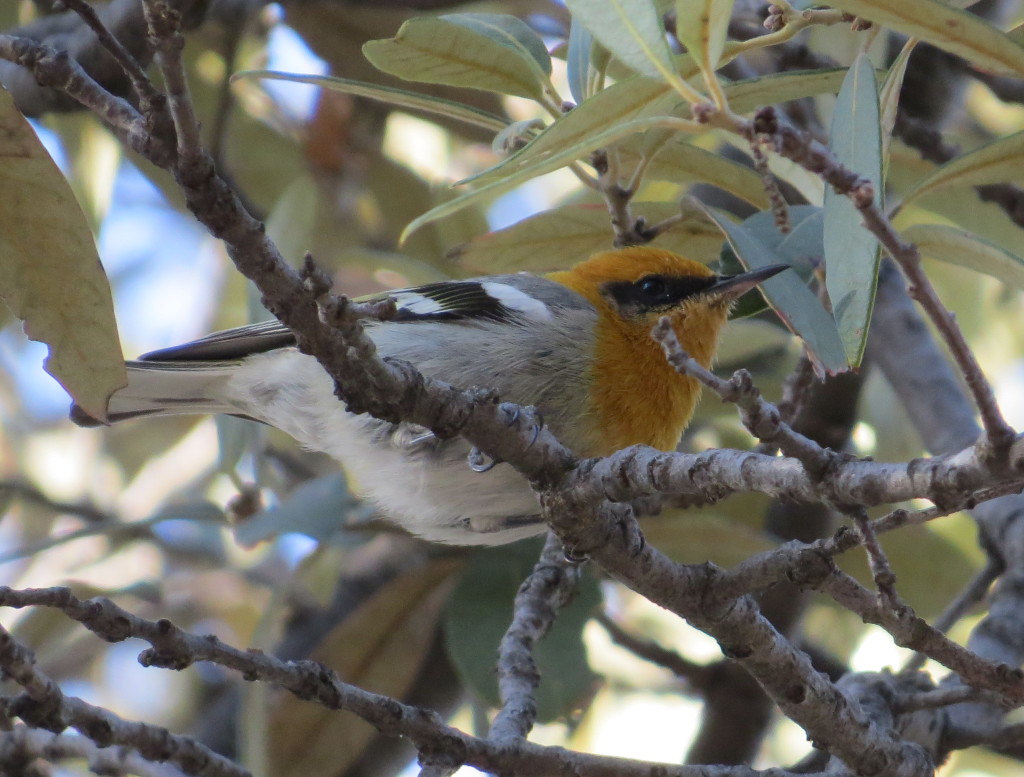
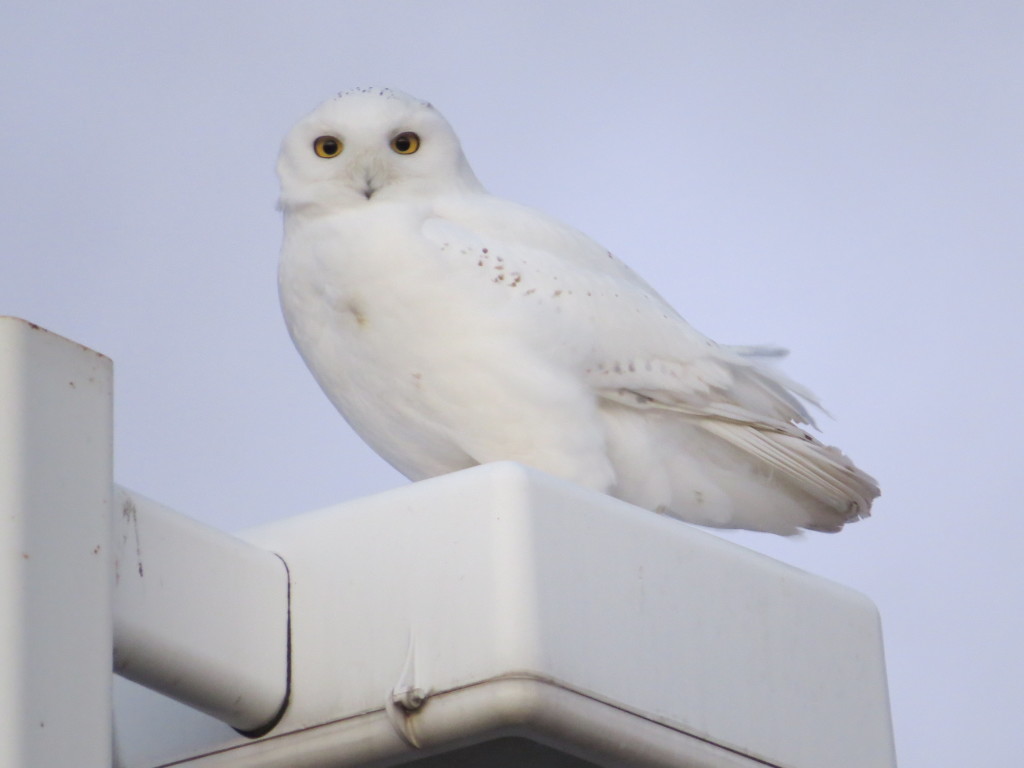
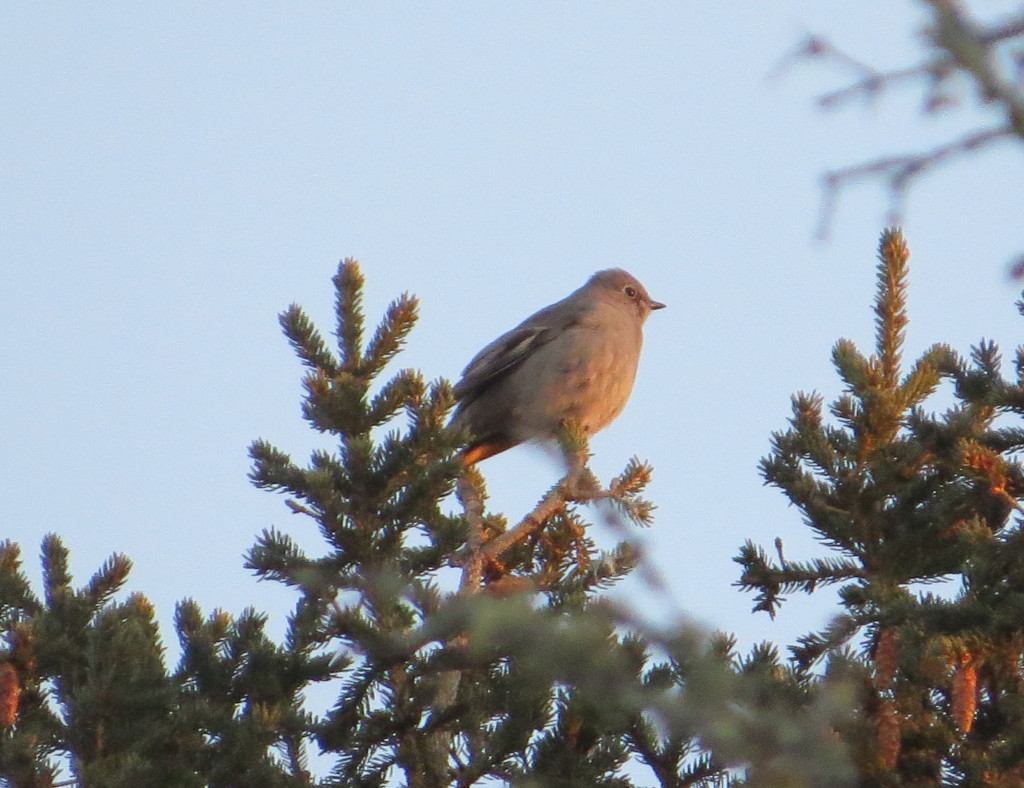 My first lifer for 2015 was a Townsend’s Solitaire, but that’s not why this bird is here. The reason this bird made the cut is that I found one on my own in the old hometown. That’s a pretty sweet feeling on multiple levels.
My first lifer for 2015 was a Townsend’s Solitaire, but that’s not why this bird is here. The reason this bird made the cut is that I found one on my own in the old hometown. That’s a pretty sweet feeling on multiple levels.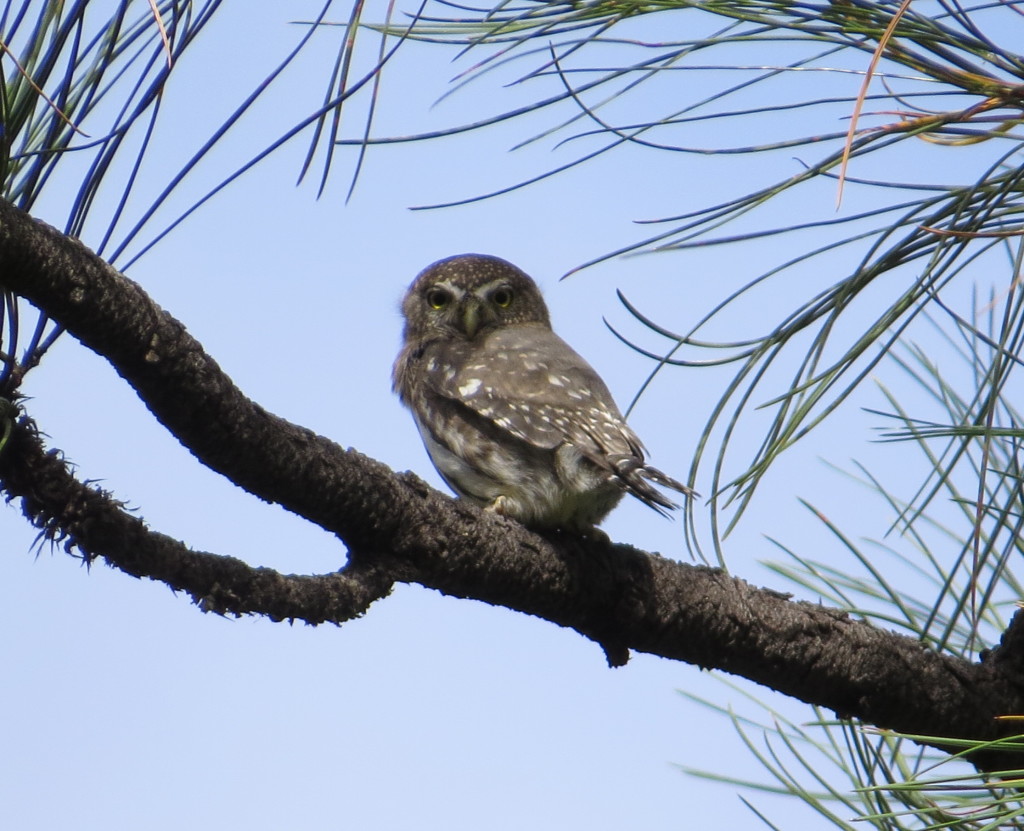 I had five Owl lifers in 2015. In an ordinary year, they’d all deserve one of the top 10 slots. Spotted Owl should probably occupy this slot because of its threatened status, but I just really enjoyed seeing this Pygmy in Hunter Canyon. This tiny Owl was cool just by itself, but the experience made it even better. This is just one of the dozens of life birds that Tommy DeBardeleben and Gordon Karre found for us. Just as much fun as seeing these birds was becoming friends with these guys. There is no doubt that we will have many more adventures together in 2016.
I had five Owl lifers in 2015. In an ordinary year, they’d all deserve one of the top 10 slots. Spotted Owl should probably occupy this slot because of its threatened status, but I just really enjoyed seeing this Pygmy in Hunter Canyon. This tiny Owl was cool just by itself, but the experience made it even better. This is just one of the dozens of life birds that Tommy DeBardeleben and Gordon Karre found for us. Just as much fun as seeing these birds was becoming friends with these guys. There is no doubt that we will have many more adventures together in 2016.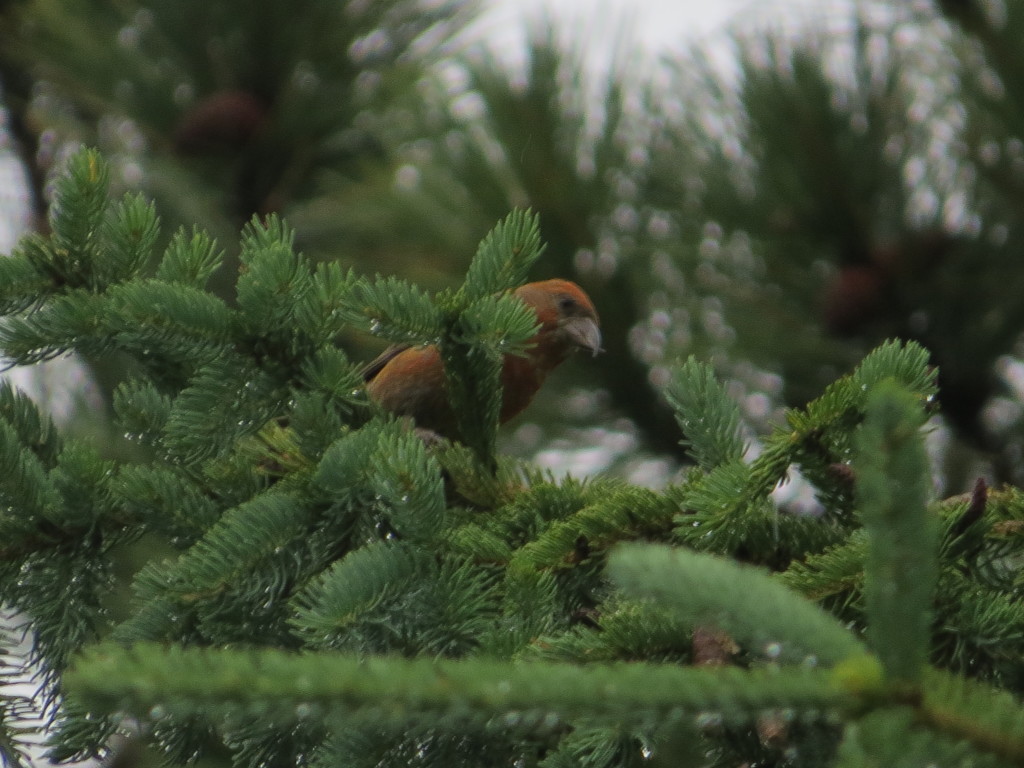
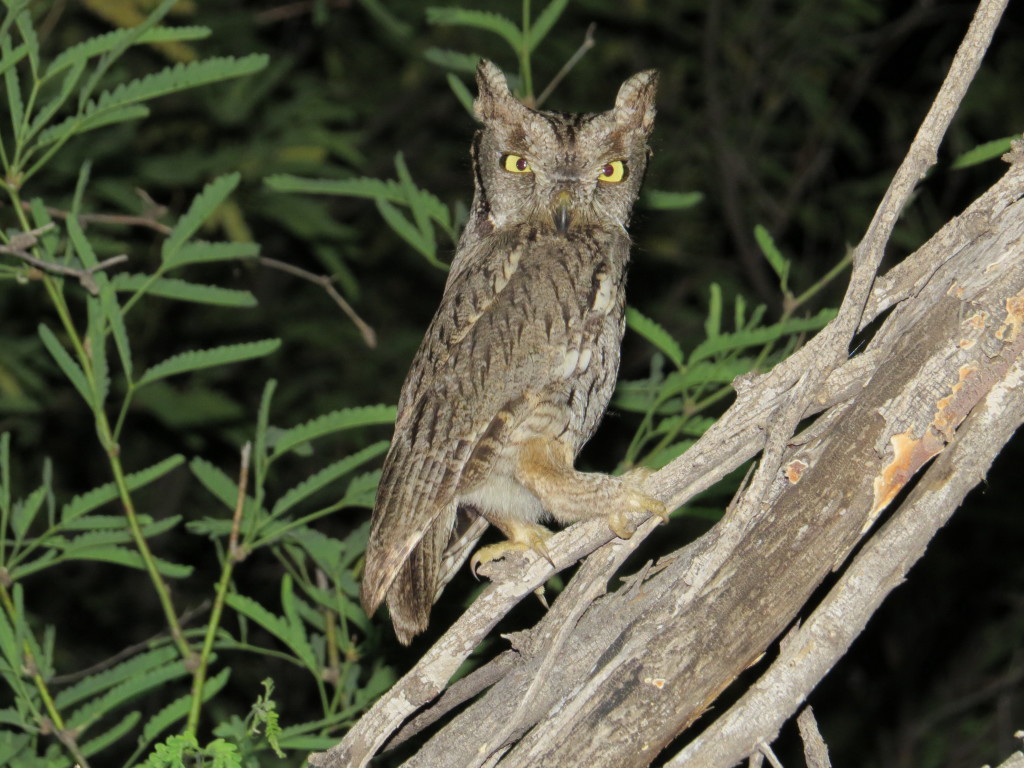 This is probably one of the most common Owls of all my Owl lifers. But rarity status alone does not make for the best experiences. What made this bird so fun was the context in which it occurred. First, night-birding with flashlights adds a whole new level excitement to this hobby. Chris Rohrer said it best when he said it makes you feel like a little kid again to be outside after dark past bedtime. Second, this Owl was so cooperative for Tommy DeBardeleben and me that we got to pose for some laughter-inducing selfies. This is probably the most fun I’ve ever had birding.
This is probably one of the most common Owls of all my Owl lifers. But rarity status alone does not make for the best experiences. What made this bird so fun was the context in which it occurred. First, night-birding with flashlights adds a whole new level excitement to this hobby. Chris Rohrer said it best when he said it makes you feel like a little kid again to be outside after dark past bedtime. Second, this Owl was so cooperative for Tommy DeBardeleben and me that we got to pose for some laughter-inducing selfies. This is probably the most fun I’ve ever had birding.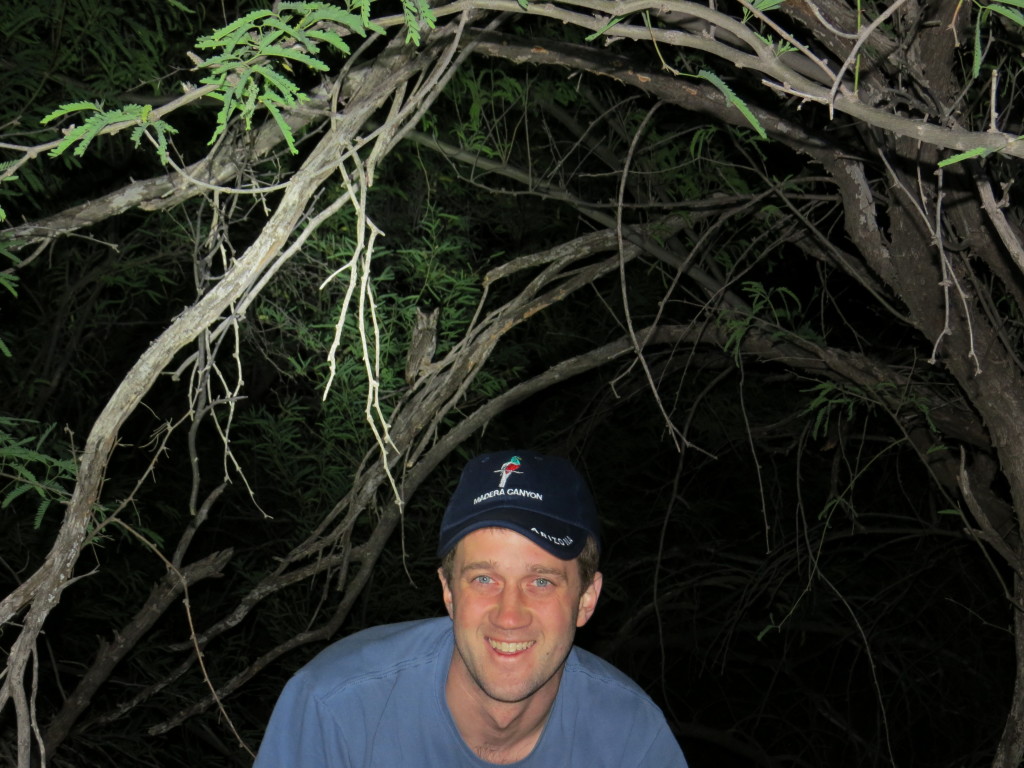
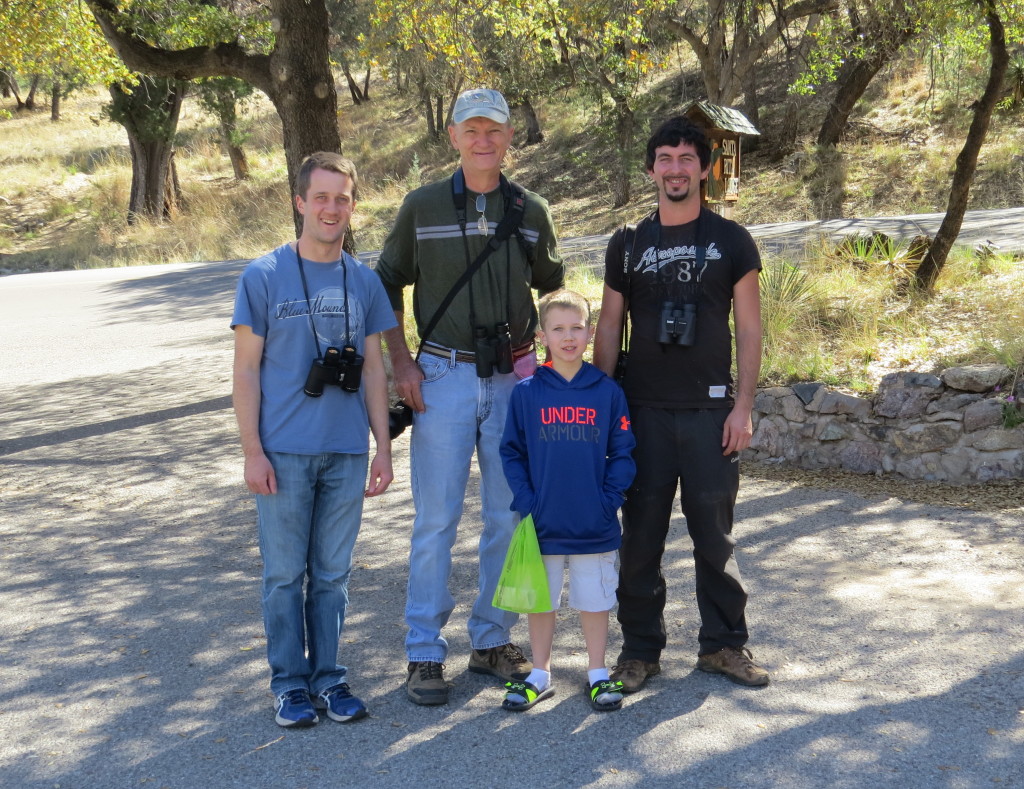 2. Gyrfalcon
2. Gyrfalcon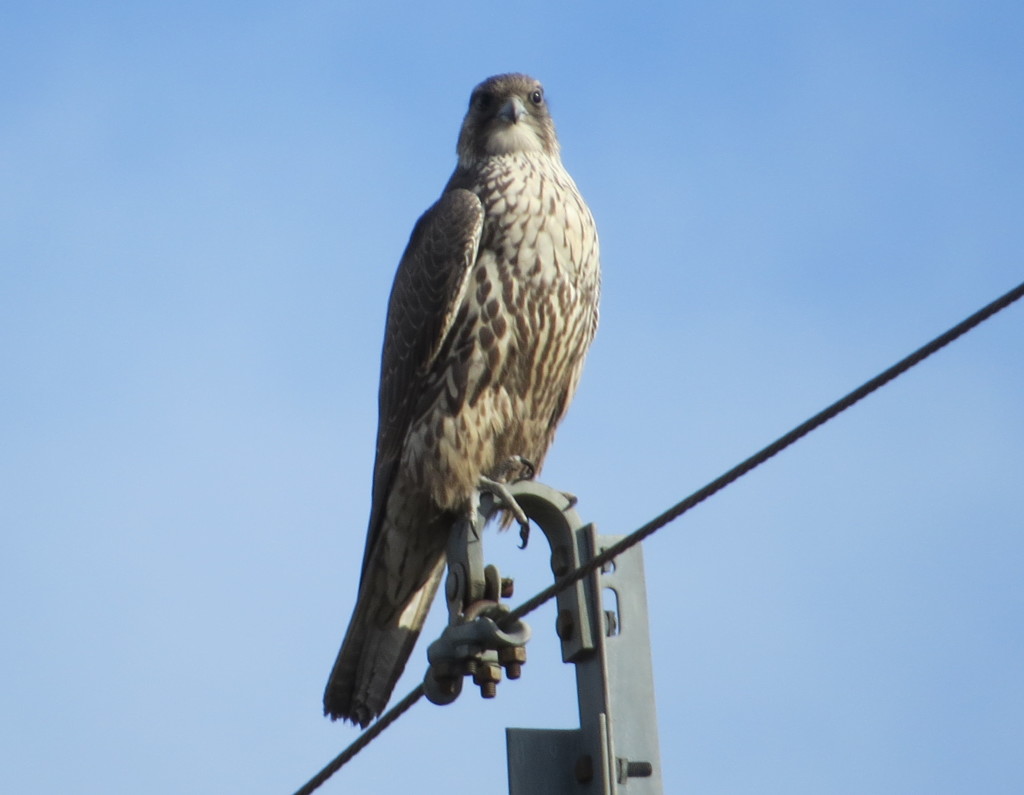 Now here’s one that I wasn’t expecting, as in at all, as in ever. 2015 was the year of the Gyrfalcon. I picked up my lifer in Superior, WI early in the year, but what catapulted this bird near the top of this list was when I accidentally stumbled on the bird pictured above right here in Kandiyohi County, giving me my state and county bird in one sweet shot with a good photo op to boot. Considering one hadn’t been seen in Minnesota in nearly three years, I was just a little excited when Bob Dunlap and a host of birding experts told me my misidentified Peregrine was actually a Gyr.
Now here’s one that I wasn’t expecting, as in at all, as in ever. 2015 was the year of the Gyrfalcon. I picked up my lifer in Superior, WI early in the year, but what catapulted this bird near the top of this list was when I accidentally stumbled on the bird pictured above right here in Kandiyohi County, giving me my state and county bird in one sweet shot with a good photo op to boot. Considering one hadn’t been seen in Minnesota in nearly three years, I was just a little excited when Bob Dunlap and a host of birding experts told me my misidentified Peregrine was actually a Gyr.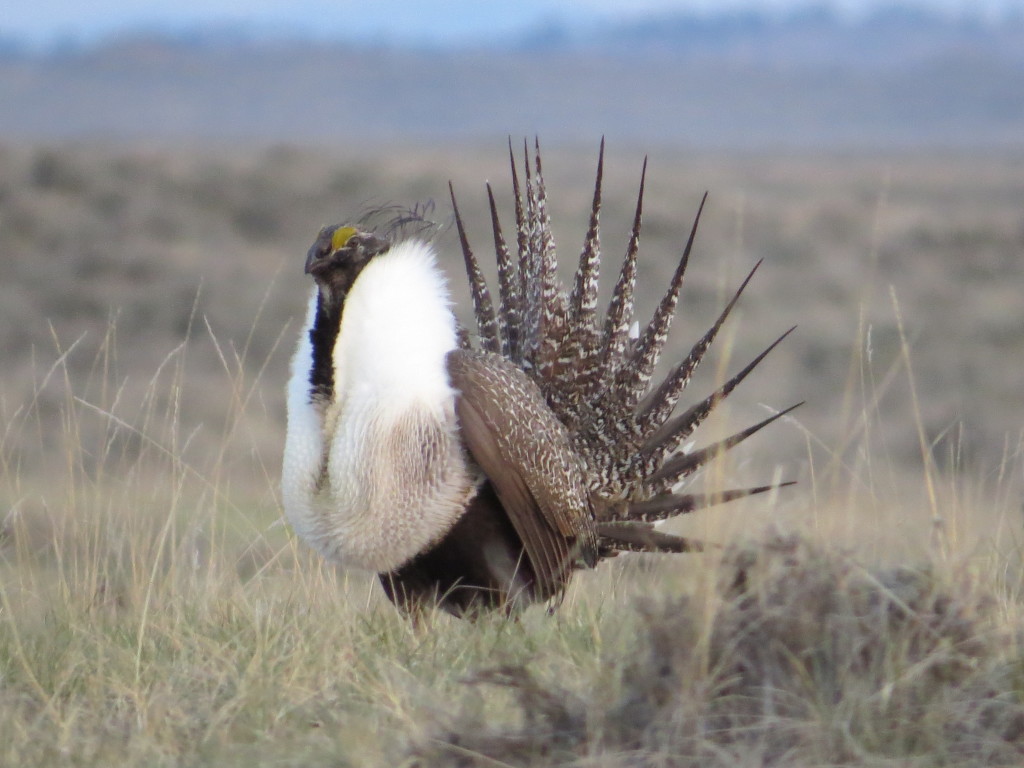 This bird had the top spot locked down before 2015 even began. This was a very special bird that Evan and I made a special trip to Montana to see. We got this lifer in the company of my dad who researched this bird extensively in the 1970s for the Montana Fish&Game Department (presently called the Montana Department of Fish, Wildlife, and Parks). We didn’t just see this bird. From a blind we got to observe the males doing their elaborate courtship displays on the lek. There was no better way to add this bird to the life list. The Greater Sage-Grouse was hands-down the best bird of 2015. A special thanks goes out to John Carlson for setting up the adventure, Charlie Eustace for joining us, Leo and Jo Jurica for hosting us, and to my dad for humoring my idea. It was a pleasure to meet John and Charlie and go on a very memorable outing together.
This bird had the top spot locked down before 2015 even began. This was a very special bird that Evan and I made a special trip to Montana to see. We got this lifer in the company of my dad who researched this bird extensively in the 1970s for the Montana Fish&Game Department (presently called the Montana Department of Fish, Wildlife, and Parks). We didn’t just see this bird. From a blind we got to observe the males doing their elaborate courtship displays on the lek. There was no better way to add this bird to the life list. The Greater Sage-Grouse was hands-down the best bird of 2015. A special thanks goes out to John Carlson for setting up the adventure, Charlie Eustace for joining us, Leo and Jo Jurica for hosting us, and to my dad for humoring my idea. It was a pleasure to meet John and Charlie and go on a very memorable outing together.